In conversation with Naturefriends
GRANIT GASHI | Board member of Naturefriends Kosovo
Please introduce yourself briefly.
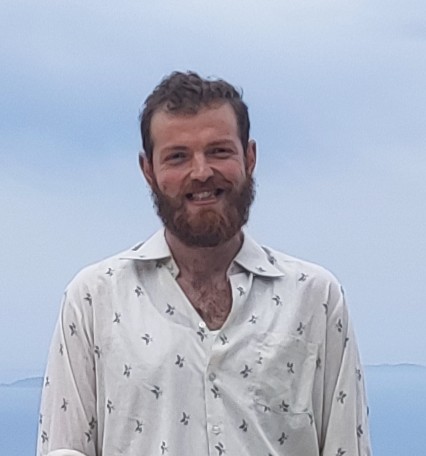
I’m Granit Gashi, a board member of Naturefriends Kosovo. I have been involved in Kosovo’s environmental movement for many years, although in recent years my work with the Heinrich Böll Foundation has shifted me more into a donor and coordination role rather than direct activism, a change of perspective, so to speak.
Naturefriends Kosovo became the youngest partner organization of NFI in September 2025 at the NFI Annual Conference in Timisoara. What did that recognition mean to you personally and to your organization?
For me personally, the recognition in Timișoara was both motivating and humbling. Even though I wasn’t present at the conference, being accepted as the youngest partner within the NFI network felt like a confirmation that Kosovo has a place in international environmental and outdoor movements. It showed that, despite our early stage as an organization, there is trust in our potential and in the values we want to promote. Or at least that’s what I want to think.
For the organization, the recognition serves as an important signal: that we are not working in isolation, and that Naturefriends Kosovo is part of a much larger community with shared principles. It gives us visibility, legitimacy, and a sense of responsibility to develop the branch further. It also marks a symbolic beginning, a point from which we can start building real substance, structure, and activities that reflect the standards of the international network. Having said this, it feels also very strange, when one compares the early stages of development that Naturefriends Kosovo currently sits on. The first solid shaping of Naturefriends Kosovo needs to happen now!
What do you hope to gain from international partnerships in the coming years? Are there any countries or organizations within NFI that especially inspire you?
For Naturefriends Kosovo, international partnerships are not just an opportunity for visibility, they are a source of learning, alignment, and direction. In the coming years, I hope we can gain two things: first, the internal clarity to shape our own mission and activities in Kosovo; and second, the external guidance that comes from being part of a larger, experienced network. We need to define what Naturefriends stand for in Kosovo but also look outward to the NFI community to ensure that our principles, values, and areas of work are aligned with the broader movement.
What concrete activities and projects has Naturefriends Kosovo implemented recently? What are the main priorities of your organization right now?
Over the last year, we have focussed on outdoor activities with families and educational activities with schools. In spring, we piloted a series of “family day hikes”. The first one in April was quite a success with around 40 people participating. But in May, weather conditions were not very good, so we had to cancel two hikes and turn-up in the last one was not so great. So, we have to re-think this formula.
As regards schools, we had two nice successes this year. The first one was beautifying a public park with high school students in May and June. We did a crowdfunding that got valuable financial support from Naturefriends Chur and individual Naturefriend members in Kosovo and Switzerland. The second one were workshops that we conducted in schools in Ferizaj and Pristina, together with Goethe Zentrum and NFI. We hope to continue both projects over the coming months.
What excites you most about the future of Naturefriends Kosovo? What major challenges do you expect to face on this journey? How can the international Naturefriends network help you overcome these challenges?
What excites me most about the future of Naturefriends Kosovo is the opportunity to give shape and direction to a young organization, to refine its identity, values, and mission in a way that truly resonates with Kosovo’s society. We are at a moment where we can build meaningful connections with local stakeholders, explore partnerships with other organizations, institutions, and businesses, and demonstrate the relevance of our topics to local communities. The idea of embedding Naturefriends Kosovo into the social fabric of the country, while maintaining a strong connection to the international network, is both challenging and inspiring.
The major challenges we face include consolidating our internal structure, clarifying our core mission, and navigating the early stage of local engagement. We need to understand the local landscape, map stakeholders, and learn how to make our initiatives relevant and sustainable in Kosovo’s societal context all while staying aligned with the principles and values of the broader Naturefriends movement.
(January 2026)
NAZARENA PLUMB & JANNIS GUSTKE | Co-Presidents of International Young Naturefriends (IYNF)
Please introduce yourself briefly. 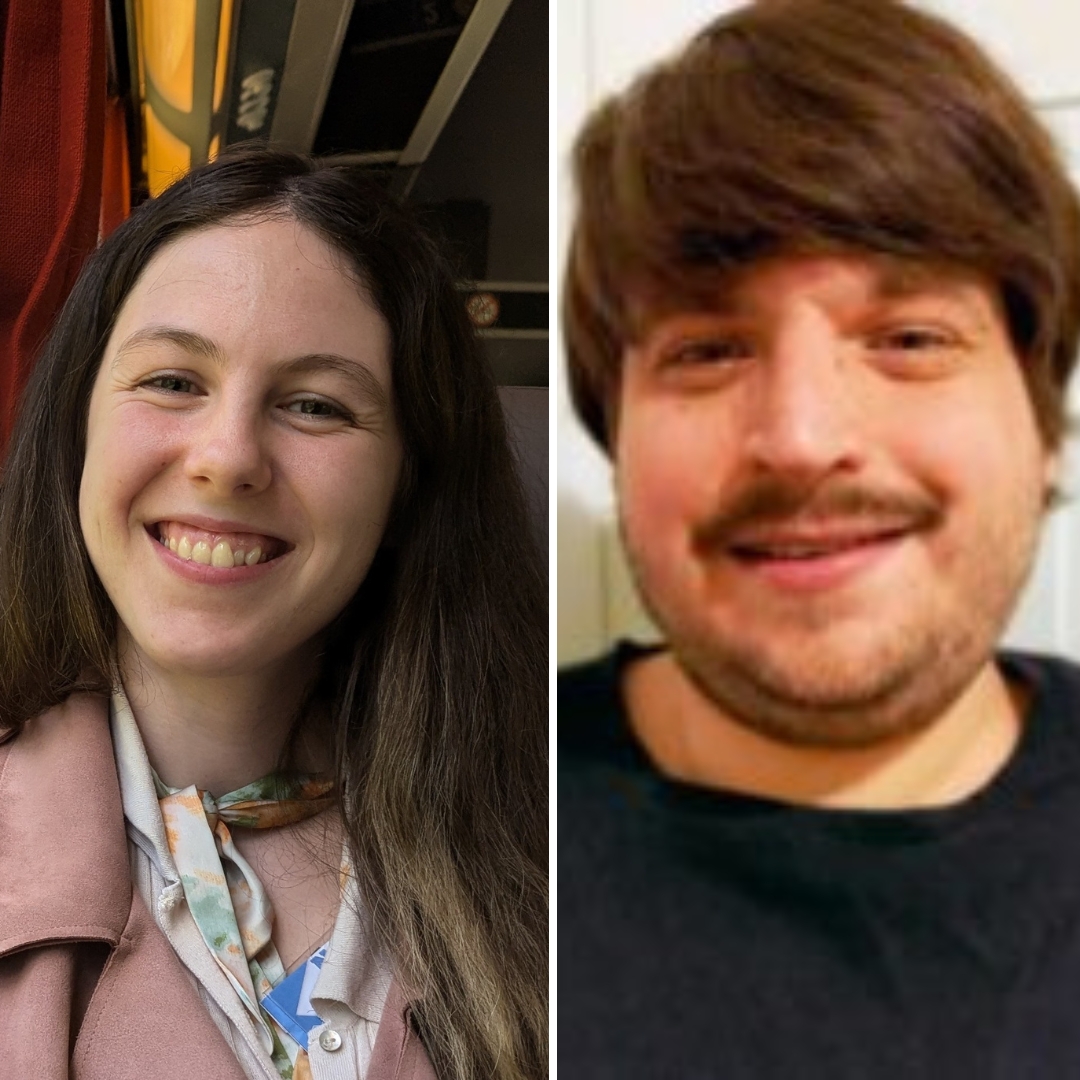
Nazarena: I am Nazarena, born and raised in England but have been living in France for the last few years. I have several years experience working for NGOs on the topics of conservation, humanitarianism, youth mobility and advocacy. Now, my 9-5 is a corporate job in risk management, and my 5-9 is serving as president of IYNF.
Jannis: Hello, I'm Jannis. I'm 32 years old, come from Dortmund and study archaeology and media science at the Ruhr University Bochum - where I'm in the final stages of my bachelor's degree. When I'm not on the road for the Naturefriends movement, I produce electronic music (drum and bass, industrial metal, electropunk). I'm also active in the Dortmund initiative ‘Ambassadors of Remembrance’, which is an independent group of young adults dedicated to commemorating and remembering the victims of National Socialism. I have also been involved in student self-administration committees at my university (in particular the Autonomes Referat für Menschen mit Behinderungen und sämtlichen Beeinträchtigungen ARMBSB) and other organisations (especially the SJD - Die Falken). I was also involved at times with the anti-coal group AusgeCO2hlt in the Rhenish lignite mining area.
You took over the leadership of the International Young Naturefriends after being elected at the IYNF Congress in April 2025. Congratulation on your new role! How did you get in touch with Naturefriends? What inspired you to take on a leadership role within IYNF and what are the priorities during your term?
Nazarena: Thank you very much. I stumbled across a Facebook call for participants for an IYNF project, it was quite random. But once I started attending IYNF activities, I knew immediately that this association was going to be important in my life. Since the start, I had a feeling of being in a safe space where I can bring 100% of myself to activities. Plus, IYNF enabled me to develop myself a lot, my creativity, my interpersonal skills, and my leadership. That sense of belonging, paired with the empowerment I gained from participating in projects and leading workshops, made me realise that I wanted to contribute more deeply to the organisation. I put myself forward to lead IYNF because I believe IYNF needs leaders who are committed and passionate about furthering IYNF's values in society, and that is what I plan on doing.
My main objective is to help all our member organisations develop their strength. I see first hand the power of IYNF to create leaders, I plan on working to make sure this effort benefits the member organisations (MOs) tenfold. The participants of IYNF projects leave our activities with the passion and skills to make a difference in society. Channeling this energy towards the MOs is one way IYNF can better support our MOs in the months and years to come.
Jannis: I have been a member of Naturefriends for 32 years - and have therefore been the proud owner of the 25-year membership pin for 7 years. My father is one of the co-founders of my local group (Dortmund-Kreuzviertel). As a second-generation Naturefriend, my first involvement in the association was naturally a very short one: from participating in the Naturefriends Youth NRW children's Whitsun camp to group leader training and my first steps on the state (2012-2013) and later the national board of the Naturefriends Youth (2017-2022). The last step was then to IYNF, where I was first Vice President and have now been elected President.
An important factor in my decision to run was to put all my experience from the various committees and structures at the service of IYNF, as I am most interested in international work. Since 2024, I have also represented IYNF on the Council of Europe's Youth Advisory Council, which I will be leaving at the end of the year.
My priority for the next two years is to improve the visibility of IYNF and the Naturefriends movement as a whole. Apart from that, I see the strengthening of the member organisations and the establishment of new independent youth structures in countries without such structures as important. It is also important to actively involve committed young people from countries without IYNF or NFI membership in the network.
IYNF is celebrating this year its 50-year anniversary. How do you define success for a youth-led environmental organisation in today’s world? What strategies do you use to ensure that young people remain engaged and contribute to the organisation's goals?
Nazarena: For me, success is in the ripple effect. I experienced first-hand the life changing power of IYNF trainings. But, the true success comes from how we apply what we learned in our daily lives after the activity is over.
I believe that there are two ways of understanding IYNF - both real and important, but different. The first is that we provide services to our MOs. We bring them together, we support them and train them. IYNF is also a global community of young people who love the outdoors and care about the planet. Back in 2021 when I started attending IYNF activities, I felt this sense of belonging, but it wasn't clear to me how I could stay involved with this association that I was passionate about - especially as there weren't Naturefriends youth sections in the countries I was living in. Since then, IYNF has worked a lot on this question, developing our Online Volunteers project, for example. I think that we still have a long way to go with this. We want participants to feel that there is always a “next step,” whether it’s getting involved with the MOs, the Online Volunteers project, or IYNF working groups... there are a lot of concrete ways we are working on to keep young people involved and further develop IYNF and each of our MOs as a community of young changemakers.
Jannis: An organisation led by young people is successful if it is visible - i.e. perceived by as many people as possible -, can act independently and is accessible to young people. The involvement of as many young voices as possible and an open organisational culture are important here. To achieve this, it is important to give people the opportunity to get involved on an ongoing basis. As IYNF, we ensure such involvement through a variety of activities. We do not see ourselves simply as an umbrella organisation, but as a network of young Naturefriends.
Thanks to the efforts of Fridays for Future, a growing number of young people are speaking out and demanding accountability—not only from political leaders, but also from the generations before them. Their message is clear: the time for meaningful action is now. Yet despite their calls, progress remains far too slow. Efforts to curb human-induced climate change and shift our economic systems toward sustainability are still falling short.
What will it take to drive real change? And how can NGOs like Naturefriends play a meaningful role in this transformation? In what ways can NGOs amplify the voices of young climate activists?
Nazarena: The Naturefriends movement plays an important role in enabling people to access and enjoy nature in a low carbon way. This is already a wonderful thing and we shouldn't stop talking about the great work that happens every day in Naturefriends associations and houses.
Of course, there is always more to be done to combat the enormous harm that is being done to nature globally. I think that through our democratic institutions, we can stand up for the change that we wish to see. My belief is that strong laws decided by strong democratic organs are some of the most impactful levers of change. Through our democratic institutions, we need to be able to hold the large polluters to account. At IYNF, we are working with other youth climate organisations through Generation Climate Europe, standing up alongside our peers to campaign for climate protections.
Large NGOs can support young activists by really centring them. For example, inviting them to speak, mentoring them, giving them opportunities to lead, and really listening: ensuring that their ideas are reflected in future advocacy and campaigns.
Jannis: There will only be real change if the interests of young people are not just a marginalised issue in society. A strong, independent youth policy is needed. Youth self-representation structures such as national youth councils and youth organisations must be strengthened, including financially. In addition, transformation processes away from fossil fuels must be consistently driven forward and organised in a socially just manner. Ignoring the biographies of entire professional groups creates a breeding ground for frustration and a shift to the right, as can already be felt in Germany, for example in Gelsenkirchen and eastern Germany.
I am so intensively involved with this topic because I was active in an anti-coal group and also study at the German Mining Museum. The Naturefriends movement can play an important bridging role here - based on three pillars: As an environmental organisation, it points out alternatives to coal, oil, gas and nuclear power and fights for climate justice. As an association with roots in the labour movement, it shows empathy towards employees in the affected industries and fights for just change (also together with the trade unions). And as a sports and education association, it offers people guidance and support in these times of transition.
It is also important to incorporate the class perspective into the discussions surrounding the socio-ecological transformation. Poorer people contribute less to the environmental crisis.
What do you think will be the biggest challenges for the global Naturefriends movement and the IYNF over the next 10 years?
Nazarena: I think that we are seeing a shift which deprioritises youth and nature in favour of increased militarisation. We are told that the European post-war era is over, we are now in a pre-war era. I am not defeatist, but I recognise the magnitude of the challenges to come. Naturefriends is one of the best placed global movements to stand up for peace, so we will continue to do so as we have done throughout our history.
Jannis: The central challenge for our entire Naturefriends movement will be a successful generational change. We need more young people - including on the boards of adult organisations. Adult organisations should also create targeted offers for people in transition between youth and senior age so that the transition is smoother.
In addition, the shift to the right in Europe will intensify in the coming years (it is already well advanced in the USA). We can't sit still in the face of this but should take a clear stance. As the IYNF, we are leading the way here with our ‘From Memory to Action’ project, in which we are looking at historical Nazism this year and want to develop strategies for today.
Moreover, the problem of mass tourism will continue to intensify in the coming years. With luxury holidays in Dubai, backpacking in Australia, massive misappropriation of living space on Mallorca and in Barcelona by AirBnB or even cruise ships in Venice or Dubrovnik, the situation is getting worse.
In the spirit of our greeting “Berg Frei”, we as the Naturefriends movement should show our solidarity with the protests against the negative consequences of mass tourism - for example with the initiatives against AirBnB in Barcelona and Mallorca, the activists of No Grandi Navi in Venice and other movements around the world that are committed to socially just and environmentally friendly travel. The current example of Ötztal/Pitztal, where a summit was to be blown up to unite two ski resorts, shows that this fight is worthwhile. Following protests, this has now been cancelled.
Another topic that is close to my heart in this context is voluntourism. This form of tourism actually aims to incorporate elements of voluntary service into holidays. However, there is often a lack of commitment on the part of those involved, it is a bit of a ‘human zoo’ and creates a lot of problems itself. A genuine voluntary service, on the other hand, is binding and meaningful.
It is also important to take a critical stance on the negative aspects of elite sport. Whether a FIFA World Cup in Qatar (where people were exploited as construction slaves), the Olympic Games in Brazil (where residential areas were partially demolished for the construction of sports facilities and social benefits were cancelled to finance the games) or in Pyeongchang (where 60,000 old trees were felled for the construction of the ski resort): Too little attention is currently being paid to human rights and the environmental situation in the host countries. In addition, sports facilities are being built that are not used after the Games and fall into disrepair - as can be seen in Greece, Brazil and Bosnia. This is not sustainable. Here, too, we as Naturefriends lovers can be a critical and non-partisan political voice within sport.
For us as IYNF, it is important that we continue to have the resources to do our work. If this point is fulfilled, I am quite confident that we will not only manage 10 years, but also another 50 years. The ‘adult Naturefriends movement’ can also support us by strengthening its own youth structures and connecting young people from its ranks with us.
(July 2025)
JEAN-MICHEL HARP | President Naturefriends France
Please introduce yourself briefly.
My name is Jean-Michel HARP. I have been a member of Naturefriends since 1978. I started out as a member of Naturefriends in Le Havre, then I changed local associations and came to Fécamp, where I have been president for many years.
Jean-Michel, congratulations on your recent election as president of Naturefriends France! As you take up this new role, what are your main objectives for the organisation over the next few years?
Over the next few years, together with the National Board, which has seen the arrival of younger members, our aim is to revitalise the movement by developing activities that will bring members closer together.
What will be the strategic priorities of Naturefriends France for the coming year?
This year, we are working on renegotiating a federal insurance policy so that every member is insured for the activities they participate in at the best possible cost. This will ensure that small local associations are not penalised because of their small size.
Naturefriends France will continue to support local associations that are struggling to maintain their facilities or to develop.
The recent adoption of the motion on climate justice at your 2025 Congress represents an important and symbolic step forward. What motivated this decision and how do you envisage its implementation within Naturefriends France ?
This motion was presented by the Local Association of Colombes, supported by the National Bureau and approved by the Congress. It is now up to Naturefriends France to take ownership of it and find ways to raise funds. We are more in favour of voluntary action on the part of members than imposing a levy via the annual membership fee. This is a way of motivating members.
Some local groups are already actively contributing to NFI activities in the field of climate justice. In your opinion, what particular role can Naturefriends play, both nationally and internationally, to advance the cause of climate justice?
Climate justice remains a major international cause. At the level of our French federation, we must encourage our members to realise that facilities need to be improved so that they produce fewer greenhouse gases. We need to communicate as widely as possible in this area, both to our members and to the outside world, in order to highlight what we are doing for the cause of climate justice.
In the longer term, what do you think are the main challenges facing Naturefriends France and the international Naturefriends movement over the next decade? Finally, what message would you like to pass on to the next generation of Naturefriends members and activists?
In the coming years, Naturefriends will be even more confronted with the individualism that has already begun.
What has made Naturefriends a movement rich in encounters and fraternity is in danger of crumbling due to the current trend towards withdrawal.
If I had a message to pass on to the next generation, it would be not to be afraid to loudly proclaim the values of friendship and respect for others, which must lead us to a more just and peaceful world.
(June 2025)
GREET VAN GOOL | President 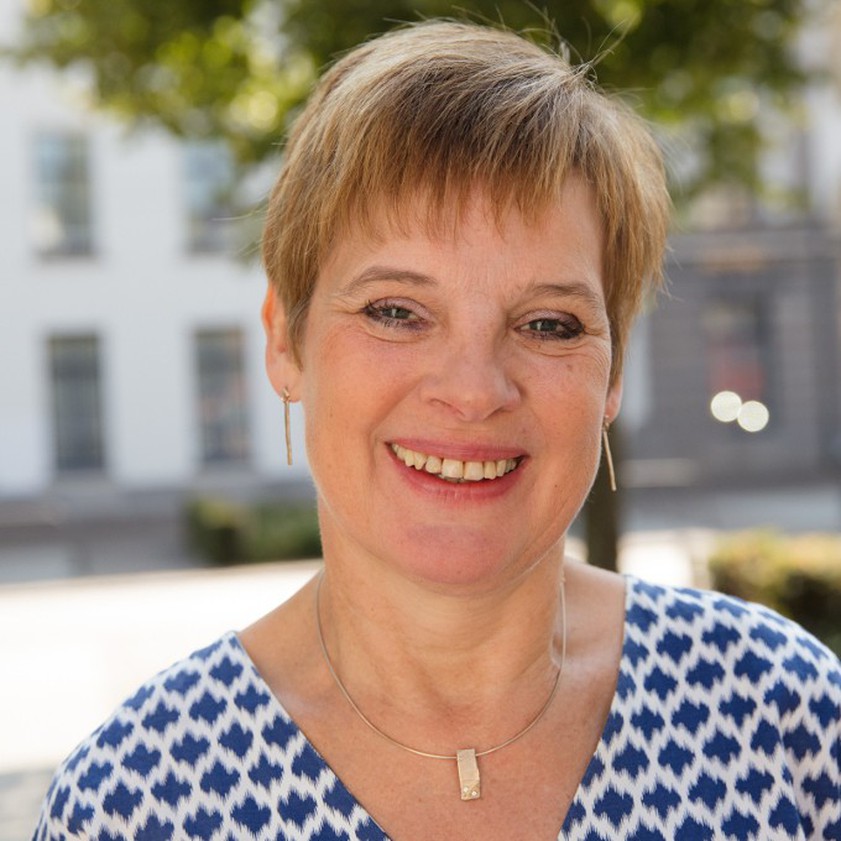 ATB ‘De Natuurvrienden’Belgium-Flanders
ATB ‘De Natuurvrienden’Belgium-Flanders
Greet, with your impressive tenure of almost 20 years as President of ATB Belgium within Naturefriends International, you are undoubtedly a familiar face in the Naturefriends community. Can you tell us more about what attracted you to Naturefriends in the first place and what still motivates you after all these years?
Thank you for the kind introduction! My journey with Naturefriends indeed started quite some time ago, and I can still clearly remember taking my very first steps within the movement. From these early interactions, I was struck by the warmth and openness of the people I met. There was an immediate sense of belonging. I felt I had found a community that shared my values - a commitment to ideals like solidarity and sustainability. It wasn’t just about activities; it was about connecting with people who genuinely care about our society and each other.
That sense of friendship has remained a constant throughout the years - not only here in Flanders but also during meetings and events organized by NFI. Every time I meet other Naturefriends, whether locally or internationally, I’m reminded of the power of this movement to bring people together.
What still motivates me after all these years is my deep belief in the values that ATB and NFI stand for. These values - solidarity, sustainability, inclusivity, internationalism - are more important than ever. In today’s fast-paced society, where individualism often takes precedence, I see it as a crucial task to pass these values on to others. This is not always easy, but it is something I remain deeply committed to.
You look back on a long and successful political career active at the Belgian federal level. How important is internationality to you, especially in the context of the Naturefriends movement?
For me, internationality is essential - both for me personally as for our movement. We live in a globalized world where we’re confronted daily with events and challenges happening elsewhere. From climate change to social inequality, the challenges we face today are interconnected. Addressing them requires cooperation and responsibility that transcend national borders.
Being part of a global network like NFI allows us to exchange ideas, amplify our efforts, and learn from one another. The opportunity to connect with members from different countries and the spirit of international cooperation is one of the things I value most about being a Naturefriend. It’s inspiring to see how, despite our diverse backgrounds, we come together around shared values and goals. These interactions remind us that the issues we care about - like sustainability, social justice, and nature conservation - transcend borders.
What I also deeply value about NFI is its willingness to take a stand on global issues and to try to set things in motion. Whether it’s advocating for stronger climate policies or fostering solidarity across cultures, NFI demonstrates how a united international network can truly make a difference. For me, that global perspective and sense of responsibility are at the heart of what makes Naturefriends so impactful.
Many people still see Naturefriends primarily as a leisure and hiking organisation. However, political work varies in importance between national organisations, with important issues ranging from peace to nuclear power to nature conservation. What are your thoughts on Naturefriends' political role?
That’s indeed a complex issue. At ATB, we notice that people often join because they want to take part in activities like hiking, cycling, or other recreational and sportive events. However, we also see that the underlying values of togetherness, sustainability and solidarity are deeply important to our members.
As ATB, we don’t take explicit political positions, but we do see it as our responsibility to inform, even “educate”, our members. We encourage them to reflect on global challenges - like climate change, armed conflicts, and inequality - and to think critically about their role in solutions. By raising awareness and fostering critical thinking, we aim to inspire our members to support meaningful actions, even if we don’t directly campaign ourselves.
This is also where our connection to NFI is so valuable. For example, through NFI’s campaigns or shared resources, we can amplify important messages and bring global perspectives into local discussions with our members. This strengthens our ability to not only enjoy nature together but also to understand and address the larger issues that threaten it.
What do you think are the main challenges for ATB and the international Naturefriends movement in the next decade?
As ATB, we face significant challenges. The past years have been particularly difficult. Losing recognition as a sociocultural organization meant losing subsidies, downsizing staff, and we also had to say goodbye to our Naturefriends houses. Our membership base has also declined.
These struggles have led us, like other members of NFI, to ask ourselves the tough question: do we still have a reason to exist? For us, the answer is a resounding yes. We are absolutely convinced of the importance of what we stand for. But the challenge lies in communicating this to others and revitalizing our organization.
As we approach ATB’s 100th anniversary in 2026, we want to ensure that this milestone is not an endpoint but a new beginning. How do we reenergize our community, attract new members, and demonstrate our relevance in today’s world? Our 100th anniversary is the perfect moment to turn a new page. We want to celebrate not just our history but the vibrant future we’re working to create together.
We’ve already started addressing this by engaging with our members. Soon, we’ll host a weekend with interested (board) members to brainstorm and develop concrete actions for the future. By bringing everyone together, we hope to harness the creativity, energy, and passion of our members to shape a clear and inspiring path forward.
For the broader Naturefriends movement, the challenge is similar: how do we remain relevant in a fast-changing world? I believe the answer lies in staying true to our values while finding innovative ways to connect with new generations.
(January 2025)
YANNICK KIESEL | Co-opted  member of the Federal Executive Board of Naturefriends Germany (NFD) and contributor to the ‘Naturefriends for Peace’ resolution at the NFI Annual Conference 2024.
member of the Federal Executive Board of Naturefriends Germany (NFD) and contributor to the ‘Naturefriends for Peace’ resolution at the NFI Annual Conference 2024.
Yannick, you have been involved with Naturefriends for several years – currently also as a member of the NFD Federal Executive Board. How did your involvement start?
My involvement with Naturefriends began in 2017. I applied for an internship at the Berlin Naturefriends national organisation and was then able to start working on an international project in collaboration with our Algerian partner organisation A.T.L.E.D. When the first Naturefriends peace hike ‘Peace in Motion’ was planned in 2019, I was able to lead it full-time as project coordinator.
By the way, the next Peace Hike will take place next year (3 to 22 May 2025). Unfortunately, I only joined Naturefriends relatively late and thus missed out on an active time in the youth structures of the association, which I still feel sorry for today.
The Peace Hikes are an impressive example of Naturefriends's commitment to peace. What does peace mean to you personally? And what motivates you to focus on this topic in particular with the Naturefriends?
For me, peace has many facets. But first and foremost, it means communication, exchange, learning from each other, and listening. That may sound a bit naive or simplistic at first. But that's where it starts, that's where processes of peace, reconciliation, and consideration begin. We live in a society that teaches us that we can lose everything, that someone is sitting somewhere who wants to take away or destroy our property, our freedom, our structures, the imaginary enemy against whom we must defend ourselves.
Instead of repeatedly advocating this biased position, we should listen to each other more, understand our mutual interests and build on what we have in common. This applies both to the local and personal level, but also to the international context in which states repeatedly use their sovereignty as a reason to withdraw from international agreements instead of looking for solutions and compromises.
The Peace Hike is intended to provide a platform for communication. A platform where people can exchange ideas, listen to each other and work together to find solutions. Especially in today's conflicts, there are so many layers of complexity. There are no simple black-and-white solutions anymore, as many populists would have us believe, and that scares many people, including me. Nevertheless, this must not divide or discourage us, and the Peace Hike can be a way to bring this exchange back into society, into the communities we hike through, to the mayors we visit, and especially between the people who take part.
Over the last two Peace Walks in 2021 and 2023, so many contacts have been made between Naturefriends, activists and other participants that continue to this day, sometimes across national borders.
Many Naturefriends groups struggle to find young people willing to volunteer in their free time. New members often see Naturefriends primarily as a leisure association that offers services such as access to climbing halls, alpine huts or affordable accident insurance. The traditional values of Naturefriends, such as solidarity and internationality, play hardly any role in this. As a young person, how do you see this development? And how would you respond to it?
I see this development very critically. We are in a time of individualisation. The community is fading into the background and the own personality, the individuality of each person, is being emphasised. One's self-presentation on social media naturally supports such a development. But individualisation also means self-organisation. Engagement no longer takes place in associations or organisations. Activism is also becoming much more individual, whether it's through the simplified option of donating or the option of attending or even organising demonstrations or events as an individual or small group (without an association in the background). Activist forms are also becoming more flexible, as we saw with Fridays for Future.
When it comes to activities such as hiking, young people say, if I want to go hiking, I don't need an association, I open the Komoot-App, invite two or three friends and off we go. As a result, the associations are slowly losing their purpose and, as the question suggests, are only used for their services and discounts. These are, of course, also important and can be a door opener for us to bring people into contact with Naturefriends. But then it is up to us to retain them, to convey our values to them and to bring this form of community opportunity back to the fore.
In today's world, it is difficult to retain young people. They are often out and about, studying, travelling, and taking advantage of opportunities that did not exist for previous generations. However, as Naturefriends local groups, we are to some extent dependent on a certain level of settledness. Young people often cannot offer or provide this. For many local groups, the focus has therefore turned to young families, who may be reorienting themselves in towns and cities.
Here, what is lacking among young people is found: a sense of belonging and the desire to connect. Nevertheless, the focus must be on the younger generations. Accordingly, cooperation with Naturefriends Youth is essential for us as an adult organisation. It also offers the opportunity to create transitions, to involve young people from youth work in the adult organisation, to give them space, to let them develop new ideas and not to close themselves off to new ideas.
For Naturefriends, it is now a matter of developing a form of membership that will inspire young people again, a mix of incentives and flexible structures for getting involved and communicating our values such as solidarity and internationality. I also think our international outlook can help to show young people that they don't have to focus only on the local groups when working with Naturefriends, but that activism and commitment are also possible in an international context.
When you look to the future, where do you see the greatest challenges and opportunities for Naturefriends in Germany and as an international movement?
I think a big challenge for Naturefriends, whether in Germany or any other country, will be the question of meaning. Why do we (still) need the Naturefriends? What does this association give us? What are we sacrificing countless hours for? This is a question that we should answer for ourselves because we all have different reasons for being a Naturefriend.
But we also have to answer this question as local groups, and as an association as a whole. Our public image is built on this. What do we stand for? Which target groups do we address? I think it is also important to be able to access best practice examples. In Germany, for example, we have launched the ‘100,000’ campaign to achieve our long-term goal of 100,000 members. To do this, we have created a platform where local groups can share their membership-building activities with other Naturefriends. This creates an exchange and we can learn from each other. Another great example is our friends from NIVON in the Netherlands, who have doubled their membership, in recent years. I can only advise you to take a look at how they do things.
Finally, I would like to say why I am a Naturefriend. This is also where I see our opportunity. These are our values. Values of support, of solidarity. In a world that is becoming highly individualised, there is also the danger of loneliness. People are left to their own devices, and are supposed to elbow their way out to survive and succeed in our society. Our answer to this is a clear no. We offer people a community that exchanges ideas, argues, supports each other, creates projects together, does educational work or is simply there when people are looking for social exchange.
The individualisation of society will eventually reach the point where the urge for community will be sought again more strongly, and then we will be there. It is important to maintain our offers because we will continue to be needed. I am sure that a lot will change in the next few years. Be it local groups that disappear, or houses that may no longer be worthwhile. But there will also be new groups, new forms of association work, offers and ideas. I think this association must find the balance between renewal and tradition in the future. That is why we need to ask ourselves the question ‘What kind of association do we want to be, now and in the future?’
(October 2024)
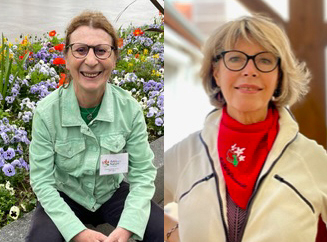 MONIQUE WINTZ & EVELINE GABORIT | Naturefriends Colombes (France) members and actively involved in the NFI Climate Justice Thematic Group
MONIQUE WINTZ & EVELINE GABORIT | Naturefriends Colombes (France) members and actively involved in the NFI Climate Justice Thematic Group
Please introduce yourself briefly.
Monique: I've been a member of Naturefriends Colombes for 12 years. My first contact with nature was when I walked in the countryside around my home department of Orne in Normandy. At the end of my school career, I was pushed to move to Paris to look for work that matched my training, first as a shorthand typist, and then as a secretary.
Eveline: I was born in a small village on the Atlantic Ocean in the Vendée, into a farming family. I came to Paris to work, first as an employee, then as a craftswoman in the hairdressing industry. I'm now retired. I offer my skills as a volunteer in a day centre for needy people.
How did you come to join Naturefriends? What motivates your active participation in the group? What specific activities does your group focus on?
Eveline: I've been a member of Colombes Naturefriends since 1999. In my spare time, I wanted to join environmentally friendly activities, be in contact with nature, and meet people who shared these hobbies. Our group offers a wide range of activities. Hiking, Nordic walking, snowshoeing, gardening in shared gardens, cultural activities, regular exchanges with our Naturefriends in Frankenthal, a town in Germany twinned with Colombes.
Monique: I joined the association in 2012 thanks to Martine Laizé, our president, who was at that time, like me, a member of the board of the Maison des Jeunes et de la Culture in Colombes.
In 2019, I discovered that NFI was organising for the second time a "Landscape of the Year 2018/2020 - Senegal/Gambia" trip for 2 weeks in January 2020. 5 Colombians took part and we were a total of 34 European Naturefriends. During this trip, I became aware of the importance of the climate and all its consequences. We attended workshops on improved stoves to reduce the use of wood (deforestation), and what's more to relieve the workload of Senegalese women. We also visited schools where, to my great surprise, the pupils were concerned about global warming and involved in various actions.
Naturefriends Colombes stands out for its proactive commitment to climate justice within the Naturefriends network. You are actively involved in the NFI Climate Justice Thematic Group and support the evaluation of projects proposed by our African Naturefriends. From your point of view, what does climate justice mean and what motivates your dedication to this cause?
Monique: Climate justice means creating equal opportunities between North and South in the fight against climate change. My motivation is simply human. Above all, I can't imagine that we can hope for peace in the world if there is a major imbalance between the countries of the North and the South.
Eveline: Climate justice means reducing the inequalities between the countries of the North and the South. The countries of the South suffer the consequences, despite their lesser responsibility for global pollution. My motivation came from discovering the international network. It's wonderful to see how a trip can broaden our horizons and strengthen our commitment to protecting nature.
With a group of about fifteen Naturefriends from Colombes and other sections, I took part in meetings with our African Naturefriends in Algeria and then twice in Senegal and Gambia. These experiences highlighted the challenges faced by the local communities in these regions as well as the importance of international support, particularly through initiatives such as the Climate Fund.
Naturefriends Colombes has already unanimously supported the new NFI campaign "1 euro for climate justice", addressed to Naturefriends groups. This initiative encourages every member of Naturefriends from the Global North to donate one euro a year to the Naturefriends Climate Fund. How did you convince your group to join the campaign, and how can NFI better encourage other Naturefriends groups/sections and national organisations to prioritise this issue in their agendas?
Monique: At our association's General Assembly, our President, who had attended the Naturefriends International Congress, told us about the campaign. Those who had already taken part in the trips confirmed the value of it. I think it's essential to set up an information campaign aimed at all Naturefriends in France. To raise their awareness and convince them, I think we should also include a few lines on the situation in France so that they feel concerned by this global problem. This communication falls within the remit of the National Office. It would be responsible for publication and distribution. Awareness of these issues is crucial for the future.
Eveline: At our General Meeting, we reminded our members of the objective of the Climate Fund. We explained the achievements financed by the Climate Fund, and the projects in African countries. A proposal was made to join NFI's international campaign "1 euro for climate justice" and to make an annual contribution of 1 euro per member. This was unanimously accepted.
Highlighting solidarity, a date in the year dedicated to generosity between Naturefriends, an opportunity to raise awareness.
Looking to the future, what do you foresee as the most important challenges facing Naturefriends Colombes and the international Naturefriends movement as a whole over the next decade?
Eveline: In Colombes, we're particularly concerned with safeguarding biodiversity, helping to maintain the ecological balance of our city of 90,000 inhabitants, in the Paris metropolis, adapting to the consequences of drought and heat in our highly urbanised city, and preserving the quality of life.
Globally, pollution on land, in the air, seas and oceans is a major problem for the environment, for the future of our Planet, and our health is under threat.
Monique: For the next 10 years, the issues that need to be discussed with our association and the NFI: Continue forest management to halt desertification (tree planting), and continue mangrove planting (major carbon absorbers). Drought and/or flooding: towns need to adapt their infrastructures. This applies in particular to rising sea levels (melting glaciers) resulting in coastal erosion and flooding of coastal areas and to the introduction of wastewater recycling, mainly for watering plantations.
(April 2024)
MAMADOU MBODJI | Vice-President of NFI 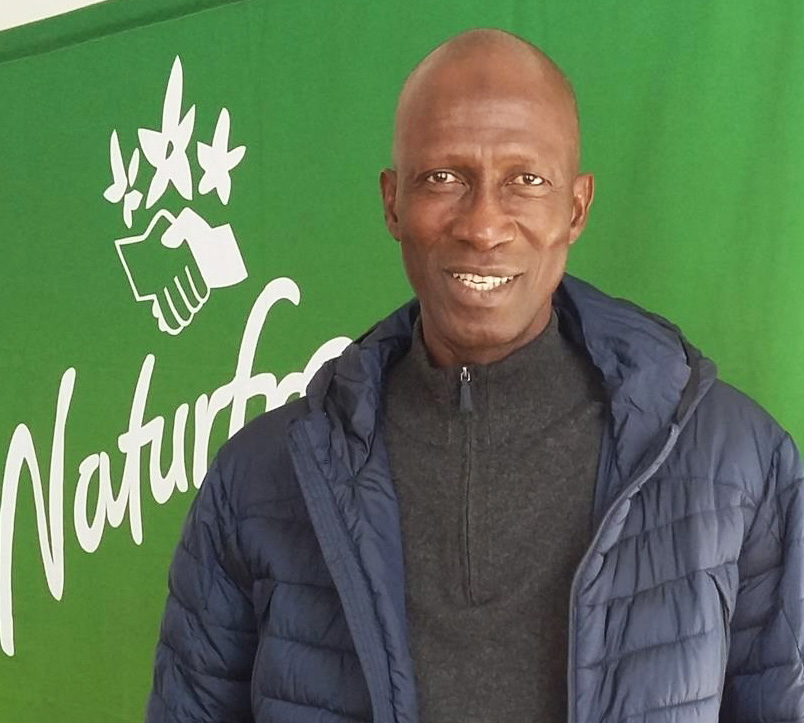
Mamadou, with your impressive 13-year term as vice-president of NFI, you are undoubtedly a familiar face in the Naturefriends community. Can you tell us about the background of your involvement with Naturefriends? What attracted you in the first place and what still motivates you after all these years?
It's a great honour and privilege to have been here since 2011. Over all these years I have never ceased to be the link between the Naturefriends of the North and those of the South in strengthening international solidarity.
I got my attachment to nature from my childhood surroundings, but I have to admit that my real activism began in the early 90s when having noted with frustration the rapid loss of biodiversity, I joined the Amis de la Nature du Sénégal, which was already doing an excellent job of raising awareness and taking practical action. Since then, I've made it my sacred duty to continue working for a more sustainable planet for present and future generations.
Currently, you are at the head of a major initiative of the Naturefriends Climate Fund - the tree sponsorship project. Can you go into more detail about this project, highlighting its needs, challenges and expected results?
Faced with the loss of biodiversity resulting from the harmful effects of global warming, this project is undoubtedly a mitigation strategy that acts as a carbon sequestration sink.
The project aims to reforest our country with fruit species to improve the nutritional quality of families while providing them with income. If this reforestation is to be disseminated and strengthened, there is still a huge need, as all these vulnerable rural communities should benefit. By carrying this project through to its end, the North and South will have gained together in safeguarding our natural resources for future generations.
Following the NFI 2023 Congress and our resolution on promoting climate justice, the "1 euro for climate justice" campaign is inviting Naturefriends groups from the Global North to join and continually support our Climate Fund projects. Some have already expressed interest, while others are considering it. What message would you like to send to these groups, especially those still in decision-making?
First of all, we must welcome and praise this very excellent initiative, which will strengthen the financial capacity of the Climate Fund to carry out participatory projects for African members. This is a critical time because the drastic impact of the climate crisis has had a lasting negative impact on the economic development of the African continent, which is not responsible for this climate disruption. Climate justice based on solidarity is a symbol of hope for all these vulnerable communities in the South. Acting here and now is a moral duty for everyone, otherwise the consequences will spare no one.
Looking to the future, given your role within Naturefriends Senegal and the international Naturefriends movement as a whole, what do you see as the most important challenges for both organisations over the next decade?
Seeing globally and acting locally should be the guiding principle because the stakes for our planet are enormous. By significantly reducing greenhouse gas emissions in industrialised countries and implementing sustainable alternatives for adapting to environmental impacts in developing countries, we will have made a great leap forward.
Our mission at the local level is to continue to serve communities and ecosystems, and at the international level, we must never cease to perform acts of solidarity for global peace.
(March 2024)
CHRISTIAN FACCHETTI | President Naturefriends Italy (GIAN)

Christian, we express our congratulations on your successful re-election in October 2023 as President of Naturefriends Italy. Would you mind shortly presenting yourself?
I am a mountain lover who enjoys travelling and hiking. Since I was a child, I have been very attracted to all aspects of Nature and how it can truly be experienced. This led me to a strong interest in indigenous populations to whom I dedicated some trips (and experiences) to better understand their approach to conservation.
You've been involved with Naturefriends for a long time. What personal factors led you to join the Naturefriends, and what keeps you motivated?
I have been a member of Italian Naturfriends since 1996. In the beginning, I was attracted by the opportunity to be able to spend my free time in very beautiful places in the mountains, travel and meet new people every time. After a few years, I felt it was my turn to do something to give the next generations the same opportunities I had... So, I became an increasingly active member until in 2014 I was assigned the presidency of the Italian federation. What kept me and continues to keep me motivated is the possibility, through our movement, to resist and fight against a capitalist system that promotes injustice, social division and believes that Nature is only a source of resources to be exploited as much as possible.
Naturefriends Italy is one of the most active Naturefriends organisations when it comes to specific issues such as water protection or solidarity with other organisations, such as the Bosnian Naturefriends. What are your organisation's priorities for the near future?
"Srebrenica City of Hope" is a romantic project that becomes more and more real year after year. It is about a man (Irvin Mujcic) who felt the call of his abused land and decided to take care of it. Much has already been done, but much remains to be done and GIAN will go on supporting this project. At the same time, in the next two years, we will focus a lot of our energies on water protection as our local groups have become very active in this field: recently we started a very interesting and fruitful collaboration with the local NF group from Steiermark in Austria which led to the funding of an Erasmus+ project with a third Portuguese partner.
The Naturefriends Climate Fund Vision 2030, which foresees a donation of 1 euro per European member per year to the Naturefriends Climate Fund, has already been embraced by Naturefriends Italy. What is the motivation behind this and how can NFI better motivate other Naturefriends groups/sections and national organisations to give the issue a higher priority on their agenda?
I think the NFI Climate Fund is really great!! Over the years, the Climate Fund has financed many very useful projects to mitigate the effects of climate change. It is not only a concrete response that our movement can give to the crisis of our times, but looking at how projects are selected, monitored, and developed, I think it is also an extraordinary story of how high results can be achieved with wise use of a small amount of money, focusing on smart ideas and involving local communities, that is essential to reach the target. GIAN will support the Climate Fund with an annual contribution of 1 euro per member from 2024: if we don't start ... we will never start!
Naturefriends Italy is also very active in setting up various exchange dialogues and cross-border workshops on common themes, such as with Naturefriends Austria. Do you have any ideas on how NFI could improve in promoting and supporting cross-border cooperation between groups, exchange of experiences and joint campaigns such as the Global Naturefriends Days?
I think it is important to identify common themes on which local groups of different federations want and can meet to exchange knowledge, approaches, or experiences. For NF Italy it was the protection of water as a common good that pushed us to look for other partners, with whom we created an informal working group to promote collaborations and projects.
What do you think will be the most significant challenges for the global Naturefriends movement and Naturefriends Italy in the next 10 years?
Certainly, the most significant challenge we have in front of us is adaptation to climate change, but we must not forget that while we are committed to building a more sustainable Europe, the large non-European ecosystems (especially rainforests) risk disappearing due to uncontrolled exploitation of their enormous resources to satisfy also European consumptions.
(February 2024)
ANDREAS SCHIEDER | President of Naturefriends Austria 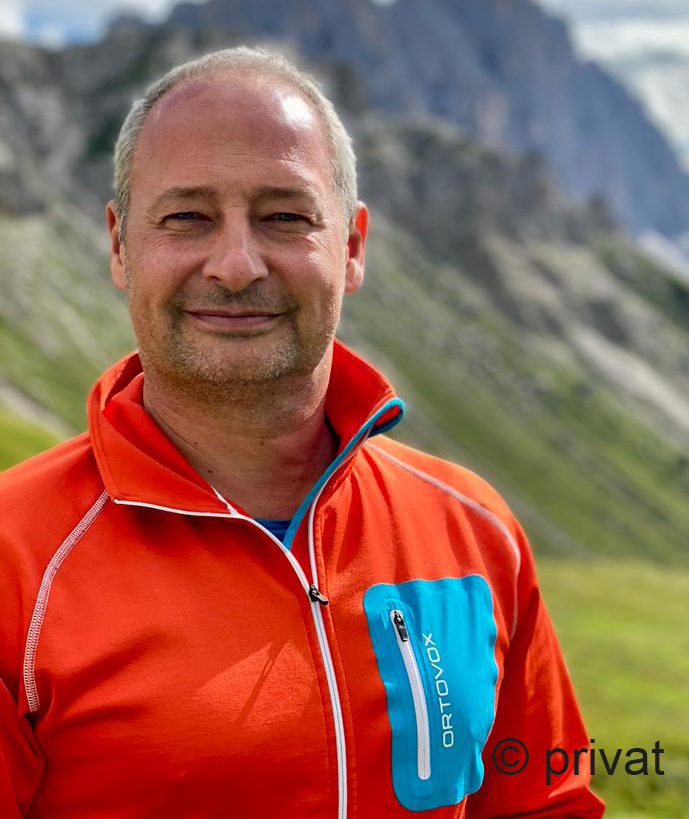
Andreas, you were re-elected President of Naturefriends Austria with 100% of the delegates' votes at the NFÖ Congress in June 2023. Congratulations to you! How did you join Naturefriends and what motivates you for your work?
I have been a member of Naturefriends for a long time (since 2001) and really appreciate the sense of community within the Naturefriends family. Being out in nature with like-minded people, friends and family, on foot, by bike or on skis - for me there is no better leisure activity. For my voluntary work as President of Naturefriends Austria, it is fascinating and motivating that the work of the organisation creates and maintains the Alpine infrastructure so that as many people as possible can experience nature in community.
With more than 160,000 members, Naturefriends Austria is the largest member organisation of Naturefriends International. Where do you see your strengths and challenges for future work?
As I mentioned, Naturefriends want to make it possible to experience nature together. To this end, we maintain the necessary alpine infrastructure (huts and hiking trails) and look after them, mostly on a voluntary basis. Safety is also a top priority for the organisation. This is why the Naturefriends Academy offers courses and training for greater safety in the mountains and also for many non-alpine sports.
The biggest challenge in the coming years will be the fight to preserve our natural habitats, which are under threat from climate change and overexploitation by mass tourism and agriculture. Where there is no longer any intact nature, we no longer need to talk about access and the right to use it.
Many people think of Naturefriends exclusively as a leisure and hiking organisation. For the national organisations of Naturefriends, political work has a different significance, with topics ranging from peace and social policy to free access to nature. What are your priorities in the political work of Naturefriends Austria?
Since Naturefriends Austria was founded in 1895, our aim has been to give everyone access to nature for recreational purposes. This has only existed in Austria since 1975, when access for everyone was legally stipulated in the Forest Act. Unfortunately, free access to nature is hindered in many ways. More and more often, Naturefriends come across "no trespassing" signs. It is not uncommon to have to pay high parking fees to get into the forest at all. Mushroom picking is also a recurring topic of discussion. Free access to lakes is also often obstructed in the truest sense of the word. It is therefore the task of Naturefriends to continue to fight for this right and to repeatedly point out problem areas - the "Berg frei!" campaign is currently running on the subject of rights of way and access rights.
In addition to rights of way and access rights, environmental protection is of course also an important aspect of Naturefriends' work. Ski area expansions have been the subject of much discussion in the media in recent years. Naturefriends Austria has clearly positioned itself as an environmental protection organisation and guardian of areas worthy of protection. We also try to find answers to important questions, such as how to deal with new energy sources, steering concepts, the development of nature, etc., and contribute to the discussion.
"Climate Justice for the future!" was the motto of the XXV Congress of Naturefriends International on 7 October 2023 in Spital am Pyhrn. Promoting the ideals of the movement, such as international solidarity, and making a concrete contribution to this - for example with the Naturefriends Climate Fund - are key objectives of Naturefriends' international work. In your opinion, how important is international engagement for a movement like Naturefriends?
Only international cooperation can help against the climate crisis; no country can do anything about it alone. At the same time, the responsibility and the opportunities and resources to do something about it are extremely unevenly distributed. The global North causes significantly more emissions, and the consequences are being far more severely felt in the global South. For this reason alone, it is our duty to network internationally and jointly develop and then implement answers and proposed solutions. Naturefriends International is setting a good example here with the aforementioned Climate Fund, tree planting campaigns in Africa and proposals for sustainable tourism.
Climate change and the loss of biodiversity are key challenges for EU policy, in which you are involved as a Member of the European Parliament. While these issues were a high priority at the beginning of the current government's term of office and the European Green Deal was driven forward with commitment, this commitment now seems to have fizzled out again in view of the economic impact of the war in Ukraine. What do you think is needed to return to a committed European climate, environmental and nature conservation policy?
We can now clearly see for whom the protection of our nature is a real concern and for whom it was only lip service from the outset. The next few years will be decisive in overcoming the consequences of climate change and preserving our natural resources. To do this, we need political majorities. I, therefore, hope that as many people as possible will vote in the upcoming European elections for parties that stand up for our nature and our planet. And many people are not only committed to nature and environmental protection and access to nature during the election campaign, but throughout the year, for example with Naturefriends Austria or elsewhere. And that is also a strong signal to politicians to get serious about the fight against climate change.
January 2024
RON MANUEL-BENEKER | Executive Director of Nivon (Naturefriends Netherlands) 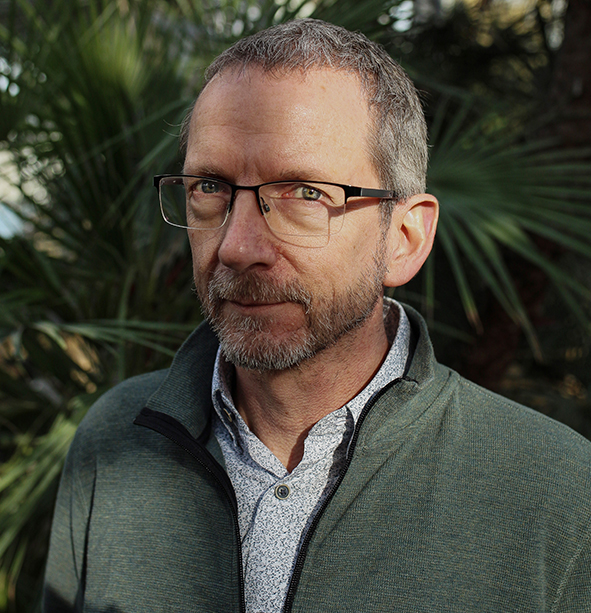
Ron, please shortly introduce yourself.
I’m Ron Manuel-Beneker, married with Marja Beneker-Manuel. Both born and raised in Amsterdam, two daughters and one son and now living in ‘’the countryside’’. Trained in finance and accounting I work daily as controller/ treasurer and executive director of Nivon Netherlands for 10 years now.
How did you get involved with the Naturefriends and what were and are your personal reasons for your commitment? What are your visions for the future of the Naturefriends movement?
I got involved with Nivon in 2013 when I was looking fort an other job opportunity. At that time I was CEO of a social housing association nearby Amsterdam. With my knowledge of real estate and finance it was really a small step.
My greatest aim was to get all the social houses of the association sustainable. The aim is still the same, the only thing that has changes is the type of real estate.
I believe that Nivon still ha a great future, we can make a difference. We can connect people with our Hikes, Naturefriends Houses and Camp Sites etc. and all that at a minimum of costs.
Your team is small and there are also numerous volunteers. From your point of view, what are the reasons and advantages for this system? And what challenges does it bring with it?
The Nivon secretariat (main office/ HQ) supports our 3.000 volunteers that do every activity Nivon has planned. The HQ does not run activities itself. A great plus on this system is that costs can stay low, so participants/ nivon members does not have to pay a commercial price.
Women in leadership positions are still in the minority in Naturefriends network. What do you think is needed to change outdated ways of thinking and give women a stronger voice in Naturefriends, both nationally and locally?
In my point of view Nivon succeeded long ago in appointing women in leadership positions. The president of our board is a woman (Mieke Minkes) and one of my predecessors is a woman. The amount of women in leadership positions with our local departments and workgroups is fifty / fifty, so no extra effort needed. Just keep on the good work.
Fighting climate change and contributing to climate justice are amongst the main topics of the international Naturefriends movement and many national associations already perceive the impact of climate change on their activities. How do you deal with this topic?
It is not to hard to live with SDG’s (Sustainable Development Goals). its in our DNA, no doubt about that!
What do you anticipate will be Nivon’s and the global Naturefriends movement's main challenges over the next ten years?
In the next decade our main target is to stay connected with our volunteers, who are the backbone of our organisation, without them we can not exist. They spread the word and do all the work!
November 2023
HANNELE PÖLLÄ | President of Suomen Retkeilyliitto ry (Naturefriends Finland)
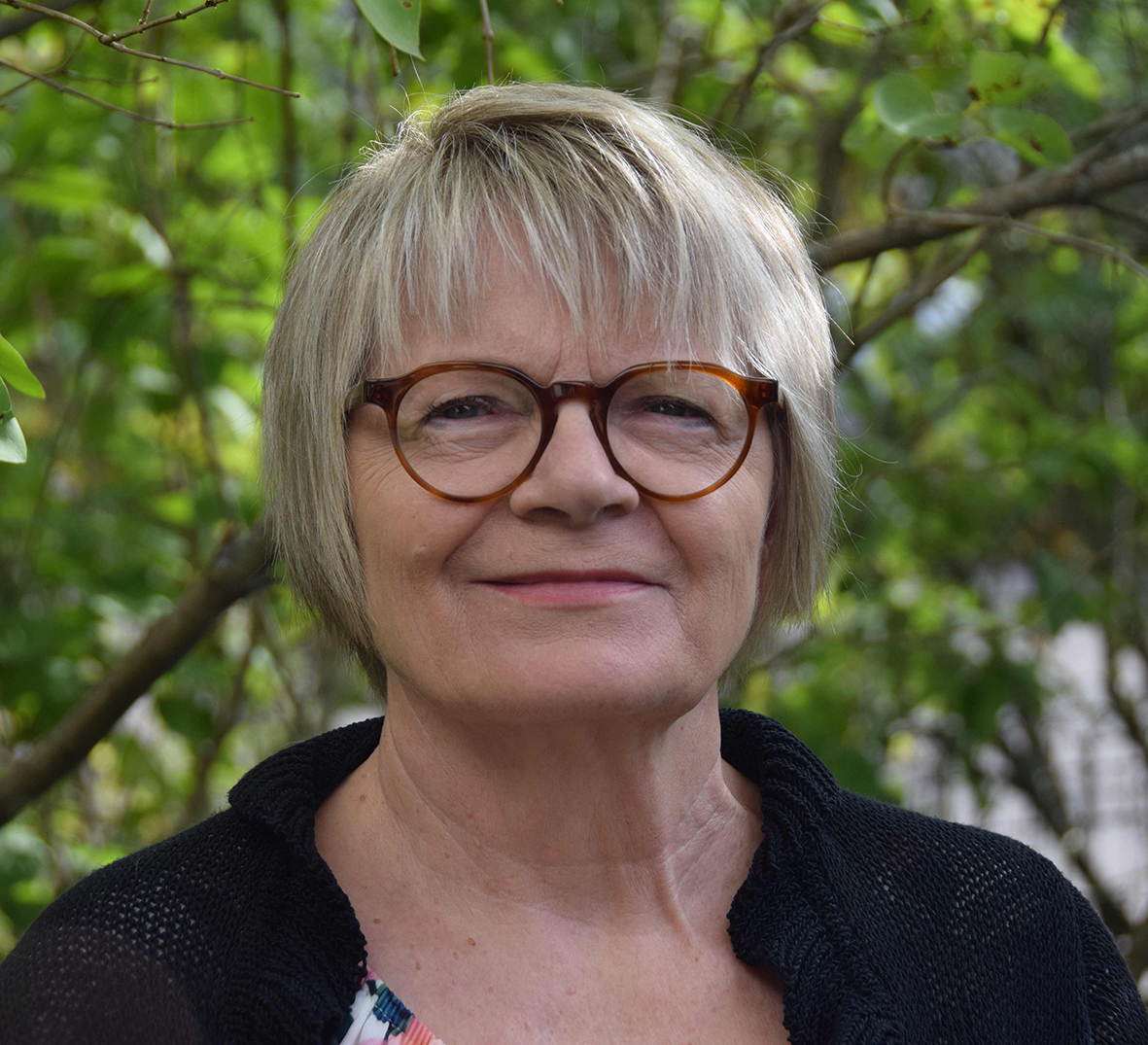 Hannele, we congratulate you on your election as President of Suomen Retkeilyliitto ry in April 2023. Please shortly introduce yourself.
Hannele, we congratulate you on your election as President of Suomen Retkeilyliitto ry in April 2023. Please shortly introduce yourself.
I am 68 years. I am now retired and have previously worked in different industrial companies with responsibilities in marketing, communications, and financial reporting. I am married and have two children and one grandson.
What are your objectives for the next few years? How would you describe your leadership style? Where do you personally see the biggest challenges? How have your tasks changed?
I want to build – together with my fellow members in the association – a vibrant, communicative entity which is easy to connect with and can attract new members.
My target thereby is also to make our organisation better known so that we can have more influence in issues concerning nature, environment, and outdoor activities.
As to my leadership style I want to be open and encourage discussion and involvement. At the same time, I am expecting things to proceed and get done. The biggest challenges are in the management of our finances and in our ability to renew our operations. Previously, I oversaw international cooperation and communications of Suomen Retkeilyliitto, so now I am leading and enabling the development of our entire association. I am quite excited to see what we can achieve.
You have been active for Naturefriends for many years. How did you get involved with the Naturefriends and what were and are your personal reasons for your commitment?
I got involved with the Naturefriends when Suomen Retkeilyliitto was looking for a person to coordinate the relationship with NFI. I wanted to have a meaningful hobby after having slowed down from working life, and the coordination of international cooperation was just the right thing at that time. Having worked in multinational companies it was interesting to be involved with NFI which is operating in many countries.
What aspects of the international Naturefriends work are particularly important to you? Would you mind sharing a particularly amazing experience with us?
The sense of community is very important to me. We in international Naturefriends share the same values and it has been great to see how people in different countries work for the shared goals even though the political and cultural environments are different. The supportive and friendly atmosphere in Naturefriends is amazing me every day. For me the nature and environment are in the focal point as we need them for life and recreation. The climate protection and sustainable way of life are as such self-evident but require continuous attention. In Finland, Suomen Retkeilyliitto is not so much active in domestic politics, but we give our opinion on various developments – for example in forestry – from our point of view as a trekking community.
What do you anticipate will be Naturefriends Finland and the global Naturefriends movement's main challenges over the next ten years?
In Finland, the age structure of our movement is a big concern. It is difficult to attract young people who are trekking individually and have their own communities online. Our activities rely on volunteers, and it is important to keep up the good spirit and motivate them. In the global Naturefriends movement, the challenge may be to find actions and activities where different member organisations can easily and effectively work together, sharing the same targets and spirit.
(September 2023)
MADELEINE MEIER & SEBASTIAN JAQUIÉRY | Co-Presidents of Naturefriends Switzerland
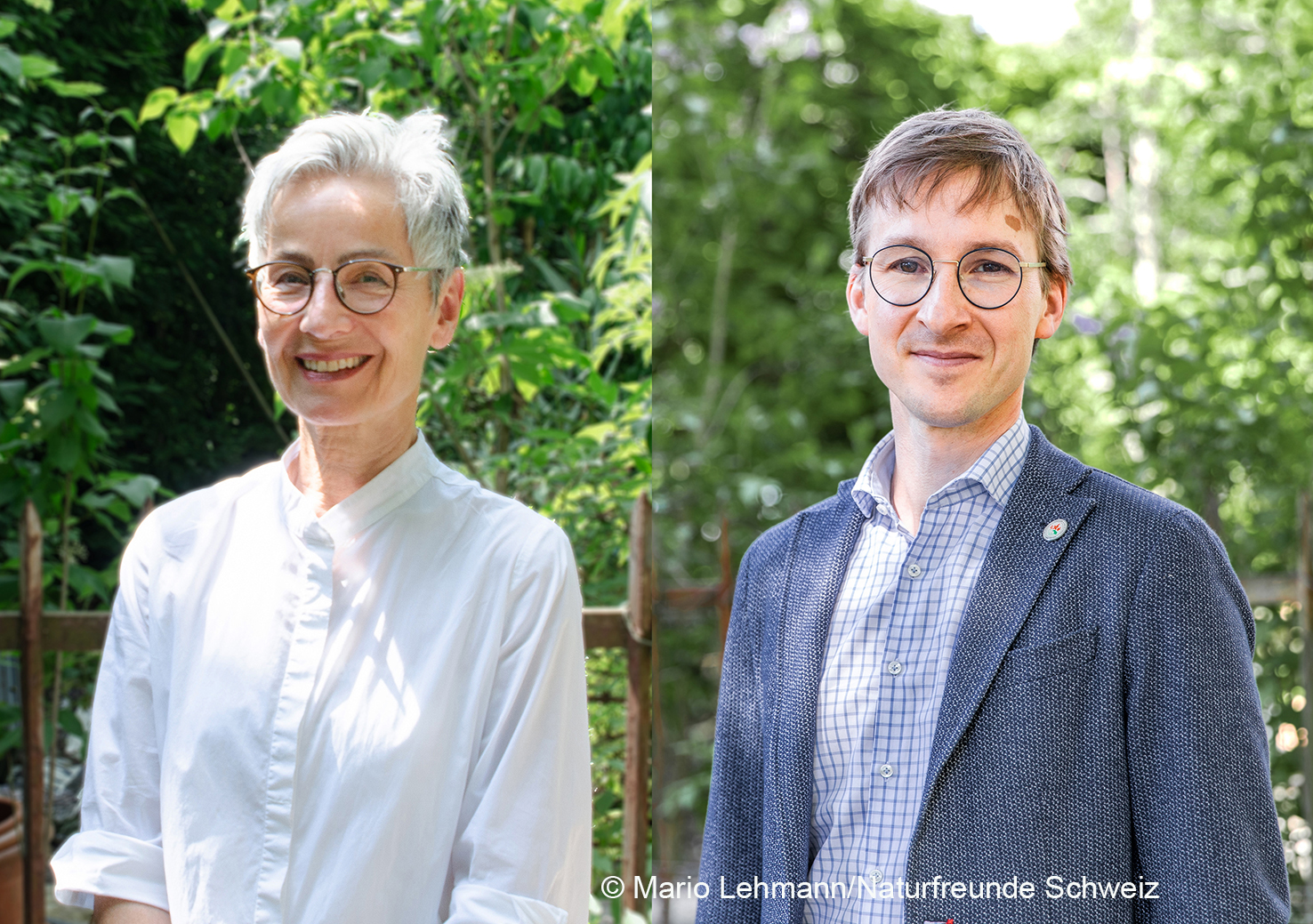
For the first time in the almost 100-year history of Naturefriends Switzerland, the association is led by a co-presidency: Madeleine Meier and Sebastian Jaquiéry. In the interview, the two talk about their main areas of work, their visions and about women in leadership positions.
Please introduce yourselves briefly!
Madeleine: My name is Madeleine Meier, I am 67 years old and live with my partner in Lucerne. Professionally, I worked as a research assistant in the cantonal administration and was also politically active in the social democratic party and as a member of the Lucerne city parliament. Today, in addition to my increased commitment to the Naturefriends, I volunteer once a week in the writing service for refugees, and this summer I am having interesting experiences as a volunteer in the cemetery café run by theologian friends. I enjoy doing things together with others, stimulating each other and having a good time together. Apart from that, I'm interested in the wider world and everything that has to do with it.
Sebastian: My name is Sebastian Jaquiéry. I am 40 years old, father of three small children and have been on the board of Naturefriends Switzerland since 2016. A few days ago, I arrived with the family in Pristina, Kosovo. My wife Sarah has taken up a position here for the Swiss Foreign Ministry. I will take care of the household and help the children learn English, as they'll be attending an English school here starting in September. Aside from that, I work for Naturefriends.
Since June 2023, you are jointly at the head of the Naturefriends Switzerland. Congratulations! Where do you see your strengths and future work priorities?
Madeleine: Developing and enriching good ideas together, complementing each other's approaches and encouraging implementation. A systematic way of working is important to me, and I also bring a wide range of professional and personal experience to the table. Now, several work priorities (including some that we initiated ourselves) are falling over us, so it will be important to prioritise them in terms of financial and human resources. At the moment, the focus is on developing a strategy and the resulting projects, but we are also concerned with membership and the organisation of activities.
Sebastian: I see myself as a creative head who likes to tackle new things. Working together towards common goals is also important to me. Together you can always achieve more. I also want to unleash this potential for Naturefriends Switzerland - that we set ourselves new, common goals in the association and work together towards them.
How did you get in touch with the Naturefriends? And what are your visions for the future of the Naturefriends movement?
Madeleine: I encountered the Naturefriends about 30 years ago. The fact that they emerged from the labour movement was a major reason for me to join. Now it's about giving the Naturefriends movement an even stronger voice in environmental and climate protection. It is common knowledge that the organisation of leisure time is a major factor in terms of environmental impact. Naturefriends offers attractive and environmentally friendly alternatives. With their further education offers, they can contribute to raising environmental awareness so that action will then follow.
Sebastian: My commitment to Naturefriends began in 2016 with a community service assignment. Here I discovered an exciting organisation with a great past, but which was hardly visible to the public in Switzerland anymore. I was determined to change that. Since then, as a member of the national board, I have been working towards raising the profile of Naturefriends Switzerland at all levels. When I think about the challenges of our time, I see great potential for our movement: we have to promote cohesion and oppose the centrifugal forces that want to divide our societies. Only with united forces will we succeed in stopping global challenges like climate change. Moreover, Naturefriends can set an example that one can also be happy with fewer things - perhaps happier than in our affluent society today.
Women in leadership positions are still in the minority in Naturefriends network. What do you think is needed to change outdated ways of thinking and give women a stronger voice in Naturefriends, both nationally and locally?
Madeleine: Within Naturefriends Switzerland, women are clearly in the minority as chairpersons of the sections (33%) but are approaching parity on the section boards (46%). The national board is made up of one-third women. I am confident that we can increase the proportion of women at both levels by consistently appointing women to new management bodies until the target is reached (for example, about 50:50). Of course, we cannot impose this on the sections, but we can raise awareness at every opportunity and set a good example. Finally, at the NFI level, it should be considered how the name of the organisation could include the feminine form of the term "Naturefriend".
Sebastian: That's a good question to which I don't have an answer right now. Immediately, I'm just very happy that there are three outstanding women on our board - not a matter of course given the current competition for female talent.
What do you think are the biggest challenges in the next 10 years - for Naturefriends Switzerland and for the international Naturefriends movement?
Madeleine: How can Naturefriends reconcile the needs of members and potential members with low-impact leisure behaviour? In an increasingly individualised society, how do we manage not only to maintain but to increase the joy of communal activities and experiences? Do we succeed in communicating these values to younger people as well? These are exciting and demanding challenges that we want to tackle together.
Sebastian: To keep renewing, defining and pursuing common goals and growing again. But we can do it!
(July 2023)
JUAN GARCÍA DEL RÍO | President of Esperanta Naturamikaro 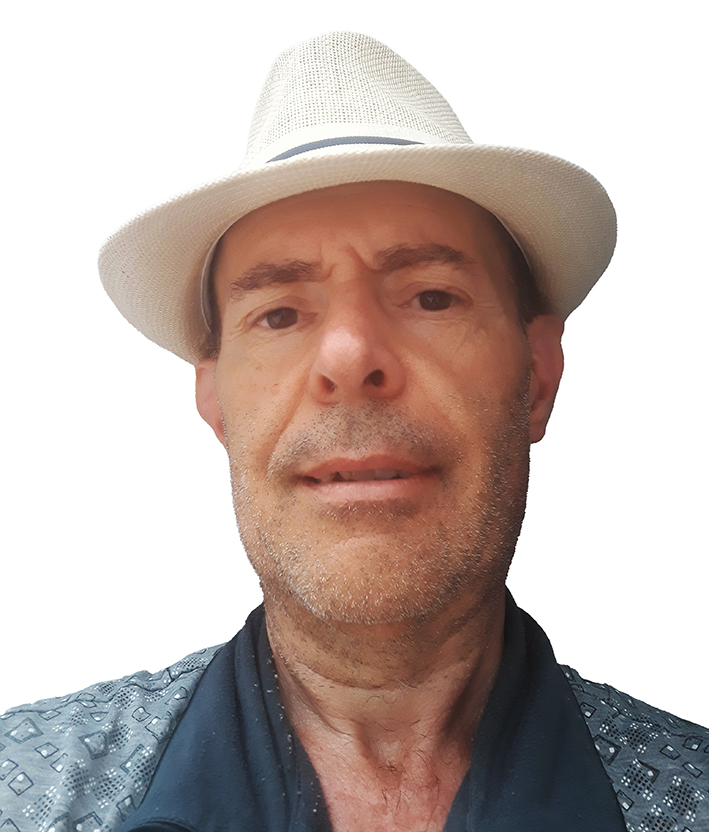
Juan, would you please introduce yourself.
I am Juan García del Río, born 57 years ago in Andalusia, where I still live. I have a degree in law. I have long been interested in ecology and climate change.
Juan, congratulations on your election as the new president of ESPERANTA NATURAMIKARO. What are your goals for the next few years?
Thank you for the congratulations. The main aims of our association (recognised by the state) will be to participate in initiatives for sustainable and solidarity tourism, to make our voice heard (in Spanish and Esperanto, which symbolises respect for regional languages) and to realise our ideal.
The Corona pandemic has affected us all. Many associations have problems with the maintenance/renovation of the the Naturefriends houses, Corona induced lost in income. How did Esperanta get through this period and handled with the house?
It has been a very difficult time for everyone. But people have understood that we have to live differently, more in harmony with nature. Being small has been an advantage for our association, which has been able to manage itself better than others, and even to achieve a certain expansion, not only in the Esperanto community.
Fighting climate change and contributing to climate justice are amongst the main topics of the international Naturefriends movement and many national associations already perceive the impact of climate change on their activities. How do you deal with this topic?
It is necessary to touch the conscience of humanity first, not only of governments, and this will be possible if a minimalist and sustainable attitude is accepted in the world economy.
What do you think will be the biggest challenges in the next 10 years – for Esperanta and for the international Naturefriends movement?
There will be an effort of continuity, which will have to take into account, especially at the international level, the evolution of the movement model parallel to the national workers' movements towards a transnational and participatory network model. A network that helps to realise alternative models of lifestyles: this is clear for Esperanto speakers, but perhaps we are behind in the Iberian Peninsula in general. Berg frei !
(May 2023)
MAMADOU SYLLA | Co-president of IYNF 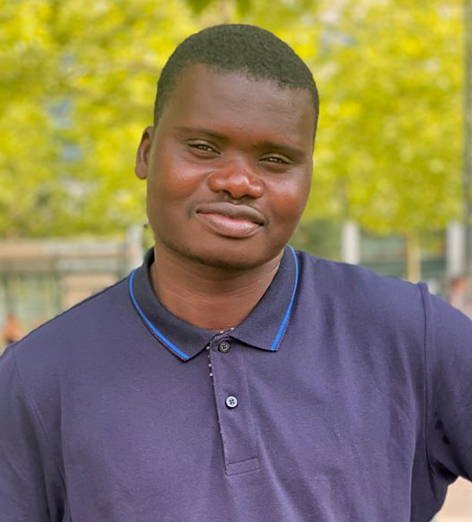
Mamadou, tell us about yourself!
I am Senegalese and have been a member of Naturefriends Senegal for several years now. I was born in a small village in the north of Senegal, where we cultivated the land to feed ourselves. I grew up in a large family in the African sense, with loving parents and many cousins, aunts and uncles who were always there to support me. You can imagine what it must be like in that family!
For many years I lived with my grandparents in the village, who taught me so much about life and nature. In our country, age is associated with wisdom; when someone says interesting things, we ask if it was their grandparents who educated them. I was fortunate to have grown up with my grandparents and to benefit from their immense wisdom and love. I learned to love the land and to understand the importance of community. It was from them that I developed my community involvement, which is a big part of who I am today.
To finish my secondary studies, I later moved in with my parents in Dakar. I then decided to return to Saint-Louis for my university studies at the Gaston Berger University, where I met a dynamic and passionate school community and above all it was there that I did my first activities with the Naturefriends, which very quickly became an integral part of myself.
I am very passionate about sports, music and good literature. I also enjoy spending time with my friends and family, as well as volunteering for causes that are close to my heart. But sometimes, like everyone else, I feel the need to take some time for myself, to recharge my batteries in nature and to enjoy the sun. For instance, I might get up very early to go for a walk through the trees or to the beach to see the sun. I am very curious by nature and I like to discover new things every day. I love to learn, whether it's by reading books, talking to people or trying things I don't know. That's a bit of who I am ...
How did you come into contact with Naturefriends? And what is your vision for the future of the Naturefriend movement?
I remember the day I was introduced to Naturefriends. It was my best friend, a true role model for me, who told me about ASAN while we were waiting in line for lunch in the university cafeteria. He suggested that I should join Naturefriends and help them set up a university unit in Saint Louis. I was already active in humanitarian associations. I didn't think twice. It was another opportunity for me to get more active for the planet, to learn new things and to meet committed people.
I clearly recall my first project with ASAN; it was an online exchange programme on sustainable tourism between Naturefriends from Senegal and I think from Austria. We were exchanging ideas during several online sessions and sharing our good practices in tourism. This first experience was the beginning of a great adventure for me. Afterwards, I participated in many reforestation campaigns, international exchanges, trainings and other programmes that allowed me to gain experience and grow intellectually and personally.
Also, our local cell grew rapidly and we soon found ourselves overwhelmed between our studies and our environmental activities. But this was never a burden for us, because we enjoyed discussing, planning, coordinating and trying to make things change in our society. And today, I am proud to say that the Naturefriends of the Université Gaston Berger are one of the most dynamic groups in Senegal.
I am optimistic about the future of the Naturefriends movement. We have over a century of history, struggle and positive impact behind us. Today, I see the will and commitment of the members of the movement, and this fills me with hope for the future of our planet. I am convinced that Naturefriends will continue to play an important role in preserving our environment and our way of life together. It is through our collective commitment and ability to act together that we can preserve the planet for future generations.
You are the newly elected co-president of IYNF. What motivated you to take on this responsibility? What are your objectives and what actions do you plan for your term?
Being elected as co-president of IYNF is an incredible honour for me and an opportunity to serve an organisation with such a rich history as Naturefriends. I would like to remind you that Naturefriends has more than a century of history and that IYNF exists for more than 43 years. It is so immense that I have sometimes felt intimidated. Nevertheless, I am determined to take on this responsibility with dedication and diligence, and to work closely with my colleagues in the Presidium and the Secretariat to achieve our common goals.
I have always been passionate about nature and the protection of our environment, and I am convinced that we all have a role to play in the preservation of our planet. I didn't think twice about accepting this position because I can now give even more to a cause that is dear to my heart. When Naturefriends Senegal proposed me to join the board, I did not hesitate at all. The fact that I was chosen is a testimony to the trust they have placed in me, and also to ASAN's commitment to youth.
I've collaborated on a number of projects with former members of the presidium, and they're all vibrant, fascinating people. Their dedication and knowledge inspire me. My colleagues in the new Presidium are also incredibly experienced people, as evidenced by their rich backgrounds. I am confident that we will achieve great things together, and I look forward to working with them to achieve our common goals. The secretariat is also very capable and experienced, and I know we can count on their support to help us succeed. I am definitely not alone.
As co-president, my goal is to strengthen cooperation between IYNF member organisations and to provide resources and training to help them achieve their goals. I want all member organisations to benefit from the expertise of this network and be encouraged to work together to address global environmental challenges. I am convinced that, through close and radical collaboration, we can achieve great things together. We have an incredible opportunity to share our knowledge, experience and resources to advance our common mission to protect our planet. I am convinced that if we work together in a strategic and focused way, we can achieve significant change. I am honoured to be part of this journey.
How do young people in your country, Senegal, perceive climate change and how are they affected by it? Do they feel climate injustice? Are there any specific actions they are involved in?
Senegal is one of the most vulnerable countries to climate change. Young people are aware of this because they suffer the consequences every day. The consequences are felt daily, such as the floods that regularly affect the neighbourhoods of Dakar and other cities, coastal erosion in several cities, especially in the region of Saint Louis, salinisation of the land, drought... This is why young Senegalese people are always mobilising to help their communities in various ways, through concrete actions, awareness raising and entrepreneurial projects. Senegalese youth is very concerned about climate change at all levels, whether in terms of activism, entrepreneurship, or scientific research. Unfortunately, not everyone gets media coverage. Above all, the means to fight climate change are inequitable, whether financial, technical or even structural.
I say it frankly today, we are in political configurations that certainly do not allow young people to express themselves to the extent of their anger against climate inaction. Also, the media are not necessarily interested in relaying the messages of these young Senegalese activists. Perhaps this is why we don't have an internationally known Senegalese Greta Thunberg. It is easier for an activist from a northern country to be heard than an activist from a southern country. But we try to change things by all means at our disposal. Today, young Senegalese are making a huge contribution to the global climate movement. You have to see the number of environmental associations in Senegal and the actions that are carried out every day. We are not waiting for someone to save us from the consequences of climate change that we experience on a daily basis. We are in the front line of the fight, whether at the national or international level.
You represented NFI at COP 27 in Sharm el-Sheikh. What did this experience mean to you? The results of the conference were rather disappointing. Did it inspire you to do more? And what projects did you "go home" with?
Considering the difficulties that young people, especially those from the Global South, face in gaining access to international forums, I was delighted to attend COP 27 in Egypt. This was made possible thanks to NFI, who kindly provided me with a badge, and the LDYC (Loss and Damage Youth Coalition), who funded my entire two-week stay during the negotiations. It was both rewarding and challenging, with negotiations, events, late night briefings, last minute meetings and demonstrations. It wasn't easy, but it was important for me to be there, to join thousands of young people in demanding pragmatic and more effective decisions.
Unfortunately, our politicians lack the courage and political will to take the right decisions. Everything is done half-heartedly and at an extremely slow pace. Climate change is a global emergency and should be treated as such. We have the solutions, but leaders lack the will. When the Covid pandemic happened, everything was done to eradicate it. Sadly, when it comes to ecology, everything is done by halves. It took us more than two decades to reach a solid agreement in Paris, and now we realise that we are far from the 1.5 degree target simply because we didn't do the right things. Similarly, it took us decades to get a promise of a climate change loss and damage fund, and we will still have to fight for its operationalisation at COP 28. However, it could be years before the victims of climate change receive the first money from this fund.
Meanwhile, the fossil fuel lobbies continue to enrich themselves at the population's expense. Floods and cyclones continue to destroy homes, crops and economic activities, and take thousands of lives. As an activist, I am more motivated than ever to make my voice heard. I continue to do what I have always done: hold politicians accountable to the people and do what is right for the people.
Thanks to Fridays for Future, more and more young people are raising their voices and demanding responsible action, both from policy makers and from their parents' and grandparents' generation. Yet little is happening to slow down man-made climate change and to transform our economic system towards sustainability. What needs to be done to make a difference? And how can NGOs like Naturefriends contribute to this?
Today, it is clear that we must act at all levels, both individually and collectively. Everyone has a duty to question his or her social responsibility. We need to change our patterns of production and consumption, question the meaning of our daily actions and, at the highest level, reform our capitalist economic model, which is inherently focused on growth at all costs. Capitalism is destructive and must be abandoned.
At ASAN, we realised early the importance of raising awareness of sustainability among young people. We have set up many programmes for school children to inform and sensitise them, as the Senegalese educational curriculum does not deal with environmental issues to any great extent. We also worked with the elder generation on fruit tree reforestation programmes to show that it is possible to choose and grow the food we eat in a more responsible way.
What we need is a synergy of individual and collective forces. Today, NGOs, such as Naturefriends, play a crucial role in the fight against climate change for a sustainable world. They act at different levels, in awareness raising, capacity building to help us in the ecological transition, activism and scientific research. Everyone has an important role to play. It is like a chain where every link is critical, and no link is allowed to weaken.
IYNF https://www.iynf.org/
(April 2023)
JANA CIVANOVA | President OTI Slovakia 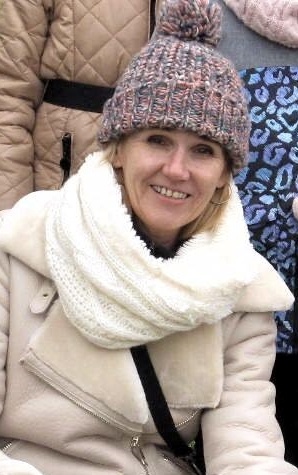
Jana, would you please introduce yourself!
I come from Nitra, the birthplace of OTI (Outdoor Training and Inclusion). As a teacher at primary school, I am dedicated to empowering children and young people through my work. I am huge dog lover and also organize an after-school club for kids - where they get to interact with our furry canine friends!
OTI SLOVAKIA was accepted as a partner organisation of NFI at the Annual Conference on 15 October 2022. How did you come into contact with Naturefriends and what was your motivation to join the international network of Naturefriends?
While seeking mountain huts in Austria for a delightful hiking weekend for our members, we discovered the incredible Naturefriends international network. With shared values and objectives, we were inspired to take our passion further and join this remarkable community!
What does it mean for you to be part of the international Naturefriends movement as one of the youngest and smallest member organisations of the NFI? How are the traditional values of Naturefriends perceived by your members? How do you participate in the international network and what are your expectations?
At OTI, we go beyond ordinary hiking adventures, combining them with enlightening experiences to broaden your understanding of important topics such as climate change, biodiversity loss, and sustainable tourism. As we explore Slovakia's rich cultural and natural heritage, we'll also delve into eco-friendly practices. Moreover, our members enjoy the perk of participating in international training through the esteemed Erasmus+ Sport programme.
Speaking of Erasmus: OTI SLOVAKIA has participated in several EU Erasmus+ projects so far. What experience have you gained and what perspectives do you see for future cooperation with organisations in the Naturefriends network?
We are always looking for exciting ways to engage and empower our youth. That's why we've embraced the Erasmus+ mobility programs, taking adventures to new heights in the breath-taking Low Tatras, where digital herbal hikes and azimuth calculations were quite the hit last year. Our passion for merging non-formal activities with outdoor sports has even led us to host international summer camps that battle the sedentary lifestyle through traditional games and dances!
This year, we're keeping the spirit alive by focusing on safety in the mountains and widening the horizons of our female members by introducing them to climbing. We would like to encourage other NFI members to seize every opportunity that comes their way, especially in the realm of the invigorating Erasmus+ sport program.
Let´s look to the future, to the year 2033 - where do you see OTI SLOVAKIA ten years from now? What are the priorities of your organisation? What is your vision, what excites you and what challenges will have to be overcome?
In 2023, our mission to improve Slovakia's trails was launched! We envision a future where trail marking is an extremely popular volunteering activity among youth. As part of this goal, we are striving for at least 20 certified mountain guides in the next decade - engaging more and more people with nature through exploration and adventure.
(March 2023)
Doris Banspach | Head of the International Department of the Naturefriends of Germany 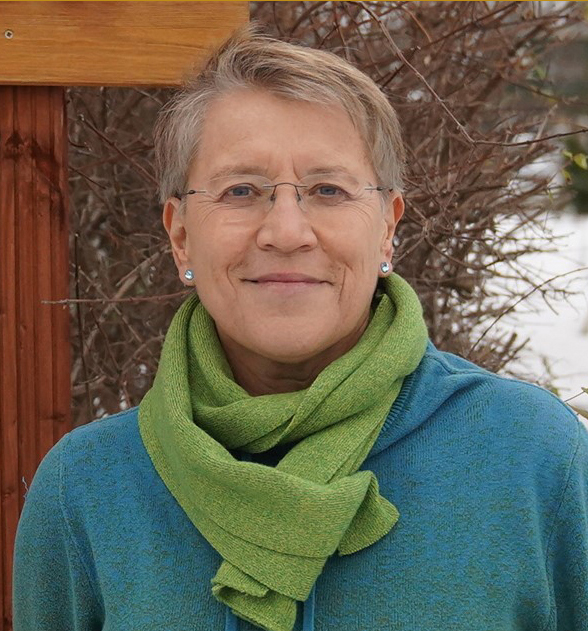
Doris Banspach has been involved in partnership initiatives with Naturefriends organisations from the Global South for many years. In this interview, she talks about the reasons for her commitment, her priorities and her visions.
Doris, you have been active for Naturefriends for many years. How did you get involved with the Naturefriends and what were and are your personal reasons for your commitment?
As an 18-year-old, I met a group of committed people who were already anchored in various organisations or associations: nature and environmental protection movements, trade unions and third-world initiatives. During hikes to Naturefriends' houses, the statutes of the Naturefriends fell into our hands and we realised that all our different interests and issues were anchored in this association. So, we founded a local group and from the very start we were mainly concerned with local nature and environmental protection (hedge planting, amphibian protection, building nest boxes) and with global issues. It was the time of apartheid in South Africa, and the civil rights movements in Central America. Through a friendship initiative in El Salvador, we had the opportunity to get in direct contact with the people there. This developed my interest and commitment to the countries of the Global South.
What issues are particularly close to your heart regarding the international Naturefriends work? Is there a particularly beautiful experience you would like to share with us?
Networking at an international level offers European Naturefriends the incredible opportunity to look beyond their own immediate environments. Dealing with the living conditions in the countries of the Global South also offers the opportunity to reflect on the reality of one's own life and to classify one's own actions in the context of contributing to a fairer world. The most beautiful experiences I always had were the personal encounters, e.g. with the Naturefriends in Senegal, with the young people from Just Act in The Gambia. I could absorb a lot of impressions to better understand the situation in the countries of the Global South, and at the same time I have been able to learn a lot from the people about their culture.
Climate justice is a central issue for your section as well as for the NFI. With the Naturefriends Climate Fund (link), we are offering the opportunity to all Naturefriends to make a donation to projects of the African Naturefriends that contribute to climate justice and improve the living conditions of the population. One example is the fruit tree plantations in villages in Senegal and The Gambia, which you have visited yourself during Naturefriends trips. What is your impression of these projects?
During my first trips with the Naturefriends in Senegal, the focus was often on fruit tree plantations. The trees were planted outside the villages. Naturefriends in Senegal experienced that the trees were too far away from the living environment of the people and did not always survive there. Later, the strategy was developed to plant trees directly near the people's homes, so that the trees could be better cared for and the direct benefit for the inhabitants became more tangible. This concept has proved successful and as the Senegalese Naturefriends regularly visit the plantations, they are developing well.
Unfortunately, we see that it is becoming more and more difficult to get members to volunteer. Many are very happy to take part in our activities. Nevertheless, it is difficult to take the step of becoming actively involved, even if the time resources are not a problem. What do you think is needed to motivate our members to take this step?
Personal actions are first and foremost the best advertisement to attract people, to motivate them to get involved. Setting good examples and showing appreciation for the people who want to do something are important aspects.
In order to attract more young people, the elderly should always give young people the chance to contribute their ideas. The old must also willing to learn from the young. Staying curious should be the basis for all Naturefriends. And that is the strength of Naturefriends: The personal and appreciative atmosphere in the groups is an important basis for a lasting commitment.
(January 2023)
Claudia Mazzocco | Co-director of Naturefriends Switzerland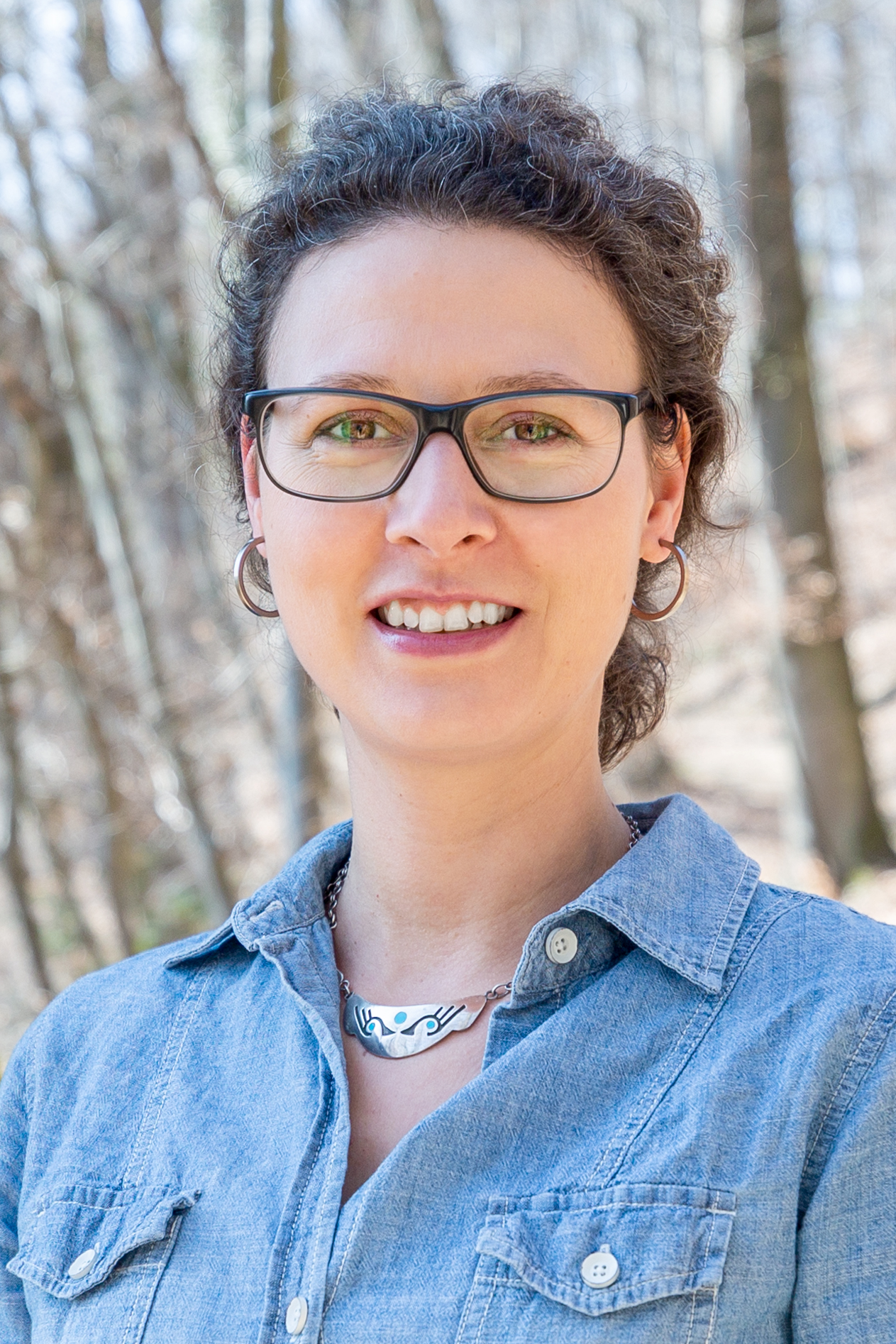
As of 1 July 2022, Claudia Mazzocco is the new co-director of Naturefriends Switzerland. The former deputy executive director, who is responsible for marketing and communications, will thus be on equal footing with current executive director Ramon Casanovas. In the interview, Claudia talks about her ideas and plans.
Women in leadership positions are unfortunately the exception in many Naturefriends organisations. Naturefriends Switzerland, like Naturefriends Germany, has set a good example in this respect. What do you think is needed to change old ways of thinking and to give women a stronger voice within Naturefriends - both on a national level and in local groups?
Women already make up 53% of Naturefriends Switzerland's members, and 46% of our sections are led by women presidents. I cannot judge how this looks in other Naturefriends associations. However, such statistics are important to know the structure of your own association. If it is predominantly men who are on the board or who make up most of the members, it is worth taking a closer look.
Women are often busy looking after children and relatives in addition to their professional duties. Are there offers for mothers and their children? Are there positions that are time-limited or low threshold? And are women addressed personally in the visual and written communication of associations and sections? Or are there only hikers and snowshoers on the publicity materials and websites, and are new tour leaders and presidents being sought? Potential chairmen and snowshoers need to be invited first to win them over to our movement in the first place.
How would you describe your leadership style? Where do you personally see the biggest challenges? How have your tasks changed?
The office of Naturefriends Switzerland is a small team of five employees, who share a total of 3,4 full-time equivalents among themselves. In addition, we regularly employ one or two people doing community service, who support us in the IT and administration areas for three to six months at a time. This requires a great deal of independence and personal responsibility from all of us in our areas of responsibility. We are very dependent on each other and must be able to rely on each other. This also means that we all have to think beyond our core areas, give our input and support each other in various tasks. This culture places high demands on all of us, but also gives us great freedom in how we organise our work and the opportunity to continually adapt and expand our processes.
Keeping track of all our commitments and meeting the needs of over a hundred sections, seventy Naturefriends houses and several partner organisations, as well as the demands of the Central Board, with scarce human and financial resources, is a real challenge. Every association management knows this challenge. Because of our networked way of working and the flat hierarchy, nothing fundamental has changed in my personal work. However, I feel more obliged to ensure that everything runs smoothly.
Naturefriends have a very diverse focus at national and regional level. Many groups organise activities for their members and run Naturefriends houses. A central theme is also the political work for the concerns of Naturefriends - from nature and environmental protection to working for peace and human rights. What are your personal priorities?
It is important to me not only to carry the values of the Naturefriends movement more to the outside world, but also to anchor them more deeply in our sections and houses. The environmental policy work of the national association plays a central role in this. However, we find that most of our sections are predominantly active in the field of leisure and have little political involvement. Bringing together these two arms of environmental engagement at the national level and the organisation of outdoor recreational activities at the local level is a major concern for me.
What do you think will be the biggest challenges in the next 10 years - for Naturefriends Switzerland and for the international Naturefriends movement?
Every four years, Switzerland conducts a nationwide survey on volunteerism for the benefit of people, society and the environment. The Volunteer Monitor Switzerland finds out why, in the midst of a monetarily dominated world, people volunteer without pay for the common good and thus promote the cohesion and vitality of society. The last Volunteer Monitor was published in 2020 and found, firstly, that the number of people volunteering remains stable and is not declining, as is often assumed. Secondly, the report describes that those who volunteer want to do and move something with other people, develop themselves in the process and contribute and expand their knowledge and skills. Having fun together and maintaining social contacts play a central role in this. The main obstacle is the difficulty of balancing work, family, and volunteering. In addition to the lack of time, a lack of team spirit, excessive bureaucracy or a lack of recognition also lead to people dropping out.
For our movement, it is essential to adapt our structures and services to these circumstances - not for lack of volunteers, but to remain attractive to volunteers. Questions we need to ask ourselves are, for example, how many people are really needed to run a section in a board, how to make their meetings more attractive, and how to create project-related opportunities. What kind of culture is there? Are new ideas being embraced or are we sticking to the status quo? Are our section boards and their associations closed societies or do they have the courage to hand over the design of new projects to new members who have joined? Without this openness to engage in new things, we will have a hard time in the long run to inspire people to commit to our causes.
An important goal of the international Friends-of-Nature work is to make the values of our movement, such as international solidarity, tangible and to make an active contribution, for example with the Naturefriends Climate Fund or with the Landscape of the Year in the border area of Senegal and Gambia. How important do you think international engagement is for a movement like Naturefriends? And how can we effectively contribute to more (international) solidarity right now?
The NFI Climate Fund is a great tool not only to make our members aware of the international projects of the Naturefriends financed from it, but also to bring the issue of climate justice, of solidarity between North and South, closer to them. I see the work of the Climate Fund as central in building this awareness. We try to integrate the Climate Fund more into our projects and inform our members about its mission, role and impact. For example, during the pre-Christmas period, we donate CHF 5 each to the Climate Fund when purchasing selected products from our web shop. In this way we aim to counteract the annual Christmas consumption - sustainable and quality products that benefit not only the recipients of the gifts, but also, through Climate Fund, people in other life situations who are directly affected by climate change.
(October 2022)
François Septier | President of Naturefriends France 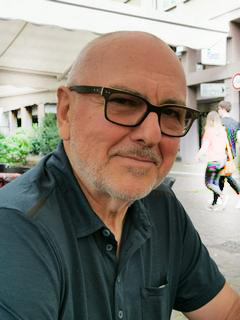
François Septier was elected president of Naturefriends France in June at the congress in Evian-les-Bains. In this interview, he tells us about his plans and the contribution of Naturefriends to greater climate justice.
François, we congratulate you on your election as President of Naturefriends France! What are your objectives for the next few years?
I have been a member of the Naturefriends for nine years: first in Saint Dié des Vosges, in the photo club of the Naturefriends, then in the Val d'Orbey where, responsible for the maintenance of the refuge chalet of the Lac Noir, I have led, together with the volunteers and the companies, the upgrading and improvement of the services and the premises of our chalet-refuge.
Elected National President at the Evian Congress in May 2022, I wish to contribute to the serene relaunch of our national federation at the service of the local associations as well as to the relaunch of our contribution to the action of the Naturefriends International. I believe it is particularly important to focus our efforts on:
- Internal communication and the link between the NFI, NF France and the local groups so that each member becomes aware that he or she belongs to a movement that goes beyond his or her local groups, that his or her membership fee is really used for the implementation of actions corresponding to the movement's raison d'être. The work on this awareness must of course extend beyond the national perimeter, and by strengthening a commitment within the NFI.
- External communication towards the public and partnership to make Naturefriends visible.
- The development of partnerships with actors whose field is similar or complementary.
- The investment of our movement through its activities in the respect and defence of the environment and biodiversity.
The Corona pandemic has affected us all. What is the situation for Naturefriends France?
Naturefriends France has experienced some difficulties in recent years, but the previous team tried to maintain links with NFI: we will try to strengthen our presence and our action. We will try to strengthen our presence and our action, but it will take some time to relaunch our federal action.
Naturefriends France is strongly linked to Naturefriends Africa - your involvement has contributed greatly to the development of the Naturefriends movement in Africa. Naturefriends France is involved in many projects in Africa and is also active in the NFI working group on climate justice.
How do you see the role and contribution of Naturefriends at national and international level for more climate justice and more generally for a transformation of the world towards sustainability (Agenda 2030)?
We have developed the project "Seeds for our insects and trees for Africa", with Betty Miclo at the head of the operation in the Haut Rhin and presented at our congress in Evian 2022 in the presence of Manfred Pils. This operation (modest today) creates a material and symbolic link between our local commitment and the international commitment of the movement. We would be happy to say a word about this operation and to officially hand over a cheque (also modest), resulting from it, at the October meeting at the Annual Conference.
(September 2022)
Martial Kouderin | Executive Director Centre Régional de Recherche et d'Education pour un Développement Intégré (CREDI-ONG)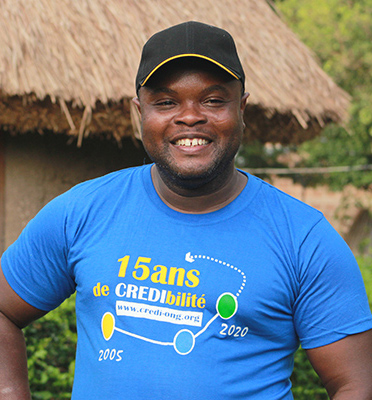
The Centre Régional de Recherche et d'Education pour un Développement Intégré (Regional Research and Education Centre for Integrated Development, CREDI-ONG) in Benin has been a partner organisation (C-Member) of Naturefriends International for over a decade. How did you get in touch with Naturefriends and what made you decide to join our movement? And what does being a member of the international Naturefriends movement mean to you?
It was while researching international organisations and movements working for nature conservation and sustainable management of natural resources that we came across Naturefriends International (NFI) on the web.
Given CREDI-ONG's vision of working for a greener and bluer world where people live in harmony with nature and given our then-nascent initiative of Community Based Natural Resource Management called "The Sitatunga Valley" in southern Benin, we felt that this movement could allow us to find organisations working for similar goals to not only learn from their experiences but also and above all to share our own.
Being a member of NFI is for us an expression of an awareness that the solutions to many of the major problems of our time are to be found in Nature and that we must commit ourselves to safeguard it at all costs to better enjoy its delights.
How has your organisation evolved during this period? What projects have you carried out and what projects are you currently working on?
Since its creation in 2005, CREDI-ONG has initiated two years later, a project for the creation of a Community Natural Park called "La Vallée du Sitatunga", an initiative for community management of natural resources in the south of Benin with the aim of contributing to the implementation of the Convention on Biological Diversity (CBD), ratified by Benin since 1992. This project, which was born following the creation of an aquaculture farm for experimentation, demonstration, and training in sustainable integrated agriculture, has taken precedence over all other actions and now constitutes an epicentre around which practically all our activities radiate.
The Sitatunga Valley initiative is still going strong even though it has passed several important milestones. Today, it continues to absorb us in view of the new challenges of commitment and involvement of local and national political authorities in its management and governance. A community of communes was created last year in this sense, and the development of ecotourism and the promotion of income-generating activities for the benefit of local communities to significantly reduce anthropic pressure on natural resources are more than topical.
Environmental education for young people through exchange programmes and discovery trips is a key part of our current activities, and it seems essential to us to work towards improving the living conditions of local populations through projects to develop socio-community infrastructures, in particular access to drinking water, school reinforcement, the promotion of renewable energies, waste management, the empowerment of women, the ecological restoration of ecosystems, etc.
Are the promotion of aquaculture and environmental protection still your main priorities? Tell us about the future of your organisation. What will be the biggest challenges in the coming years?
While the promotion of aquaculture has been put on hold for the time being, the protection of the environment is more the basis of CREDI-ONG's actions. With a surface area of more than 80,000 ha, the Sitatunga Valley Community Natural Park is the area of intervention and action of CREDI-ONG. This natural park has a Development and Management Plan that defines the main planning axes to make this initiative an "Intercommunal conservation model that ensures the improvement of the state of natural resources and the sustainability of ecosystem services for the happiness of the populations".
To this end, it will be necessary to work to strengthen the park's management system and conserve biodiversity and habitats, to enhance the value of natural resources through the development of tourism and environmental education while improving the living conditions of vulnerable groups. With the creation of the community of communes of the Sitatunga Valley, CREDI-ONG is now positioning itself as a technical support structure for local authorities
Through its 2019-2025 strategic plan, CREDI-ONG has assigned itself the heavy but noble mission of contributing to the emergence of a generation of world citizens capable of proposing and implementing innovative and local solutions for a human development respectful of Nature.
(April 2022)
Péniel Ngaba Kazou | President Association Centrafrique Action Verte Plus (Central African Republic)
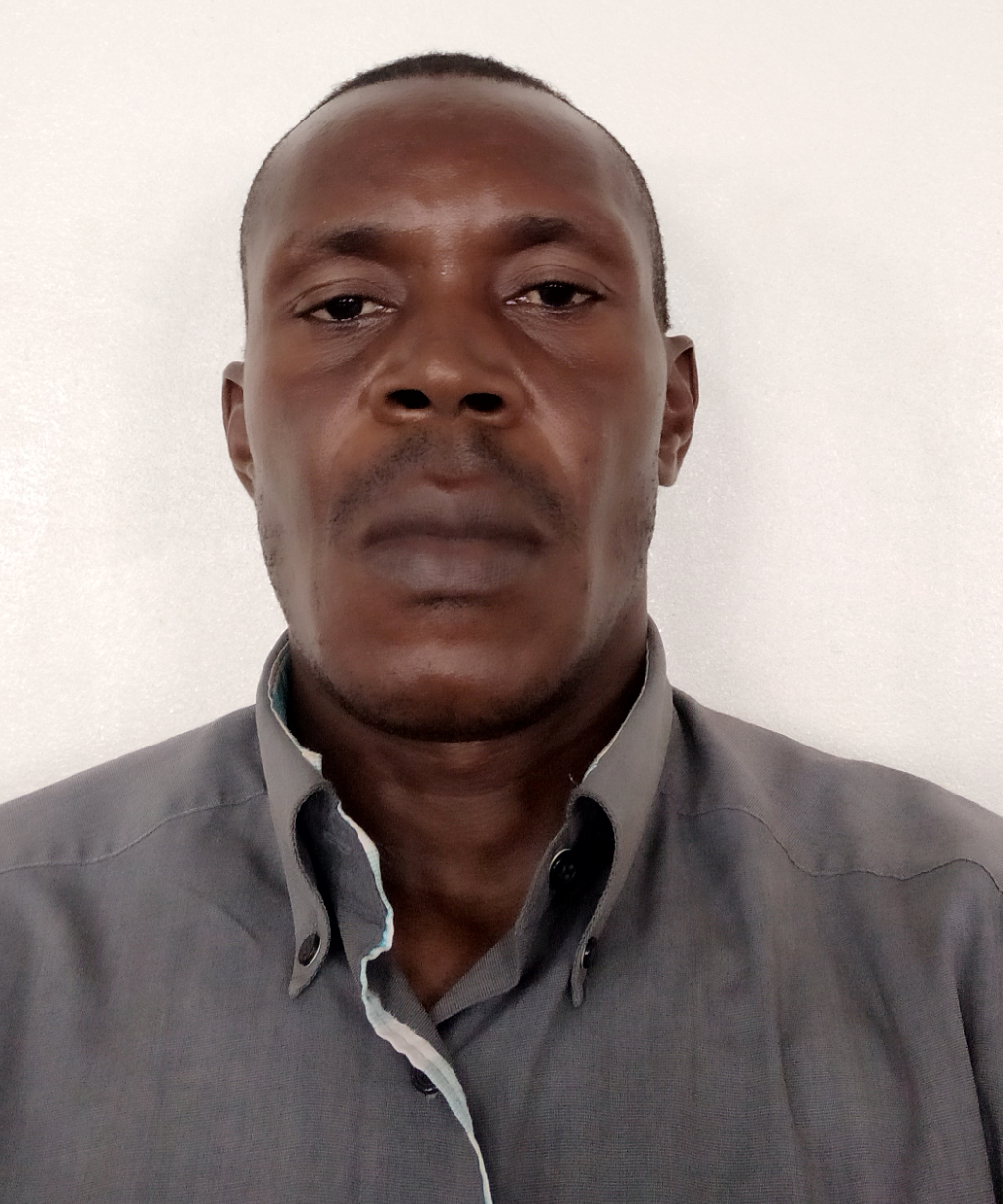
Péniel, your organization was accepted as a C-member (partner organisation) of Naturefriends International at the Annual Conference on 23 October 2021. How did you come into contact with Naturefriends and what was your motivation to join the international network of Naturefriends?
Indeed, we encountered the Naturefriends network through the French Federation of Naturefriends on 11 February 2021.
As our mission is to contribute to the search for sustainable solutions to the increasing environmental pollution, for a climatic balance both at national and global level, we would like to have an exchange of experiences in this framework, with the Naturefriends for a collective fight against global warming.
What are your expectations? And how do you want to get involved in the network?
Our expectations are based on the transfer of complementary knowledge related to the fight against global warming, to enable us to apply it in the environmental context of our country. Therefore, we would like to get involved in the network by becoming a member, developing synergies of actions through training workshops, conferences, and symposiums on the environment with the network.
What concrete activities have you implemented in the last few years? What projects are you currently working on? What are the priorities of your organisation?
In concrete terms, our activities have included: the collection of plastic bags along the rivers and the Oubangui River; awareness-raising and reforestation of shrubs in Ombella M'Poko following forest fires; awareness-raising on the use of natural fertiliser made from hay and ox dung on agricultural land.
We are currently working on a project to raise awareness about ‘environmentally disrespectful acts' as a source of climate change in the village of Yamboro. The priorities of our organisation are the fight against deforestation, the fight against increasing environmental pollution, the fight against the erosion of biodiversity and the raising of awareness about ecology.
Climate justice is a central theme in the international work of Friends of Nature. We all know that people in the Global South, who contribute little to global greenhouse gas emissions, are much more affected by climate change than people in European countries, for example. What is the impact of climate change on the lives of people in your country?
The impact of climate change on the lives of people in our country is centred on food scarcity (fruit and vegetables) in the market and difficulties in the supply of drinking water due to drought. In addition, flooding during the rainy season invades and turns agricultural land into swampy areas.
What do you think would be the most important measures to take? And what role can non-governmental organisations play in this?
The most important measures to be taken are to raise awareness and mobilise a broad public around climate protection issues, to raise awareness of environmentally disrespectful actions and to adopt eco-responsible behaviour.
Non-governmental organisations play a catalytic role by engaging in collective action to raise awareness of climate protection through environmentally friendly behaviour.
(March 2022)
Margarita Mileva | President of Priyateli na prirodata – Bulgaria (Friends of Nature Bulgaria) 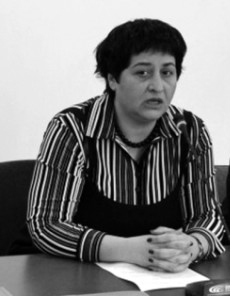
Margarita Mileva is one of the founders of the Bulgarian Friends of Nature (Priyateli na prirodata – Bulgaria), and currently its president. Margarita is a lawyer by profession and has been socio-politically active for many years. From the beginning of 2021, Bulgarian Friends of Nature is a partner organisation (C-Member) of NFI.
Friends of Nature Bulgaria is one of the youngest and smallest member organisations of the NFI. What does it mean for you to be part of the international Naturefriends movement? How are the traditional values of Naturefriends perceived by your members? How do you participate in the international network and what are your expectations?
As Friends of Nature Bulgaria, we consider ourselves part of Naturefriends International since our foundation. From the very beginning, our aim was to become a reliable partner of Naturefriends International in Bulgaria. The concrete occasion for our official registration as an association was the preparation of the European event "Europe for All", which took place in many European cities on 19 May 2019. Friends of Nature Bulgaria was the Bulgarian contact partner in the established Europe-wide network. In the preparation and implementation of the event in Sofia, we worked together with many progressive movements, organisations, and initiatives across Europe. We want to continue to engage and cooperate with NFI member organisations.
In our activities we promote nature, environment, and development of sport. We organise various educational activities to promote the development of free thinking and solidarity in the spirit of humanism, democracy, and internationalism. We advocate the fight against all tendencies of racism, anti-Semitism, xenophobia, and all forms of discrimination based on origin, political opinion, religious affiliation, and sexual orientation. We stand up for the rights of minorities and the socially disadvantaged. We believe that it is impossible to achieve change and success in one country. International solidarity, cooperation across borders and mutual support are therefore essential to the work of any progressive organisation. As an NFI member, we hope to be a reliable partner for other NFI members in Bulgaria through joint actions, initiatives, and positions.
What concrete activities have you implemented in recent years? What are the priorities of your organisation?
For many years, representatives of the Friends of Nature Bulgaria have been involved in the preparation of and participated in international hikes organised by Naturefriends Berlin in the Stara Planina Mountains. Unfortunately, due to the pandemic in the last two years, it was not possible to carry out the planned hikes. In May of this year we are planning, in cooperation with Naturefriends Berlin, a cultural and educational trip to Bulgaria under the motto "In the footsteps of anti-fascist history, from the capital to the Black Sea coast". We would also like to participate again in the preparation of the next international Naturefriends Berlin hike in the Stara Planina Mountains in July 2022, under the theme "Mountains, valleys and partisans".
The organisation of political education events on different topics such as climate justice, climate protection, racism, anti-Semitism, etc. is also part of our activities. In addition, we cooperate with other organisations in Bulgaria in different progressive initiatives and in the preparation and realisation of various events. For example, a few days ago we participated in the annual anti-fascist demonstration against the so-called Lukov march in February. Together with other organisations, we participated in the organisation of counter-demonstrations. General Hristo Lukov, to whom this march is dedicated, was a Bulgarian minister of war during the Second World War and the leader of the anti-communist and ultra-nationalist Union of Bulgarian National Legions.
You are the main driving force of your association. What was your personal motivation for getting involved and creating the association Friends of Nature Bulgaria?
I was born and raised in a small town at the foot of the Stara Planina Mountains. As a child, I often participated in school hikes, and it is since that time that my attachment to nature has strongly developed. Later, my interest in socio-political issues, such as environmental protection, climate justice and climate change, grew. Other issues such as equality, anti-fascism and anti-racism became central to me through my family. At the same time, in Bulgaria, organisations active in the fields of sport, mountain hiking, climate change, etc. are very often extremely conservative or even nationalistic in orientation. That's why it was important for me to get involved and to win over other comrades-in-arms. In the run-up to the Europe-wide demonstration "Europe for All" (2019), Friends of Nature Bulgaria was officially registered and confirmed as an association in the Bulgarian registration agency.
The Covid 19 pandemic led to a drastic decrease in gatherings and shared experiences in nature almost everywhere. How has the pandemic affected your activities within the association, but also, on a larger scale, your country's nature-based tourism activities?
With the onset of the Covid 19 pandemic, Friends of Nature Bulgaria, like other NFI organisations, faced great challenges. Due to the Corona requirements that were introduced, the possibility to conduct events, hikes and other activities was very limited. Wherever possible, we conducted our initiatives online via Zoom. However, we had to postpone many activities. We very much hope that we will finally be able to organise more activities this year.
The impact of the pandemic on the activities of Friends of Nature Bulgaria is just one example of the influence of Covid 19 on the socio-political life and economy of the country. Considering that Bulgaria is the poorest country in the EU and that the health care system and health care collapsed after 1989, the situation in the country was further aggravated by the pandemic. This is compounded by the very low vaccination rate of the population (29%). In terms of the number of deaths from Covid per capita, Bulgaria ranks first in Europe and second in the world.
Let´s look to the future, to the year 2032 - where do you see Friends of Nature Bulgaria ten years from now? What is your vision, what excites you and what challenges will have to be overcome?
The Friends of Nature Bulgaria wants to consolidate in the coming years and try to become active in other regions of Bulgaria. Due to the difficult political situation in the country and the ever-increasing influence of conservative and nationalist formations, this is a great challenge for us. A major problem for progressive organisations in Bulgaria is also the massive exodus of young and well-educated families. Over the last 30 years, more than 2 million of Bulgaria's approximately 8 million inhabitants have emigrated due to the lack of job opportunities. This is where we, Friends of Nature Bulgaria want to intervene and try to actively contact Bulgarian emigrants from Berlin and, together with Naturefriends Berlin, to enthuse Bulgarians for Naturefriends and thus gain activists in Berlin and Bulgaria.
In recent months, we have been trying to find out in the Bulgarian archives until when the Friends of Nature in Bulgaria already existed in the 1920s. We want to prepare a publication on this in the next few years. We are actively discussing with the Naturefriends Berlin the medium-term construction of the first self-catering house for the Friends of Nature Bulgaria. Currently we are trying to clarify organisational and financial questions and to find a suitable house.
Within the framework of our activities, we will continue to promote nature, environment, and sport development, and organise various educational activities to encourage the development of free thinking and solidarity in the spirit of humanism, democracy, and internationalism. We also want to develop new activities to combat all tendencies towards racism, anti-Semitism, xenophobia, and all forms of discrimination. We hope to make real progress in the coming years and continue to build our progressive and intercultural movement. In the medium term we hope to have achieved this goal and then apply for B membership of the NFI.
(February 2022)
Pramod Bhandari | President Friends of Nature Nepal Pokhara Group 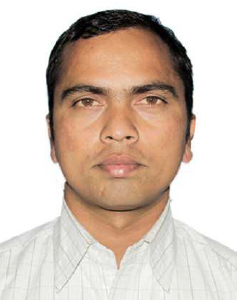
Friends of Nature Nepal Pokhara Group has been welcomed as a C-Member (partner organisation) of Naturefriends International at the Annual Conference 2021. We spoke to Pramod Bhandari, the president of the organization.
How did you get in touch with Naturefriends and what was your motivation for joining the Naturefriends International network? What are your expectations? And how would you like to get involved in the network?
First, I would like to thank all the members of the Naturefriends International group who welcomed us as a C-member at the Annual Conference 2021. And a Happy New Year to all!
We are social workers. We were involved in several social organizations and active for our community before joining Naturefriends International. Since we got in touch with Naturefriends, our motivation and inspiration has grown.
In 2015, French tourists visited Nepal. They got in touch with tour guide Mr Nabaraj Adhikari. In that year, Nepal was heavily affected by the earthquake. When they returned to France, Stefan Natty contacted the Naturefriends France group with the idea of developing sustainable tourism and solving environmental problems. The proposal was perfect because we needed support, then we formed the committee and started this group together. We love and support the Naturefriends movement. Currently, Friends of Nature Nepal Pokhara group is a C-Member of NFI.
Nepal is a small country with beautiful nature. When we joined Naturefriends International, we were motivated by the protection of our natural and cultural heritage and the development of sustainable tourism. We promote social and environmental responsibility and good environmental education.
We need something to change the current situation. Nepal is a developing country. Most people are poor and uninstructed. We want to collaborate with Naturefriends International, to receive support, advice and help to meet the basic needs of people living in rural areas. By joining the international rganization, we will be established at national and global level. We will be fully committed to our motto!
Which concrete activities have you been implementing in the past few years? What are the priorities of your organization?
For many years we have done a lot of outreaches, sustainable mountain tourism, solidarity, and environmental activities, we have conducted community awareness programmes, clean up and waste collection on the road in the valleys. When Naturefriends Berlin and some countries gave us financial support, we rehabilitated the Ambika Secondary School in Pokhara, which was severely damaged by the 2015 earthquake. Then, in 2019, our organisation used the reserve fund for the Kabilas Katsu Basic School for children in Tiffin Food. We are also supporting Shrijana Basic School for its reconstruction in 2020. In 2021, we also distributed food to poor families who were affected by the landslides. Recently, we distributed warm clothes in Chapang Basti Chitwan in collaboration with the tourism organisation.
Our organisation is all about networking within a group. Our aim is to change the way people think and act in terms of increasing the participation and involvement of the population in the development aspects. Friends of Nature Nepal Pokhara is a non-governmental, non-profit, non-political social organisation working in the field of environment and biodiversity. We work in partnership with NGOs, international NGOs, and communities. We try to solve their problems, develop innovative solutions, and implement them.
Internationality and solidarity are central values of the Naturefriends movement, which also distinguish us from many other 'leisure organization'. What does it mean for your association to be part of an international movement? And how are the traditional values of Naturefriends perceived by your members?
Internationality means many nations and solidarity is the value of teamwork of the Naturefriends movement. The Naturefriends have a symbol of hands joined, which means they work together. And we joined this group. The aim of our work is the sustainable development of the environment and society at regional, national, and international level.
The Covid-19 Pandemic has brought international tourism to a sudden halt, and there are still many restrictions, making cross-border travel difficult. What does the impact of the pandemic on tourism mean for your country?
The Covid-19 pandemic is having a significant effect on the tourism sector in Nepal. Nepal is a country rich in natural beauty and diverse ancient cultures. It is renewed for its famous Himalayas, including the highest mountain in the world. Mt Everest and the birthplace of Gautam Buddha. Nepal is therefore one of the most popular tourist attractions in the world, which means that it also heavily depends on tourism and travel for its economic sector. Pokhara is Nepal's top tourist destination.
The Covid-19 pandemic is affecting the socio-cultural structure, human psychology and the overall economic system, and the tourism industry is no exception. People who are directly employed in hotels, restaurants, trekking, mountaineering, airlines, and other tourism sub-sectors in Nepal are all significantly affected by the pandemic. This is not the first crisis of this level faced by the Nepalese tourism industry, the sector was severely affected by the catastrophic earthquake and trade disruptions along the southern border in 2015, which led to a severe decline in tourism. Tourism related businesses due to the pandemic have no prospect of tourist arrivals to this move many businesses can no longer sustain and pay their monthly rent to landlords. Hence the major impact of the pandemic on tourism for our country.
Considering the problems encountered before the pandemic (such as crowded hiking routes, littering and waste management,.) how can sustainable mountain tourism be implemented in the future? Which are the major challenges you see in your region?
The principles of sustainability refer to the three most important values - the environmental, economic, and socio-cultural aspects of tourism development - and a sustainable balance must be struck between these three dimensions to ensure its long-term sustainability. As the world is facing multiple challenges, we are doing everything in our power to ensure that the global operator is on the right track. We require tour operators and destination management companies to adopt sustainable practices and suppliers to be more aware of sustainability.
The main challenges facing Nepal's Ministry of Tourism are: should they make Nepal a Covid-19 free zone? How can they justify that it is a safe destination? How can domestic tourism be promoted? The challenge on the road to recovery. Another challenge is how can we portray our image to those who return home.
We look forward to your advice, support, and inspiration! Thank you.
(January 2022)
Chikara Mparanyi Philippe | Coordinator "Action le Vert" (Democratic Republic of Congo) 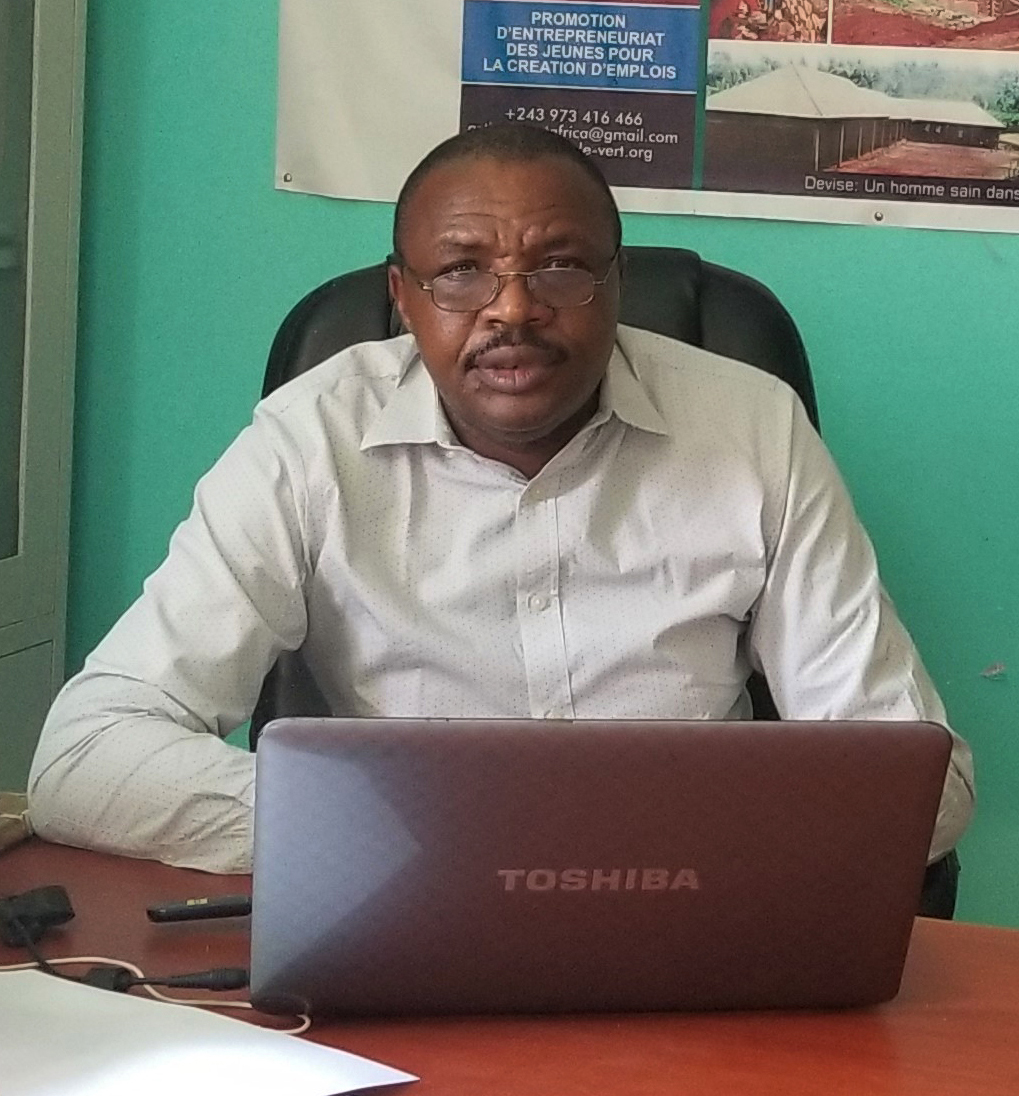
Chikara Mparanyi Philippe is the coordinator of Action le Vert Association from Democratic Republic of Congo, partner organisation (C-member) of NFI since October 2021. In this interview he talks about his commitment, the challenges for its organisation, and his plans and visions.
Action Le Vert has been accepted as a C-member (partner organisation) of Naturefriends International at the annual conference on 23 October 2021. How did you hear about the Naturefriends?
As someone who has been involved in the fight for nature conservation in our region for over 30 years, I found the Naturefriends website during my internet research, and discovered first-hand that there are other people in the world who have the same ambitions and goals for nature conservation as I do.
And what made you decide to apply for membership of the international Naturefriends movement?
There is a good saying in French: "qui se ressemble s'assemble" (people of the same kind stick together). I grew up on a plantation, my father was a planter and thanks to his work as a farmer, all his children were educated.
From a very young age, I knew how to water the young seedlings in the nursery, my joy was to see the young green seedlings in full growth. After my primary education, my father guided me to do secondary studies in General Agriculture and I continued with Agronomy until university.
Since childhood and from an early age I developed an experience of observing and questioning nature. Whenever I compare the vegetation (past-present landscape) of my village, its childhood nature with the present, a wound keeps swelling in my heart. A strong degradation of forests, farmlands, of all nature is accelerating.
There is a whole history to be written, a war to be fought, a struggle to be waged without pose. This is what led us to create Action Le Vert, an organisation that began with young agronomists who wanted to raise awareness and train farmers in new farming techniques, not only to increase production, but also to preserve the biological structure of their land. Since 1998, the structure had taken on the aspect of a non-governmental organisation that was already supervising local producers (men, women, and young people of all tendencies). In short, in 2021, the structure had its own legal personality.
To make our interventions effective, to stop the degradation of forests and agricultural land and to restore the destroyed ecosystems to their natural state, we need a partnership, a collaboration with all the global actors who are involved in the fight against climate change and who are working to achieve the objectives of sustainable development. Apart from all the above, I found that we are pursuing the same goals. This is what made us join the Naturefriends movement to fight this battle together.
What are the strengths of your work?
The strengths of our work are that we cooperate closely with the grassroots population, our beneficiaries are involved in all phases of the projects, in the design, implementation and evaluation.
Secondly, we have a dynamic and multidisciplinary staff in the specific field of environmental protection and our areas of intervention. The projects already carried out continue to regenerate the positive impact and contribute to the development of the area.
What are the successes you have achieved in recent years or what are the greatest challenges you have to face?
We have already carried out several projects, particularly in the field of reforestation, landscape restoration, anti-erosion control for the restoration of ecosystems in several communities.
In order to reduce the vulnerability of people in South Kivu, Action le Vert proposes an integrated model of sustainable agriculture that includes biodiversity. This would involve farmers practicing agriculture based on agroforestry, livestock integration and fish farming with the result of increasing agricultural productivity (thus reducing the pressure of deforestation and poaching as well as unsustainable exploitation of protected areas). Pressures on wood resources will be reduced through the provision of renewable energy and energy efficiency (less reliance on wood for cooking, etc.). This will result in increased resilience of agricultural ecosystems and contribute to nature conservation goals. A major challenge is the lack of technical capacity in agroforestry and funding for sustainable agriculture and protected areas, as well as inadequate land management.
Climate justice is a central theme in the international work of the Naturefriends. We all know that people in the South, who contribute little to global greenhouse gas emissions, are much more affected by climate change than people in Europe, for example. What is the impact of climate change on the lives of people in your country? What do you think would be the most important measures to take? And what role can non-governmental organisations play in this?
Climate change is causing an increase in agricultural losses and damages (flooding/loss of forests), will decrease land productivity and agricultural yields and degrade ecosystems. This leads to human vulnerability through decreased food security. This vulnerability is fuelled by a vicious circle of extreme poverty/precariousness (hunger, malnutrition, unemployment, etc.), unsustainable agricultural practices (deforestation and forest degradation, slash-and-burn and subsistence farming), lack of access to energy, inadequate park management and governance, and lack of knowledge about conservation.
Implement projects to restore agroforestry landscapes, vulnerability to climate change will be reduced because food and water security, infrastructure, environment (ecosystems/services will be improved). Projects to reduce the vulnerability of rural populations in the Democratic Republic of Congo in its eastern part, more precisely in the province of South Kivu, through reforestation and the implementation of climate sensitive agriculture. Training projects for young people and women in agricultural entrepreneurship for their socio-economic and professional self-reliance.
Non-governmental organisations play a very important role in raising awareness and mobilising communities to reduce the effects of climate change despite their very limited financial resources. They play the intermediary role between the government and the grassroots. They design, mobilise funds, implement projects for the benefit of the beneficiary populations. They advocate with both national and international authorities to contribute to the achievement of sustainable development goals.
(November 2021)
Irvin Mujčić | Prijatelji Prirode – Oaza Mira (Bosnian Naturefriends) 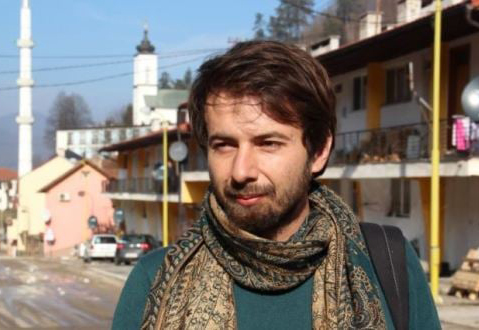
Irvin Mujčić is the founder and head of Bosnian Naturefriends – Oasis of Peace (Prijatelji Prirode – Oaza Mira), partner organisation (C-member) of NFI since 2019. In this interview he talks about his commitment, the challenges for the new organisation, and his plans and visions.
Prijatelji Prirode – Oaza Mira is one of our youngest member organisations. What are the priorities of your organisation? Which concrete activities have you been implementing in the past few years?
Prijatelji Prirode – Oaza Mira is located in Srebrenica, Eastern Bosnia, on the border with Serbia. The Balkans is a special European region in many ways: geopolitical, ecological, historical, etc. The Balkans is also a very controversial region, for example, Bosnia has the last European virgin forest and the most polluted city in Europe. However, we must not forget that this is also the European region where the first armed conflict after World War II took place, which led to a three-year civil war and many war crimes against humanity, such as the Srebrenica genocide. I myself belong to the generation we usually refer to as "children of war." We grew up during the war, our childhood was lost there. After the war, we inherited a completely destroyed country: not only in terms of infrastructure, but also spiritually and mentally.
The priority of our NGO is therefore to rebuild our country, from the infrastructure to the relations between the different ethnic and religious groups. The real question is how to achieve this. This is where the concept of nature becomes central as the basis for reconciliation. It is around this concept that we build all the different activities of our NGO. The region itself is rich in natural, human and historical resources and potentials that are not yet developed.
We started implementing sustainable tourism activities four years ago, first by creating a network with different families, and then by involving them in the development of trekking and hiking trails that connect the different villages. At the same time, it is very important to make people aware of the beauty of our land, but also how to protect it. That is why we have started to organize workshops with children on environmental education and voluntary actions to clean up green areas or historical monuments.
We also organize a program for schools visiting the Srebrenica genocide memorial on genocide and human rights education in connection with climate change and environmental education. Two years ago, we launched a new project called "Time of the Bogomils".
We are rebuilding a destroyed village in Srebrenica using ancient traditional methods and as many natural materials as possible. So far we have built four wooden houses and we are in the first phase of building a water mill. This village is the home of the Bosnian Naturefriends. The idea is to gather and promote the best environmental practices and develop new ones in order to build the most sustainable village possible.
How did you get in touch with Naturefriends and what was your motivation for joining the international Naturefriends network? What are your expectations? And how would you like to get involved in the network?
During the war, I landed as a refugee in a small town in the Italian Alps. Nearby, there is a group and a Naturefriends House. It was only in 2014 that I returned to Bosnia and two years later I was contacted by the Italian Naturefriends group with the idea of developing sustainable tourism and a Bosnian Naturefriends group. Their proposal was perfect because it gave a structure to develop ideas that were already there and so we started this adventure together. I personally love the history and courage of the Naturefriends movement. That strong decision to leave city life and go back to nature and try something new. We need something like that in Srebrenica, a radical decision to change the current situation.
I respect and I am interested in getting to know more about the Naturefriends Houses and local groups around the globe. We are still a small group under construction, but I think we can also have a special and interesting contribution to the Naturefriends movement.
The pandemic resulted in a sudden stop of international tourism, and there are still a lot of restrictions, that complicate cross-border travel. What are the consequences for your organisation?
The year before the pandemic, we had more than 4000 visitors, 95% of which came from outside Bosnia and Herzegovina. The first year of the pandemic meant a year without guests or visitors, which is a lot for an NGO that self-finances all its activities through sustainable tourism. But it gave us a lot of time to build our village.
For this year’s Global Naturefriends Days, Dutch Naturefriends Nivon initiated a solidarity campaign to collect donations for your initiative “Srebrenica – City of Hope”. This way, they show international solidarity in a very practical way and fill one of the key values of our movement with concrete action. What does solidarity mean to you? And how can/should solidarity be lived within the NFI network – and outside?
Solidarity is one of the most beautiful human concepts and acts. It simply means helping someone in a time of need. For more than 125 years, the Naturefriends has had the symbol of joined hands as its emblem, which is the way to show solidarity inside and outside the network: joined hands.
(September 2021)
Omar Jammeh, Director of JUST ACT 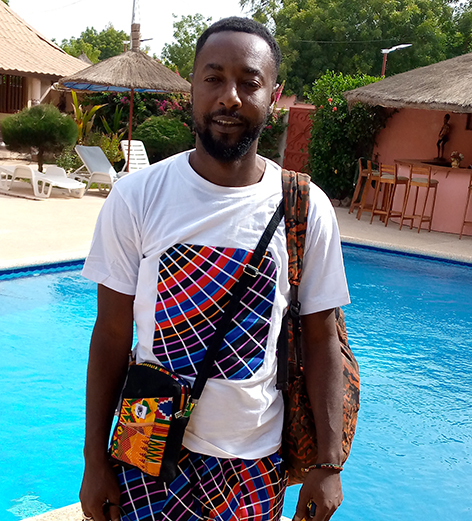
Omar Jammeh, Director of the Gambian organisation JUST ACT (Janjanbureh United for Sustainable Tourism and Community Training) – partner organisation of NFI since 2019 – is passionately committed to empowering young people and women in his home country and giving them prospects for the future. He tells us in the interview about the initiatives and projects that support this.
JUST ACT has been a partner organisation (C-member) of Naturefriends International since 2019. What was your motivation to get involved in the international Naturefriends movement?
Our motivation to be a partner in the NFI network emerged from the “Landscape of the Year” in The Gambia and Senegal and from being part of the preparations and implementation of nature hiking trails in both countries. NFI's approach and model became inspiring, especially in the areas of climate change and climate justice, as well as youth and women's empowerment.
JUST ACT stands for "Janjanbureh United for Sustainable Tourism and Community Training". So the focus of your work is the development of sustainable tourism and the training of young people. What exactly are your goals and what does your work look like?
In 2015 JUST ACT was registered as an independent organization with The National Youth Council The Gambia and Attorney General Chambers retaining the same main objectives as JUST ACT Gambia.
Our main objectives are to enable community-led development, to support accredited and non-accredited training through local organisations, thereby developing life skills and income opportunities, to make best use of local expertise in developing training, to enable responsible, sustainable and pro-poor tourism in Janjanbureh and surrounding areas for the benefit of the community while respecting local culture, traditions and the natural environment, and enabling economic revitalisation of rural areas to provide a thriving town for today's generation of students, curbing rural exodus, urban migration and illegal migration.
However, rural-urban migration is declining among the island´s youth as viable projects are currently ongoing and creating income for over dozens including females and migrant returnees from Sahara and Europe.
What is the potential of community-based tourism (CBT) in the Janjanbureh region? What does it mean for the region?
Community-based tourism has great potential and impacts on the lives of both locals and visitors to our community. In Janjanbureh, CBT has meant a lot to the players in tourism and its stakeholders over the past, respectively in the region.
In a precise and simple context CBT creates the following elements:
- Do – hands on experience of local life-not just taking photos
- Learn – the chance to learn something about local life and culture
- Feel – the experience stimulates excitement, interest, wonder pride, etc
- Share – experince with travel companions and local community members
- Benefit – local community members benefit from offering CBT tours
I believe that CBT is a unique model which can lead to a responsible and sustainable tourism development without compromise to environmental hazards or commercialization of local culture – and which maximises the benefits through active local participation.
What projects are you currently working on? To what extent has the Corona pandemic affected you and your work?
Currently, JUST ACT is embarking on two major projects ultimately to mitigate against ‘’Climate Change’’.
1. Poultry and slaughtering house (financed by ENABEL\RIEC):
The COVID-19 pandemic was a major setback for JUST ACT, but over time we were able to develop strategies to find a way to live with it and redesign a tourism-agriculture project that will help to create jobs and also to supply the local market with healthy and organic food. Poultry farming is emerging from the impact of COVID-19 in shifting to agro-tourism and developing an integrated agricultural concept taking into account the value-added chain. More information on the project can be found here: https://www.justactgambia.org/post/a-second-great-building-project-for-independent-just-act
2. Restoration of Mangroves (financed by Naturefriends Germany/German Government):
The mangrove project was born out of the fact that our communities are affected by erosion and salt intrusion due to human activities. Naturfriends Germany have funded the restoration of mangroves on 5 hectares land at Ballangharr in the Central River Region. Community members will be trained in mangrove management and nurseries through the network of youth and women's institutions. The project is planned for three years and the partners for the renaturation come from various environmental groups. (More information on the project can be found here: https://www.nf-int.org/en/about-us/naturefriends-news#Mangroven)
The border region of The Gambia and Senegal, where you are active, was awarded " Naturefriends Landscape of the Year" in 2018 - the first on the African continent. What has happened since then? What have the two years as "Landscape of the Year" achieved in the region, but also for JUST ACT itself?
The "Landscape of the Year" has created cross-border networking for communities in The Gambia and Senegal, especially for rural settlements, through the collaboration of youth and women. Most importantly, the Landscape of the Year has helped to restore our natural habitats by replanting trees, providing training on recycling or cookstove building, and also developing a walking trail in Janjanbureh and surrounding areas, for which young people are being recruited as guides.
July 2021
More information:
JUST ACT
https://www.justactgambia.org
Landscape of the YearSenegal/The Gambia 2018–2020
https://www.nf-int.org/en/themen/landscape-year/aktivitaeten/landscape-year-senegalthe-gambia-2018-2020
Interview with Omar Jammeh at the Tour d'Horizon in January 2018
https://tourismlog.respect.at/2018/02/16/day-7-fairtravelling-landscape-of-the-year-senegal-the-gambia/
Virtual Journey to Senegal & The Gambia 2021 (Day 4)
https://tourismlog.respect.at/2021/01/23/virtuelle-reise-nach-senegal-gambia-voyage-virtuel-au-senegal-en-gambie-virtual-journey-to-senegal-the-gambia/
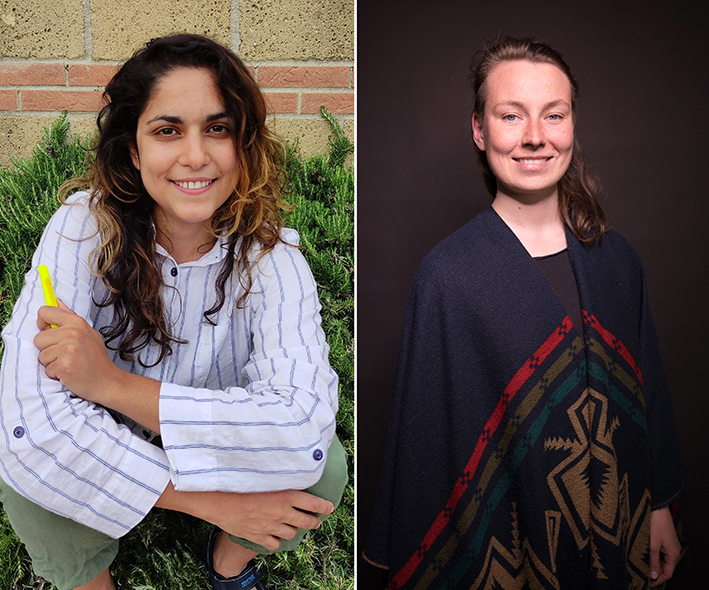
Pari & Lisa | Presidents of International Young Naturefriends (IYNF)
Since August 2020, IYNF has been led by two presidents: Pari resident in Italy and Lisa resident in Germany. In our interview they talk about their motivation for getting involved with Naturefriends, about their experiences with the dual leadership, and about their ideas for the future.
You took over the leadership of IYNF in the summer of 2020, in the middle of the Corona crisis. What was your motivation to take on responsibility for IYNF in this particularly difficult time? And what challenges have you had to overcome so far?
Lisa: During 2018 I have spent a European Voluntary Service in the IYNF Secretariat. Thereby, I learnt about history, values, network and workflow of the organisation and had a chance to shape my competencies within an international Youth NGO. The non-formal education approach during activities brought focus into my passions: care for nature and people. After the EVS I continued in IYNF as Vice-President for the sake of further stabilising and structuring the workflow in the organisation. Combined with my interests in personal development, a healthy lifestyle, living with the rhythms of nature and sharing intercultural knowledge together with the committed team of Naturefriends I developed the Erasmus+ Youth Worker Mobility “Health & Wellbeing through Nature-based Methods'' (HWNM). The training course will take place in May 2022.
My motivation to stay involved in the IYNF presidium as president wasn’t connected to the pandemic. I saw the need to go on as part of a strong and diverse team to continue establishing effective working structures and develop a motivated team spirit. The pandemic showed that IYNF is ready to widen its expertise in digital education, which besides all the COVID management that the Secretariat had to carry out had an added value to the organisation. I think that the biggest challenge to overcome – and we are slightly getting out of this rabbit hole – was to keep the IYNF presidium and volunteers motivated. The digital connection is an effective addition to youth work but not substituting the benefits of physical interaction. Another challenge, which was catalyzed through the pandemic was to stay focused and present in times of uncertainty and change, and with it an awareness raised that we as young people still have a lot of influence in co-creating the reality in which we want to see ourselves.
Pari: When I first moved to Europe, I had no background in activism. When in 2016 I first was invited to the Gian-Gio national meeting with Italians, I had no idea what political activism and civil responsibilities are. My motivation for being president of IYNF now is born exactly at this point. I would like to fight for getting a more neutral and inactive youth to find the right family with nature-friendly values to fight for our planet.
My experience with this first-time dual leadership system, so far, is very positive. At least from my side of the spectrum, it is a very functional structure, especially when it comes to task decisions and time management. We had so far some very interesting informal online meet-ups during the pandemic times and this helped a lot to stay in line with our connection as presidents.
Pandemic? Yes! It was indeed very difficult. Our presidium team has not yet passed a day together. We tried to keep our online meetings interactive to some extent and try our best to include any need and wish from every member to feel comfortable and motivated. Our secretariat also had a massive amount of lockdown and quarantine on their shoulders. All in all, I guess we were all coping with it well, and kept our energy high till the end of this season. Hopefully, with summer solstice ahead of us, we will get together and enjoy some non-screen time together.
What kept me motivated was the presence of other presidium members. It was important to see that everyone was trying their best to overcome this phase together. And well, it was the case!
How did you get in touch with Naturefriends? And what are your visions for the future of the Naturefriends movement?
Pari: In 2016, a friend in the university, told me about a Gian-Gio meeting. To be honest, after the meeting, I was immersed in nature, having met so many young people and especially having felt included in an Italian context (even if my Italian was not that good) for the first time was a blessing; and for the first time I experienced non-formal education. All these reasons of course, pushed me to be a more active part of the group.
Lisa: It is a longer story on how my path has led me to connect to the Naturefriends movement, but I’d rather tell it during a cup of tea together ;) The short story is that my former relationship has brought me to Prague and to make my living there I was searching for a meaningful working field that was connected to activities in nature and awareness on climate change.
As far as I know, IYNF is the first Naturefriends organisation with a dual leadership. How does that work in practice?
Lisa: The German Young Naturefriends (NFJD) also govern the organisation in a double leadership and the concept was actually inspired by a motion from NFJD at the IYNF General Assembly 2018. The idea behind the double leadership is to flatten the hierarchy in the leadership of the organisation. It helps to distribute representative tasks to more than one person. Another reason for the double leadership is to bring in more diversity into representive functions. To ensure diversity in the IYNF double leadership, its conditions for the constitution are that the persons are from different member organisations and that at least one of them is not identifying as male. In practice the double leadership keeps a closer connection to the Secretariat for strategic planning within the presidium.
Pari: I think it is an opportunity. I must say, having Lisa on the same power position level allows me to have a person next to me when it comes to brainstorming or to discuss matters in advance. I enjoy my professional role next to her as much as I enjoy being her friend.
From a logistical point of view, it has been very helpful so far that you don't have to decide short-term legal-related issues alone, because there is usually another person you can ask for help.
Thanks to Fridays for Future, more and more young people are raising their voices and demanding responsible action – both from political decision-makers and from their parents' and grandparents' generation. Yet far too little is happening to slow human-made climate change and transform our economic system towards sustainability. What is needed to bring about change? And how can NGOs like Naturefriends contribute?
Pari: I am happy that this question starts with mentioning the Fridays for Future movement. During my last years being a climate justice activist, I have gained more and more knowledge on why protesting is becoming a must. Being individually ecological and carbon emission-free helps but it doesn’t go far when it comes to the fast change we need. Well, what do I think Naturefriends can do? Reach out to youth! Via non-formal and informal education we can achieve a lot for climate justice and climate education. Our organization with its grassroots structure, is perfect for advocating in small towns and villages as well as in big cities. Reaching out to youth by giving the young people enough power for activating them is the first step.
Lisa: The change comes from our own mindsets. When we start cultivating habits that are supporting a healthy lifestyle, we start to live according to the rhythms of nature and might be able to learn about what it really needs to be a happy human being. It is connected to build a value based foundation of how reality should look like so that we are happy. Furthermore it is about self-empowerment, responsibility, and choice to make a difference. If we decide to first become role models of the way of life we also expect others to live, then we have to step into this role. And with that it will be likely that community is happening, that like minded people gather and build new majorities for change.
Change is not about you and me or they and us – change is about integrating what is and transforming it. This process has the power to attract different systems, be it the economic, health, social or digital system. Once we are opening up for self-responsibility and thus self-love, we will see that all the small choices within individual change are interconnected. We just need to believe in and serve life.
Naturefriends organisations can support this paradigm shift of conscious co-creation by contributing to its community with activities that are focusing on the deeper levels of individual’s engagement. The aim is to support young people reconnecting to their true selves so that they become aware of their purpose by developing methodological frameworks that reconnect us to ourselves and to the environment.
June 2021
Susi Raub-Vogler | International Secretary of Nature Friends California 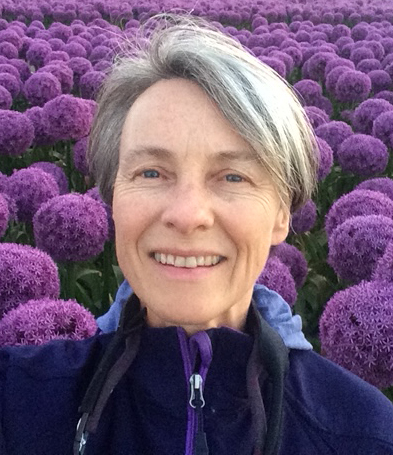
Susi Raub-Vogler has been International Secretary of Nature Friends California since 1999 and represents her organisation within the international Nature Friends network. In this interview she talks about her motivation, her work for Nature Friends and her visions for the future.
You have been playing an active role with the Nature Friends in California for many years – why did you get involved with Nature Friends and what made you decide to become involved in our movement?
Ultimately, I must thank my parents for my involvement in the California Naturefriends, who emigrated from Germany to San Francisco in 1960. Their need, to find reprieve from big-city culture shock, led them to t he “Nature Friends Tourist Club” of San Francisco that was established in 1912 by Austrians and Germans. My parents rejoiced in finding what felt like a connection to “the old country” in a beautiful setting that reminded them of the Black Forest.
I was born into the club and have been a lifelong member. My father was the Naturefriends California International Secretary for 28 years until I assumed his position in 1999. It was natural for me to continue in his footsteps, as I enjoyed the wonderful benefits of growing up in the Naturefriends organization and under his international experience. I strongly believe, in order to foster any and all healthy environments, we must encourage healthy human activities and community, and this is what the NF promotes. Through such community we can motivate people to help preserve what we value so greatly – our natural environment and friendship. The enrichment I have gained from the Naturefriends has been invaluable!
Naturefriends have very diverse focuses in different countries. Many groups organise leisure-time activities for their members and run Naturefriends Houses. For some organisations, policy work is also a focus – from lobbying for strong nature and environmental legislation to working for peace and human rights. What are the priorities of your organisation?
The priorities for our organization are exposure to nature and the preservation of it through access and awareness, to provide community for wellbeing, and to continue and share our cultural traditions of the founders per their mission statement. Over time our organization has become multifaceted in people and activities. Each one of our Naturefriends houses has acquired its own atmosphere and culture that adds to our club diversity and interest.
My roll mostly involves networking within the club and occasionally with outside interests. I have also organized and run activities. Additionally, my experience with the Naturefriends encouraged my work as an outdoor and environmental educator.
Due to the long travel distance to Europe, where we normally host our international conferences and encounters, it is hard for you and your colleagues to participate on a regular basis. Do you nevertheless perceive yourself being part of an international movement? And what does “Internationality” mean to you?
Well, Zoom meetings have proven to be a great benefit since the various Naturefriends countries can meet virtually and share their initiatives; with the added bonus of reduced environmental impact! I feel, in these increased climate awareness times, we more or less are part of an international movement. Internationally, we are connected by environment, by atmosphere, by oceans ... “Internationality” can be perceived as the drive of the international climate movement, which is at the forefront of current events. We are all affected and connected – all nations are more or less impacted by one another’s actions.
On a NF organization level, we are a non-political faction of the original Naturefriends, but as individual members, we take an interest in international hopes of reducing our looming global climate and human crises, not to mention all the other impacted species on earth. I am confident that the NF is a vehicle of solidarity, aiding “societal discourse” for our planetary crisis movement that can’t progress fast enough. We, as members of the Naturefriends are the ideal group to encourage rise to the climate movement. Individually, in any moment, we can make wiser decisions, as well as a collective. The pandemic has provided valuable introspection into society and its fundamental need to care for things, especially humans that will lead to better care for our habitat.
At the beginning of the pandemic, solidarity – one of the core values of Naturefriends –was a central topic in the societal discourse in Europe, but as the crisis has continued, it has moved more and more into the background. What is the situation like in your country? And which role can NGOs like Naturefriends play in making this value a reality?
Solidarity in the US was compromised under our previous administration due to the chaos it created. I think there is an inherent disadvantage to acquire solidarity in larger populations. I also think the loss of solidarity is symptomatic of distrust regarding a new challenge in society such as the pandemic. NGOs like the Naturefriends could be instrumental in generating “societal discourse”. Membership involvement leads to collaboration and to a potential “critical mass” to make a difference. I’m hoping the pandemic gave us enough pause to recognize the unsustainable and unhealthy pace of life we are living, and that we need to re-evaluate our societal goals and realize the existential threat that we have unnecessarily brought upon ourselves and to the rest of our planet. Although, our earthly problems are huge and complicated, we can find hope and purpose in way of care and love.
(April 2021)
Clara Wengert | Vice-President of NFI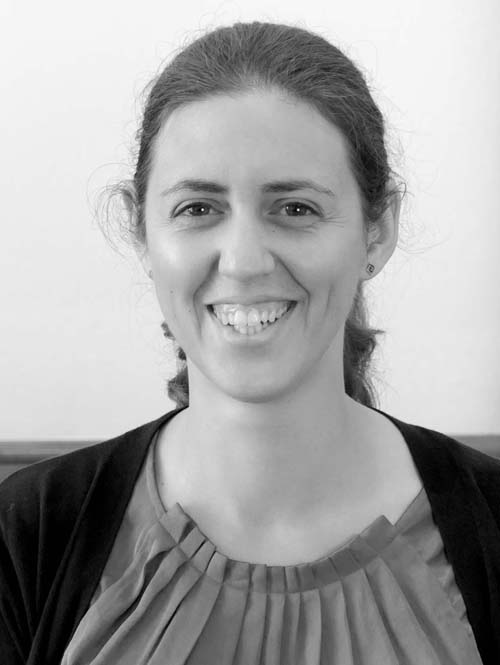
Clara Wengert is a member of the Board of Naturefriends Germany and since the XXIV NFI Congress in 2020 also Vice-President of NFI. In this interview she talks about her motivation for getting involved in Naturefriends work and her ideas for the future.
You have been engaged with Naturefriends on different levels for many years. How did you get connected to Naturefriends? And what motivated you to become actively involved yourself?
My first contact with Naturefriends was when I was four years old and took part in regular meetings of a children's group in my neighbourhood. Through the group, I was able to take part in various holiday camps in Germany and abroad as a child and later as a teenager and I gathered many memorable experiences. Through my participation in the national conferences of German Young Naturefriends, I was unexpectedly given the opportunity to influence the framework conditions of such camps for other children and young people by taking over the leadership of the Advisory Board for travel and sports. Two years later, I took over the federal leadership of the German Young Naturefriends in a dual position, before I was elected to the Federal Board of German Naturefriends in 2017.
What drives me in my voluntary work are the ideas and values of Naturefriends, the comprehensive understanding of sustainability in its dimensions and the need to shape society in the framework of the socio-ecological transformation.
Until 2016, you were in a leading position of German Young Naturefriends. As the executive director of the “Bundesjugendring” (German Federal Youth Association), you are responsible for youth issues in your professional job, too. What does successful youth work entail for you and where do you currently see the greatest opportunities and challenges – especially in view of the Corona crisis?
For me, successful youth work means an active youth association that implements the topics of the Naturefriends movement in an independent and self-organised way. The crucial factor is active youth work on the grassroots level that gives young people the opportunity to shape their environment, represent their interests and have fun together through regular group work, holiday camps or campaign work.
The Corona crisis is taking away the very important diversity of formats from active youth work. Contacts can be maintained in the short term via digital events, but normal youth work is not possible. The current challenge is therefore to keep groups alive and to develop offers for young people despite all the difficulties. At the same time, the pandemic with its restrictions forces us to set new priorities. It offers the opportunity to rethink our way of life and pushes politics and society to implement urgently needed changes in the direction of a more environmentally friendly way of life. Social problems such as poverty, precarious employment or unequal opportunities are also being exacerbated by the crisis and are thus increasingly coming into political focus. Perhaps we will succeed in changing course towards a more solidary society.
Naturefriends Germany are very active on an international level, e.g. within the network Naturefriends Global. How important is internationality for you in connection with the Naturefriends movement?
Internationality is a basic component of the Naturefriends movement. Since the founding of Naturefriends, international activities have taken place at all levels of the movement. Many local groups have direct contacts with local groups in other European countries, but also in African countries or in South America. Especially the activities with our partners in Senegal, Togo and The Gambia are currently an important pillar of the work of Naturefriends Germany. The desired cooperation at eye level enables a very active international exchange on both sides, but also offers a visibility of Naturefriends within Germany in this thematic field.
Solidarity is one of the core themes of Naturefriends. We try to contribute to international solidarity with several concrete initiatives, such as the Landscape of the Year in Senegal and The Gambia or the various Climate Fund projects, and we also campaign for solidarity at the political level. At the beginning of the pandemic, solidarity was also a central topic in the societal discourse, but as the crisis has continued, it has moved more and more into the background. What role do NGOs like Naturefriends play in the current situation in your point of view? And how can we effectively contribute to more solidarity right now?
It was indeed remarkable that the media and society focused on global developments and a lot of international solidarity was noticeable at the beginning of the pandemic. It was always clear that such a pandemic can only be overcome together. Unfortunately, this focus was soon completely lost. Closed borders and suspended train and flight connections even to our neighbouring countries would have been unimaginable just a short time before.
I think that NGOs currently have an important function as societal actors. They draw attention to the situation and demand political solutions. Naturefriends therefore continue to make offers to their members – even if increasingly in the digital space. They make it clear that incidence figures must not be the only issue and that solidarity must continue to be in our focus in the national and international context. When states retreat more and more to a national way of thinking, we as Naturefriends must keep putting our finger in the wound. Even if personal encounters are not possible at the moment, solidarity within one's own Naturefriends group is possible on a personal level, e.g. through telephone campaigns or support in everyday life.
In the international context, our top priority now is to keep existing structures and programmes alive, to remind policy makers and stakeholders that national ways of thinking will not lead to the goal, to ensure that we can get back on track after the pandemic, and to avoid that many things will be cut or simply will not have survived the pandemic.
(March 2021)
Wilfried Meulenbergs | Vice-President of the NFI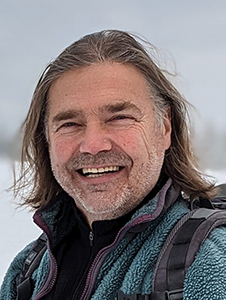
Wilfried Meulenbergs was elected Vice-President of NFI by the XXIV NFI Congress on 28. November 2020. He has been active for Naturefriends for many years – both for the Flemish association ATB "De Natuurvrienden" and on an international level. In this interview, the passionate mountaineer talks about his commitment and his ideas and visions for Naturefriends' work.
How did you get involved with Naturefriends and what made you decide to become active for our movement?
It was on a perilous hike in the Lechtaler Alpen (Austria) that I met my first Naturefriend, who advised us to follow a mountaineering training, in order to make the next hike a bit less adventurous. So, I ended up joining the Schulungskurs and Meisterklasse Eisgehen, at the Hochgebirgschule Glockner-Kaprun of Fritz Moravac. This was the start of an ongoing meeting of great Naturefriends and exploring of wonderful mountains all over the world.
After finishing my mountain-guide education in Switzerland, I joined the Belgian Naturefriends and became their trainer and eventually their technical leader. As mountaineering already had taught me the joy and advantage of international friendships, I was glad when ATB-Natuurvrienden gave me the opportunity to have formal engagement in NFI, first as an expert for mountaineering and later as board member.
Naturefriends have very diverse focuses at national and regional level. Many groups organise activities for their members and run Naturefriends Houses. A central theme is also the political work for the concerns of Naturefriends – from nature and environmental protection to working for peace and human rights. What are your personal priorities?
I joined Naturefriends through my two main passions: love for nature (especially mountains) and joy in meeting people in different cultures. Within Naturefriends I discovered an extra dimension: the social one. Our “Berg frei!” really has struck me, and I now realise that these simple words and the shaking hands in our emblem, have a deep and very important meaning. Moreover, i learned that my passion for mountaineering and travelling, cannot be lived without respect for nature and people, and that sustainability is the keyword for our future. So, the trainings and expeditions that I help organise within our organisation, are not at all just about “mountaineering”, but are about nature, sustainability, respect, solidarity, …
And there lay my priorities in working with people in the framework of our activities: let them enjoy the good simple life, close to nature, helping each other on the track, friendship and solidarity being so much more important than reaching a summit or any prestigious goal! In this, we Naturefriends are a unique “brand” within the outdoor business, our mission is not to gain more money, get more members, but share our strong values with our participants and members.
Internationality and solidarity are central values of the Naturefriends movement, which also distinguish us from many other "leisure organisations". What does it mean for your association ATB "De Natuurvrienden" to be part of an international movement? And how are the traditional values of Naturefriends perceived by your members?
I keep on hearing (and reading in evaluation forms) from participants, that what they experience in our activities and trainings is really different from what they experienced in other leisure organisations. Mountaineering tends to have a lot of machismo, competition, and would-be-heroism in it. None of all these are in our activities. Our trainers are “guides at the side”, instead of rope-pulling machos. Our groups stick together, help each other. We cook healthy (and together) on our camps, we camp environmentally clean, we do not exploit nature but respect it while being in it, … Again and again, people become enthusiastic guests in Naturefriends Houses, even after only one night in one of our beautiful houses of our international network. And once they hear, we have (Nature)friends in Africa and even at the other side of the ocean, they just marvel and feel happy to join this movement that works towards a better world to live in.
COVID-19 has severely restricted the work of Naturefriends in recent months. Many Naturefriends Houses had to be closed, joint trips and other activities cancelled. Unfortunately, an end of the pandemic is not yet in sight. What particular challenges and opportunities do you see for Naturefriends in the current situation?
Even though me, my family and friends also suffer from the loss of possibilities, due to the corona-restrictions, I see it also as (one more) wake-up call: we are vulnerable, the capitalist paradigm of growth is NOT at all sustainable. Even in this crisis, we see again the merciless “Matthew Effect”*: the most vulnerable suffer the most, hand-workers lose their jobs, the most educated can work from home, the West buys vaccines at any price but poorer countries stay behind, in the refugee camps on the islands people live in ever worse situations, …
So again, we Naturefriends have to stand in the line for more solidarity and sustainability. It will need some out-of-the-box thinking, not to restart our activities in a “business-as-usual” way. It needs thinking and planning: How can we open our activities more for the vulnerable of today (in Belgian migrants and refugees, and especially the so-called “sans-papiers” are the number 1 vulnerable)? 100 years ago, our founders worked to get the deprived workers “out of the dirty factories and towns” to let them enjoy nature: today other groups are deprived. Why not for example open our houses for them following and remembering our “Berg frei!”?!
(February 2021)
* Matthew, 25,29: “Those who have, will get more. Those who have none, will be taken…”
Ursula Vetter | Vice-President of the NFI
Ursula Vetter has been part of the NFI board team as Vice-President since the XXIV NFI Congress 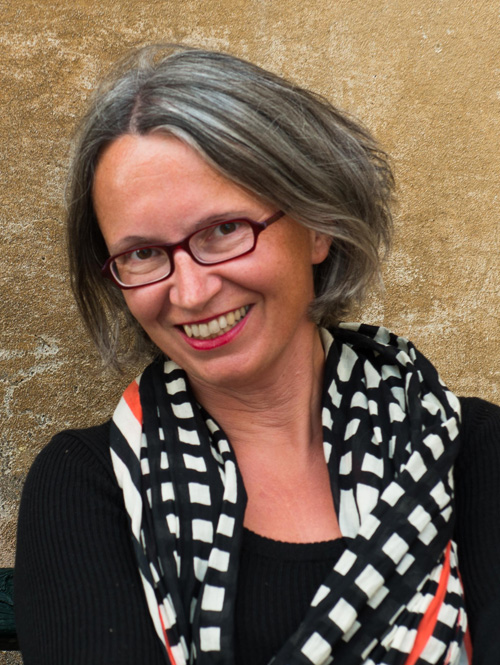
on 28 November 2020. The German-born Ursula has been active for Naturefriends Italy for many years and talks about her plans and ideas for the international Naturefriends activities.
Ursula, you have been involved with Naturefriends Italy for many years. How did you come to Naturefriends? And how did it come about that you now also want to work for Naturefriends on an international level?
I got to know the Naturefriends movement right after my arrival in Italy in 1998. At that time I came from Paris, where I had been teaching at a Waldorf school for more than 10 years, and I felt more attracted to culture than to nature. As partner of Luciano Busdraghi, for whom the Naturefriends House Gran Pino and the Naturefriends movement were the centre of his life, Naturefriends also accompanied me during my integration in Italy. After the birth of our daughter in 2005, I first began to know and appreciate the importance of a stable community, of living outdoors in direct contact with nature. Since 2017, I have been a member of the board of the Italian Naturefriends GIAN. One of our main goals is to bring the movement out of its "house-centricity" to a national level that can grow into a community beyond geographical and sociological differences. From the beginning, I was inspired by how the Italian local groups are involved in partnerships with people from America, Africa and the Balkans - as well as the fact that the Italian movement was created because of the initiative of the French Naturefriends.
Friendship, partnership, international encounters are at the heart of the international Naturefriends movement. This is also where I feel at home as a German who considers France a home and has now lived in Italy for over 20 years. Another step towards NFI for me was the meeting with the International Young Naturefriends in the Naturefriends House Gran Pino in Cecina in 2018. We were all impressed by the dynamic, committed, warm, international atmosphere that these young, enthusiastic people brought with them.
Naturefriends have a very diverse focus at national and regional level. Many groups develop attractive leisure activities for their members and/or run Naturefriends Houses, others focus on political work, although here too the topics vary - from nature and environmental protection to working for peace and human rights. What are your personal priorities?
In recent years I have become increasingly aware of the importance and relevance of the Naturefriends logo of two different coloured hands meeting in a firm handshake. The others are different, but in the encounter lies the solution, in respecting, acknowledging and supporting each other. Respect for the environment, but also a respectful encounter with fellow human beings, these are the core values of NFI to which I feel connected and committed. This is no longer just about the mountains and Europe, but about the whole world - the sea is also free!
My personal priorities certainly lie in respectful encounters. This can of course take place on trips, in seminars and suchlike, but it is put to the test in Naturefriends Houses in particular, where people from different backgrounds and with different interests meet. This respect on a small scale, in the microcosm of Naturefriends Houses, is mirrored on a large scale in the macrocosm of the globe. We live in a global world. The fact that this is not shaped by multinational corporations but by exchange, cooperation and mutual support is also due to us and especially to an organisation that works on a local and national as well as international level.
COVID-19 has severely limited Naturefriends' work in the past year. Activities in nature were often only allowed alone or with families, Naturefriends Houses had to be closed, joint trips cancelled, meetings were often only possible on a virtual level. The future is uncertain, but it is clear that the pandemic will be with us for a long time. What role do you see for NGOs like Naturefriends in the current situation?
Especially in the current situation, it is important to create moments of human encounter as often as possible and to use all niches to make them possible. Outdoor activities are allowed in many countries, we have learned to deal with mask, distance, and hygiene measures. Wherever we see an opportunity for people-to-people encounters, we should seize it, locally, nationally, and internationally. We have learned to communicate with each other in a virtual way and in many cases this has even led to an intensification of contact. However, we must not be deceived, this way of communicating leads people into increasing isolation.
With more than 350,000 members, the international Naturefriends network is one of the largest NGOs worldwide. What unites us are our common values such as solidarity and global justice, which we bring to life with international activities such as the Landscape of the Year or the Naturefriends Climate Fund. Nevertheless, it is often difficult for us to reach individual members and motivate them to participate in international activities. Do you have any ideas on how to better succeed in involving the members?
One point is definitely direct information: every member should also be informed about NFI activities at the local level. Especially there, the current sanitation crisis has brought us a bit further, social media is followed more closely and direct contact with individual members is easier. However, as we are a movement based on local groups and the aim is to sensitise them, we should try to invite local groups to look beyond their house and their locality and feel part of a big movement. A first step could be partnerships between local groups of different countries; mutual visits, joint actions lead to personal contacts, create an awareness of belonging to the same "family" and therefore also being interested in the concerns of this family.
(January 2021)
Moussa Traoré | President of Naturefriends Mali
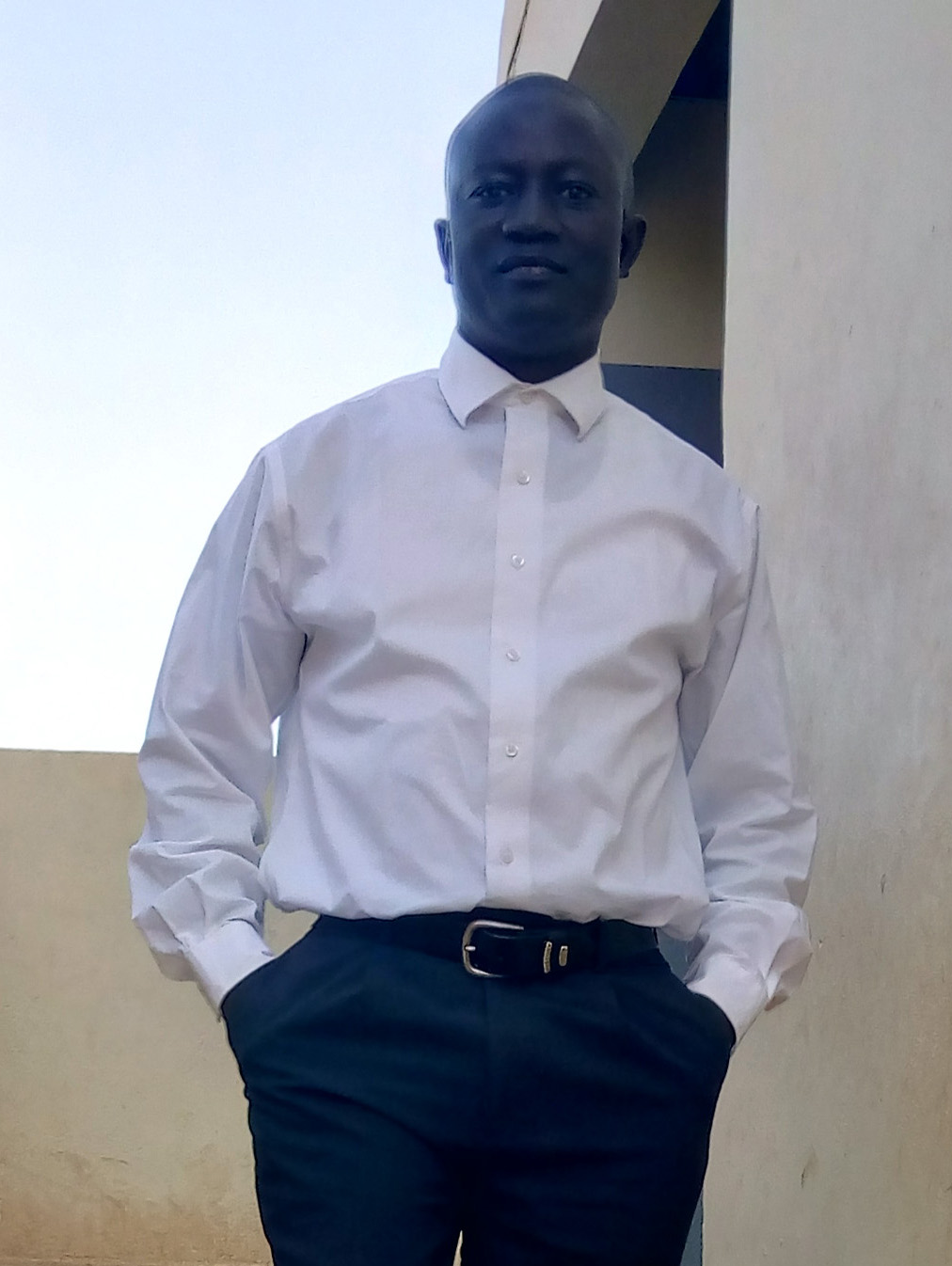
In the village of Finkolo in the south of Mali the construction of a storage hall for agricultural products was completed a few weeks ago. The new storage hall, which was financed by donations from the Naturefriends ClimateFund, enables hygienic storage of agricultural products. Moussa Traoré, President of Naturefriends Mali, tells in an interview why the storehouse was needed so urgently, how the population in Finkolo reacted to the project and how much can be achieved even with comparatively small projects.
The Naturefriends Mali have been active in Finkolo for many years and support the regional agriculture, which is specialized in the cultivation of vegetables. Why was a storage hall needed?
Moussa Traoré: Due to climate change, periods of drought are increasing. There is no longer a regular rainy season, sometimes there is a complete crop failure. In the new storage hall, the agricultural products can be stored for a longer period of time - so people can survive periods of drought better and market their agricultural products better and with fewer losses.
The project in Finkolo was implemented very quickly thanks to numerous donations from European Naturefriends. What does the project mean for the people in Finkolo? What were the reactions from the population?
I take this interview as an opportunity to thank the donors, the European Naturefriends. At the beginning it was not foreseeable whether, given the security situation in Mali, the construction of this storage hall would be financed. Thank you for your trust!
And now to your question: For the people of Finkolo the project means help, support and a contribution on the way to sustainable development. The realization of this project has aroused joy, satisfaction and great commitment among the population. People are sure that agricultural products are now better protected against the negative effects of global warming. They will be even more motivated to work in vegetable cultivation, their main source of income. I can promise you that the effects of these various projects will have a positive impact on the agricultural productivity of these committed women!
I would like to thank all naturefriends for their donations in favour of a population that needs them so urgently. These donations are a strong help for the recipients, motivate them and give them much hope.
In Europe most people do not know much about life in Mali. What is it like working for an organisation like the Naturefriends in your country? What are your priorities?
Our organisation 2ADIB-MALI/AMIS DE LA NATURE is an association whose work is regulated by its statutes and rules of procedure. The Board of Directors, which is appointed by the General Assembly as the supreme body of the association, determines the priorities of the work at several meetings per year.
We work in the humanitarian field, in the protection of nature and the environment, wherever safety is guaranteed in Mali. Our work priorities concern:
- nature and environmental protection
- commitment to sustainable development
- Poverty reduction
- commitment to primary school attendance for all
- organisation of work assignments for volunteers from all over the world to promote ecotourism
You have been active as President of Naturefriends Mali for a very long time. What motivates you especially for your activity?
Three concerns motivate me for my activity as main actor of Naturefriends Mali:
1. to fight against poverty
2. to combat climate change as a threat to our society
3. to give joy to those who need it by supporting them.
In general, where necessary, I want to put myself at the service of society! My grandfather used to say at night by the fire: "My boy: always take good care of yourself, make your contribution wherever necessary, enjoy this beautiful life, because it is short, and try not to die a meaningless death."
(May 2020)
More information on the project
Kostas Foteinakis | President Naturefriends Greece
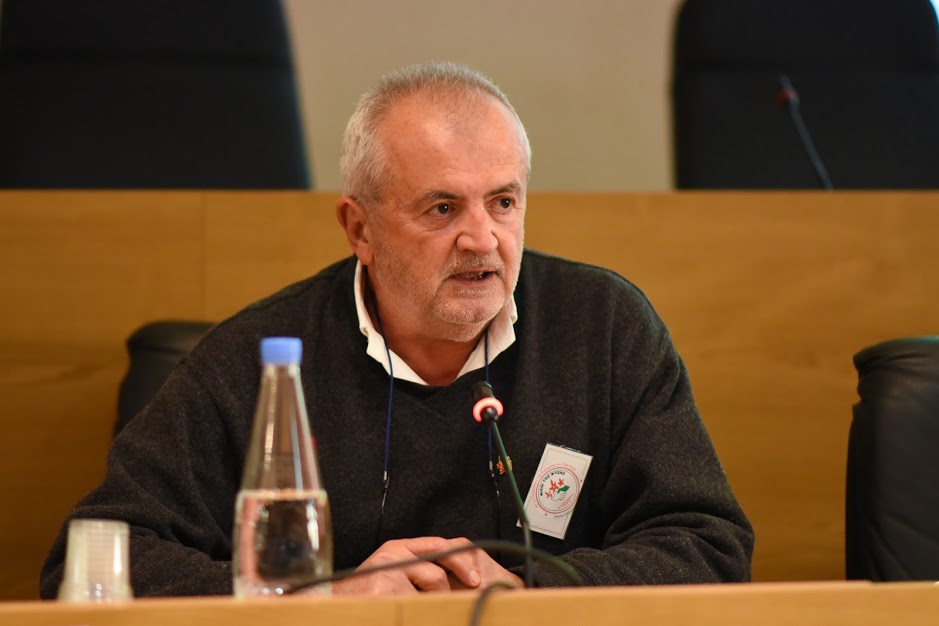
Kostas Foteinakis was one of the founding members of Naturefriends Greece and has been the President since 2012. In his interview, he highlights projects Naturefriends Greece are working on and how they deal with the difficult economical circumstances in the country.
How long have you been part of Naturefriends, what is your role and why did you become involved?
I am one of the founding members of Naturefriends Greece (NFGR), that is, since 2007. A year later, in 2008, the NFGR became a full member of the NFI. At that time, I was chairing a local ecological group and we wanted to get in touch and cooperate with a European or an international environmental organisation, because we believed that major environmental and social issues, such as climate change, human rights, the right to work and education, democratic, sustainable and equitable development, the preservation of the world's cultural heritage and biodiversity must be addressed not only at the local or national level, but at the EU and international level as well.
In 2007, we conducted research into environmental organisations that have both social and political specificities and we found that NFI meets our requirements. In 2007, the process was initiated by other organisations in our country to set up the NFGR. So, we contacted them, and I signed as a founding member - this was the legal formation of the organisation. From 2008-2012 I was a Board member and since 2012 I chair the organisation.
The reasons that triggered my participation in the NFI in 2007 remain the same until today, while other reasons have already been added, for example, migration, the rise of the extreme right, etc.
Naturefriends Greece is one of the smaller organisations, yet one of the most active ones especially on Social Media. How important is the international network for your work and how do we support one another online as well?
Working with NFI and making use of the positions, suggestions, etc. of the organisation are particularly useful to us. Many of the NFI announcements, resolutions and press releases are translated into our language. Two recent examples are; a) Human rights matter - also in tourism!, and b) the resolution of the last NFI conference " Climate change is the real threat, not migration!”.
We have also translated the recent GREEN 10 EUROPEAN ELECTIONS MANIFESTO https://bit.ly/2x4i02G and the Berlin Declaration on “Transforming Tourism” (Summary) https://bit.ly/2N0bMMl. We believe that if there was no cooperation between NFI and NFGR, people in Greece would not have gotten to know the MANIFESTO, the Declaration and many other related useful documents.
Significant "tools" for our action and for the formation of our positions, in my opinion, are the following NFI documents; (a) The Manifesto for a New Europe, 2007, which is still current, apart from the position that it had at the time when it was written in favour of the European Constitution, and b) The Climate Chapter, 2008. Both of these documents have been translated into our language.
At the same time, the NFGR collaborates with other organisations and European networks. One of these is the Seattle to Brussels Network / S2B on matters of the European Union's trade agreements with other countries or groups of countries, such as the trade agreement between the EU and Canada, the CETA.
Greece has been through tough years, with the economy struggling and massive financial cuts. What are the consequences for an organisation like Naturefriends? How did you overcome those obstacles?
It is a fact that the economic cuts and harsh measures have partly affected our organisation. What has played and still plays a role in every group and organisation, and not only in the NFGR, is the uncertainty about their future and the other priorities that society sets to survive, such as unemployment (from 27% happily declined to 19%), debts to banks threatening to get even the only-home, the welfare state, the refugee crisis, pensions, and so on.
However, even in times of intense political and social crisis, the interest of Greek citizens in the environment, as recorded in EUROSTAT's surveys, is one of the highest in the EU, although there is a difference between expressing interest and acting.
The NFGR under these political and social circumstances, first of all, reduced members' contributions by 80% to special categories of unemployed, underemployed, etc. At the same time, we have developed solidarity actions, not only towards our members, but also towards those in need. The unfavourable climate influenced, but did not suspend, the functions of the NFGR - however, we, the leadership group, developed a feeling of responsibility and contribution, something that is reflected to our action as well.
Naturefriends Greece focuses especially on political work. Which areas are you most active in and why are they important to you as a Naturefriend?
The NFGR has voted for the 2018-2022 Operational Program under the title "The future belongs to those who prepare it today". This is a well-known phrase by the African-American activist for political rights, Malcolm X. (the summary is available in English http://joom.ag/LF4Y).
We are more active on the following topics:
- We participate in public consultation on draft laws relating to the environment and to other issues such as tourism, sustainable development etc. We make use of our volunteers to prepare the proposals. The most recent intervention is for the Energy Planning and Climate Change. This action is not particularly visible to society and apparently unknown to NF members in Europe and around the world. These interventions have not only legal and technical characteristics, but a social background as well.
- NGFR is the main coordinating power to the STOP TTIP CETA TiSA movement and the social media administrator for this movement (Blogs, Facebook etc).
- We participate as members of the Civil Society in Parliament's special committees on environment and trade.
- We support the major struggles against gold mining in Halkidiki and hydrocarbons across Greece.
- During the World Days we show our positions through activities that we organise - we do not consider them a panacea, instead, we use this occasion to promote our positions. Usually, we organise outdoor visits to parks and natural spaces, for example we organise walks during the World Wetlands Day, World Mountains Day, etc.
- We take advantage of the 17 SDGs, despite the fact that many people in our country consider them to be in a “wishlist”. We promote them and we claim them.
- Our great weakness is a) the small number of members and, by extension, the lack of financial resources, b) the lack of youth, etc
- Our great strengths are our members, volunteers and partners.
On the occasion of the interview, I would like to inform you that the NFGR is implementing, alongside the other actions, two programs; a) the Less Waste - Better Life (the reduction and ecological management of urban waste may be the biggest and most complex problem in our country), and b) the “Go to West - We Discover West Athens”, which includes guided tours in a degraded area with significant historical trails, a workshop on sustainable development and a city guide. For these topics we will come back with a newsletter specifically addressed to NFI members around the world.
Finally, I would like to inform the NFI historic members, who have a picture of the NFGR, that we have managed to recover the status that we lost between 2010 - 2012 and that, methodically and stressfully, we will keep on struggling to protect and promote nature, biodiversity, and the cultural heritage, by participating in networks of citizens and institutions in Greece, Europe and around the world.
(January 2019)
Simon Neal | National Secretary Friends of Nature UK 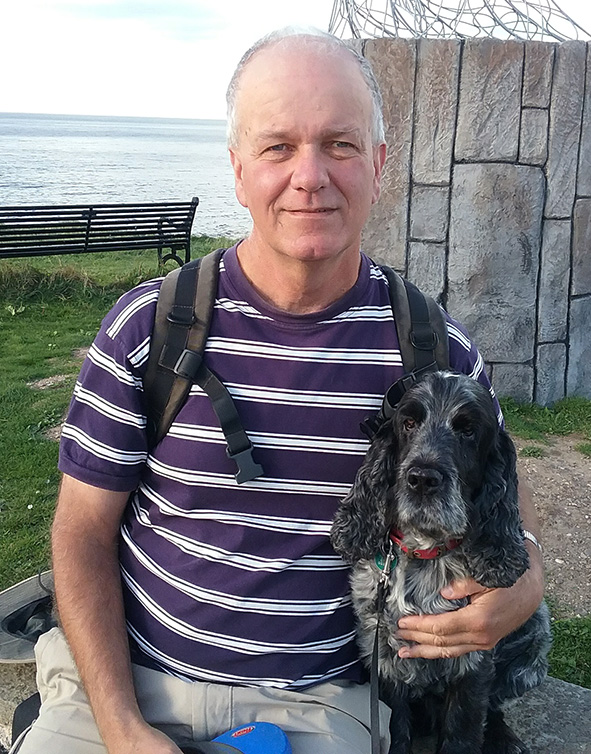
Hello everyone and Greetings from the Scottish Borders! My background is in geographical sciences and have spent the last 20yrs working in the tourism and sustainable living field. Interests include hiking, nature, travel and ways in which we can tread lightly on the planet. I've been involved in Friends of Nature for some 15 years now, initially as Environmental Rep and for the last 9 years as National Secretary.
Simon, you have been playing a leading role in the development of Friends of Nature UK – what has been your main motivation?
A strongly held belief that Friends of Nature is a unique 'bottom up' grassroots organisation in terms of reliance on volunteers, the house network and commitment to the environment. Without being dramatic, I do feel that our movement offers a kind of strategy or framework for everyday life. We can all try and make the world a better place through our daily actions and choices, whether in isolation or coming together as a group.
Friends of Nature UK is a small, but very active organization, with 4 core groups, 8 houses, members spread across the whole country – and it´s run on a totally voluntary basis.
How do you manage to strengthen cohesion within the organization? It is a challenge! We are a small group by European standards but are fortunate in having an enthusiastic core of members. At our house in Kirk Yetholm we have a committed band of volunteers who help run the place on a daily basis, in Norwich there is an historical cluster of some 80 members who meet regularly for walks and social events. We increasingly try and maintain a sense of group cohesion, retain and encourage new members via the internet and social media.
What are your aims and main activities? And what does it mean to you to be a member of the international Naturefriends movement?
Our overriding aims are to enable and inspire people to explore the outdoors, to appreciate nature and to engender a sense of 'stewardship' and responsibility of their lives and for the planet. We achieve this, albeit in our own small way, by providing communal places to stay (our houses) and meet and share ideas with others from all backgrounds of life. Sustainability is the latest buzz word... this is what we have been doing for years! Being a part of NFI adds the wonderful dimension of meeting and sharing views with others from different cultural sets. In the end we have so much in common.
What will be the biggest challenges in the next 10 years – for Friends of Nature UK and for the international Naturefriends movement?
Spreading the word about Friends of Nature/Naturefriends and what we stand for is perhaps our biggest challenge – not just to retain members but to actively reach out and tell others of what we do. I strongly believe that 'word of mouth' is the best form of advertising. If we all enthuse about the ethos of FoN, show what we have to offer and encourage others to join, we will flourish. NFI needs to provide the international platform to showcase the individual organisations, get our name out there to a new audience and provide the essential glue for binding us together.
On behalf of myself and Friends of Nature in the UK, we wish everyone Naturefriendly Season's Greetings and a healthy, happy and peaceful 2019.
(December 2018)
Hynek Pečinka | President of Přátelé přírody z. s. (Naturefriends Czechia) 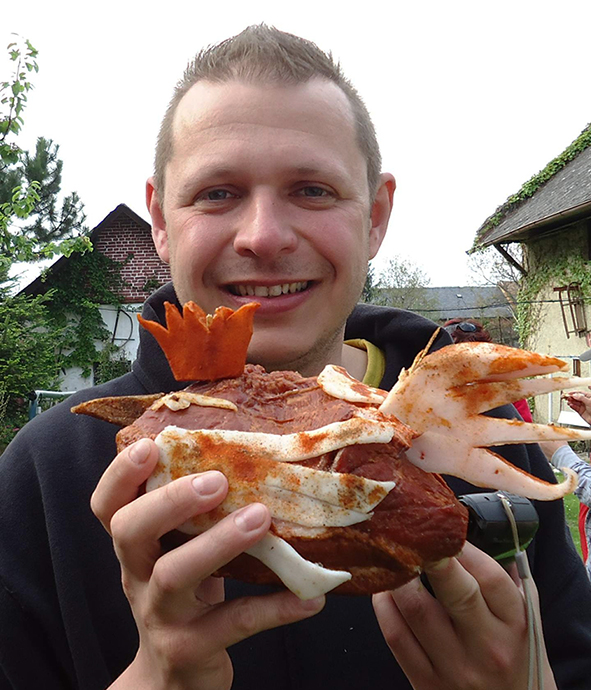
Hynek Pečinka, the President of Přátelé přírody z. s. (Naturefriends Czechia), talks about his participation in the "Naturefriends Sports for All" project and the many new ideas to be shared with members. He is also looking forward to the next international meetings with Naturefriends groups.
You have been active for Naturefriends Czechia for many years now. How did you find the Naturefriends movement and what was moved you to invest your time all those years? Can you tell us about your experiences with Přátelé přírody z. s. which impressed you the most?
I started my career in “green movements” already in 1990 as a boy scout and later on I joined young environmentalists. In 1995, I became a member of the Duha organization, which was by then a part of Naturefriends Czechia as its youth branch. There I volunteered at the beginning as a youth worker in my local group in Olomouc and ended as vice president of the whole national organization. By 2010, I felt I need a break or change from youth work and that is why I and several others founded an “adult Naturefriends” local group in Olomouc and started organizing outdoor and cultural activities for adults. Nowadays, the local group has 70 members and runs more than 60 events a year. Since 2010, I have been also active in the national board of the Czech Naturefriends and I have been trying to motivate our members to move things forward, cooperate and be more visible on the local, as well as on the national level.
I can remember several experiences, which show that my efforts bear fruit. In 2012, we started to organize a 4-day-long national gathering once a year and people met for the seventh times this October; happy to see their friends from other local groups and also some new faces. The nationwide Friends of Nature Day has been held also already for several years and makes us visible amongst the communities our local groups work in. But what impressed me most, was the bus trip to the kick-off event of the Landscape of The Year Upper Rhine which was connected with exploring the neighbouring parts of the three countries bound in the campaign: Germany, Switzerland and France. More than 50 Czech Naturefriends took part in it and spend their time together for more than a week, many of the friendships last up to now – and you know, personal attitudes are what makes every structure and also our movement stronger.
If you ask what moves me to invest my time in that kind of things – it’s simply my style of living, I like people and doing meaningful things for them and with them. And I also think everyone should leave something good for the others behind and give back what he/she once received.
Přátelé přírody z. s. is one of the smaller member organisations of NFI. What does it mean for you to be part of the international Naturefriends movement? How do you take part in the network of NFI – and how do you profit from it?
You see, being a part of any international structure means a lot of opportunities for everyone who likes to see the world around you from a different “flight level”. The fact that the Czech Naturefriends are a part of a larger “family” of similar-minded people with similar interests opens for us a door to mutual cooperation: travelling, meeting interesting people, taking part in decisions, which can influence us, and sharing knowledge. Simply said, it means doing things internationally together and learn from each other with respect to his/her specialities.
The motto of our association is “We are keen on nature, history and culture. We like influencing the world around us.” And being a part of the Naturefriends movement helps us to get new impulses and also to share our expertise in these fields of action.
This year, Naturefriends Czechia are participating in the Erasmus+ project „Naturefriends Sports for all“. The aim is to give member organisations tools so that they can develop outdoor sport activities for people with disabilities. In the spring and in the fall, you attended workshops about accessible hiking and climbing. What are you take back to Přátelé přírody z. s.? Which activities would you like to develop?
Most of our local groups are active in outdoor sports such as hiking or skiing, some of them already experienced having a person with disabilities as a participant of an outdoor event but it is a new topic for some of them. That is why we welcomed the idea of the project Sports For All, sent our participants abroad and promoted it amongst our local groups. We would like to share the gained knowledge in a weekend-long workshop in the upcoming year so that our organizers could be more open towards joined activities for people with and without disabilities and are more confident and prepared for the “what ifs” which may appear when organizing such events. As far as I know, there are not so many Naturefriends in Czechia who climb. Therefore, we will better to focus our workshop only on hiking.
In October, the Annual Conference of Naturefriends International took place in Vienna, where many ideas for future activities were discussed, as for example the Global Naturefriends Day in 2020 or the continuation of the Erasmus+ project. Which activities would be especially interesting for you?
I, personally, welcome all actions which make Naturefriends International not a platform of chiefs of the national associations but bring opportunities directly for the members. For example, the information that you can take part in a workshop with Naturefriends from other countries - and not being a delegate in a conference - is more perceptible for individual members if you are asked what Naturefriends International is good for. I would therefore prefer any projects focused on transboundary cooperation, change of experience or common campaigns with a tangible effect such as Global Naturefriends Day. This is more valuable than tons of position papers and declarations.
(November 2018)
Sékou Kader NANAMOU | President of Naturefriends Guinea (ALUSFADE-GUINEE) 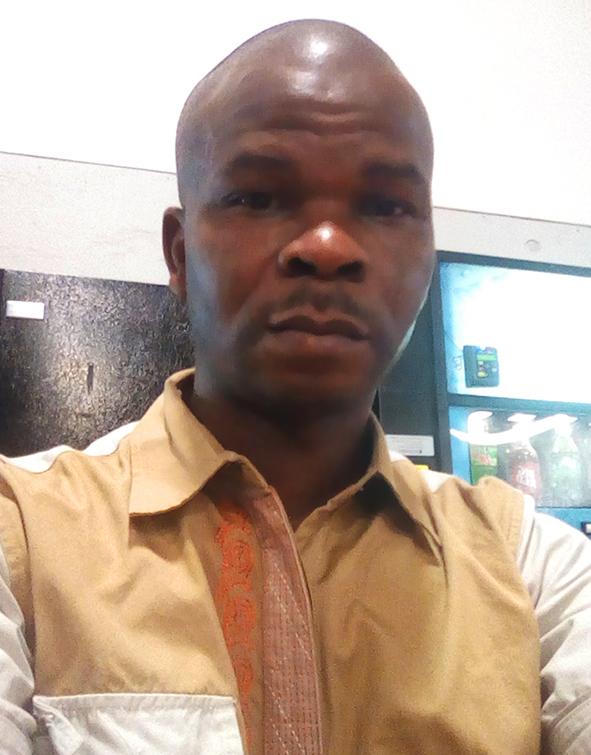
Sékou Kader NANAMOU is the President of Naturefriends Guinea, which started to implement the current Naturefriends Climate Fund project in October. He speaks about the project and about his work for Naturefriends Guinea.
Naturefriends Guinea just started to implement the current Naturefriends Climate Fund project in the biosphere reserve in the Nimba mountains. What is the goal of the project?
The project is supposed to increase awareness for climate change among the people of Guinea and especially the local community in the Nimba mountains. We inform the people and show them how the improved stoves work – that way they can see how they can work against deforestation and global warming.
In addition, the project will encourage the local administration and the finally the government to take measures against the consequences of climate change and to improve the existing ones. It is also possible to start partnerships to create synergies from actions and measures in other parts of the country.
How are the new stoves different from the old ones?
The differences are enormous! In comparison to the traditional stoves, less wood is needed, they heat up quicker and retain heat better, save time because the cooking time is reduced, they are more economic, support environmental protection (less deforestation), protect people’s health as they emit less smoke.
You have been the President of Naturefriends Guinea since 2006. Why did you run for this position?
It’s simple: Being Guinean I know that the socio-economic development is not only the government’s responsibility. Thus, we founded ALUSFADE-GUINEE, a non-governmental organisation. Since I have a university degree and management skills, I ran for the position of President of the NGO to support the sustainable development of Guinea – and maybe even the whole African continent.
ONG ALUSFADE-GUINEE is very active for climate protection. What do you focus on in addition? What does it mean for you to be part of the international Naturefriends movement?
Besides environmental protection, which includes many projects for climate justice, we are active in many additional areas: For example, agriculture, livestock, fighting illiteracy, health (especially regarding sexually transmitted diseases and HIV/AIDS), politics and human rights.
Being part of the international Naturefriends movement has many benefits: Exchanging experiences, financial possibilities, efficiency, leadership and success in our fight for a healthy environment for the people.
(October 2018)
Hannu Puhalainen | President of Naturefriends Finland 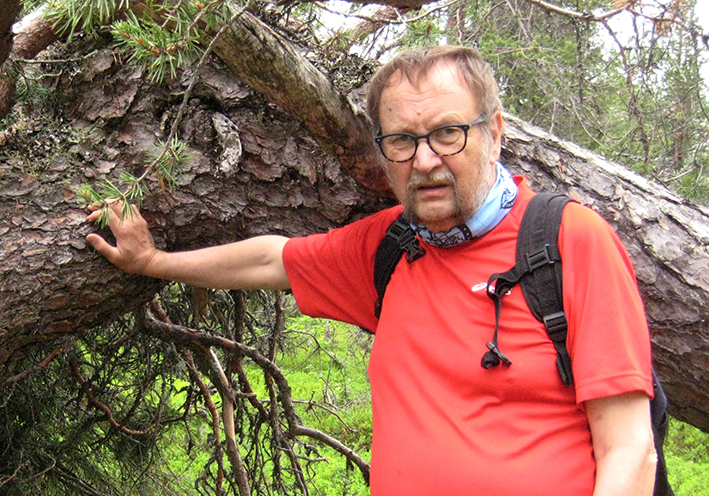
Hannu Puhalainen, 66 years old, living in the city of Rovaniemi, is the president of the Naturefriends in Finnland, and he also acts as the chair of the local association of nature friends in Rovaniemi. As his home is in the Finnish Lapland, nature and trekking have been elementary parts of his life.
In this interview he talks about his personal motivation for his commitment to Naturefriends and about his ideas for the future.
Tyovaen retkeilyliitto, Naturefriends Finland, was founded in 1971 as a national sports association. What are your aims and main activities today?
We aim at strengthening our operations further, by arranging different activities and promoting the trekking and nature values in the way that people would get interested and start being active in issues concerning nature. We also want to increase the number of our local associations so that we could be present in all parts of Finland.
We coordinate and support the activities of local associations. We maintain our own cottages and rent them mainly to our own members. We publish a magazine which is the connecting link integrating our members and enhancing cooperation between associations.
What is your personal motivation to get involved with Naturefriends?
For me the major motivation is to meet people sharing the same values, being in the nature, enjoying the sounds and silence of nature, fishing, berry-picking, camp fires with coffee and sausage. I also enjoy helping and supporting other people to get connected with the nature.
Tyovaen retkeilyliitto is a small, but very active organization, with around 1.700 members.What does it mean to you to be a member of the international Naturefriends movement?
As a member of international naturefriends we get information and inspiration of events and trends in Europe. Today, Naturefriends are bringing also Africa’s nature and environmental issues closer to us. We hope that the international aspect is attracting younger people to join our activities. So far we have not been able to fully utilize this opportunity in our operations.
What will be the biggest challenges in the next 10 years – for Naturefriends Finland and for the international Naturefriends movement?
For us in Finland the major challenge is to attract young and active people to our organization, and to maintain the number of members at least at the present level.
For international Naturefriends movement, I think that it is important to find the balance between local and global. The shared, common activities should be interesting enough to attract a wide audience, and at the same time the local country organisations should see the benefits of global cooperation. Communication and interaction in joint projects could contribute.
Tyovaen retkeilyliitto
(september 2018; the interview was translated from Finish into English by Hannele Pöllä, Coordinator of International Affairs at Naturefriends Finland)
Maritta Strasser | Executive Director of Naturefriends Germany 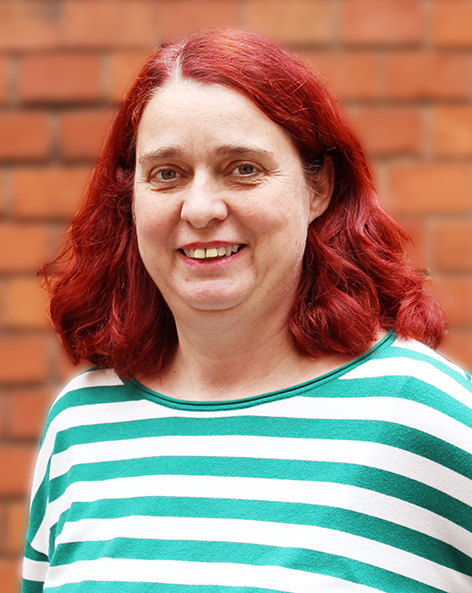
Since the first of July 2018, Maritta Strasser is the new Executive Director of Naturefriends Germany. She takes over from Hans-Gerd Marian, who will retire after his many years spent working for Naturefriends Germany. Maritta talks about her ideas and plans.
With more than 70.000 members, Naturefriends Germany is the second biggest member organisation of Naturefriends International. Where do you see your strengths and priorities for the future work?
There are so many activities within Naturefriends Germany: Sport courses, holidays, the Naturefriends houses, nature conservation projects, cultural programmes… Naturefriends do a lot and most of it with volunteers. I think this is really impressive. However, we are not known well enough. We should be more self-confident. We have a lot to offer! We should be more pro-active in asking the people who take part in our sport courses or visit the houses to become members
Where do you personally see the biggest challenges?
I would like to emphasize the need for growth for Naturefriends so we can lay the ground for a sustainable future. Thus, I would like to focus more on effective public relations work. I want to promote a change in culture within the association. I would like to make sure we are more open and inviting, especially to reach young people. Working together with the youth association is very important for me.
Naturefriends Germany see themselves as a “political leisure association” . What is meant by that exactly? And how important is political work for you – at the national as well as at the international level?
We are basically the campfire where people, who think that there is something fundamentally wrong in our country, come together: Nature is ruthlessly being exploited more and more, in order to accumulate wealth for only a few. We are powerless alone and can only create change together. Since not only nature, but also people need to relax, we not only fight together but also enjoy sport activities and free time together.
We are needed more than ever. The political parties have less and less answers to the challenges of our time. Their power is declining. Thus, it is up to the civil society to develop social alternatives – for a policy of isolation, for the redistribution from the bottom to the top and for the ruthless exploitation of our planet.
An important goal of the international work done by Naturefriends is to promote the values of our movement, as for instance international solidarity, and to actively contribute with for example the Naturefriends Climate Fund or the Landscape of the Year in the border region between Senegal and The Gambia. In your opinion, how important is international engagement for a movement like Naturefriends?
Personally, I think global engagement is very important for two reasons: First of all, climate change and depleted global resources know no borders – they are global problems, which can only be solved with an enormous global effort.
Second of all, solidarity is our core value and solidarity can know no borders, if taken seriously. Because exclusion and limiting support to certain groups of people is definitely not how solidarity works. Since we are all people, we are equal in rights and free. Our diversity is our treasure.
NaturFreunde Germany
(July 2018)
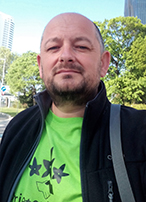 Ciprian Costa | President Naturefriends Romania
Ciprian Costa | President Naturefriends Romania
Ciprian Costa is President of Naturefriends Romania and recently attended an international Naturefriends workshop about creating accessible outdoor sport activities in Vienna. In conversation he talks about highlights in his work within the Naturefriends organisation and about his visions for the next years.
You have been active for Naturefriends Romania for many years now. How did you get in touch with Naturefriends and what made you decide to be so committed over the years? Can you describe the most impressive moments with Prietenii Naturii Romania?
25 years ago, while I was a student in Timisoara, I was a member of a mountain club, partner of NFI. I loved the “nature and culture” motto and all activities, but also enjoyed being a member of a “ big family”- Friends of Nature.
One of the most important moments was when Romania became an "A" member of NFI.
Other important steps: the prize for Cabana Codrin at the Climate Competition; Landscape of the Year – Danube Delta; 2 new associations Friends of Nature in Romania; introducing the Banat area in the project “Hiking Europe”; in 2017 we succeeded in a new way to keep records of all our members.
Prietenii Naturii Romania is one the small member organisations within NFI. What does it mean for you to be part of the international Naturefriends movement? How do you participate in the international network and how does that benefit you?
We are a small organisation which exists in the Western part of the country and we also have one NF house. Our members have contact with other NF organisations from Europe. We participated at workshops and seminaries and shared our experiences with the other members. When travelling abroad throughout the year, our members use as much as possible the NF houses.
This year, you are taking part in the Erasmus+ project “Naturefriends Sports for all”. The member organisations are given tools to develop outdoor sports offers for people with disabilities. The first workshop, where you were present as well, just took part in Vienna. Why do you think that project is so important?
I liked this idea from beginning and the first workshop in Vienna was extraordinary. Because these activities in nature for people with disabilities are quite new in Romania, we almost have no infrastructure for them. This was the first step for us to understand and learn more about what people with disabilities need and how we can fulfil those needs.
2028 – where do you see Naturefriends Romania in ten years? What is your vision, what are you excited about and which challenges will have to be overcome?
In 10 years? It will be a challenge for us to have at least 10 local organisations with more than 100 members each, 10 NF houses, and many more activities.
Berg frei!
(May 2018)
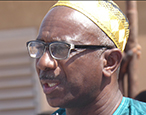
Mamadou Diallo | Secretary General of Naturefriends Senegal (ASAN)
Mamadou Diallo, Secretary General of Naturefriends Senegal (ASAN), expressed his excitement that ASAN will be right in the centre of the international Naturefriends activities when he gave his speech during the opening of the Landscape of the Year Senegal/The Gambia. In his interview with NFI, he explains how important this initiative is for the region and his association, as well as his visions for the future.
In your opening speech you expressed your excitement about the new Landscape of the Year Senegal/The Gambia. In addition to the many participants from the region and the neighbouring countries, more than 40 Naturefriends from Europe came to visit, in order to take part in the festivities and to get to know the area. What does this mean for Naturefriends Senegal?
For us, Naturefriends Senegal, it is a great honour and a token of friendship and appreciation that NFI is showing us. Putting the organisation of the “Landscape of the Year 2018/19” into the hands of Naturefriends Senegal, an African Naturefriends organisation, is a first within the history of the Naturefriends movement. You are giving us once more the chance to express our warm thanks to those responsible at NFI, as well as the participants from Europe and Africa – they have enriched the official opening of the Landscape of the Year with their presence.
Which parts of the region do you want to show visitors the most?
As you know, there many things to discover in Senegal, as it is a country with a rich biodiversity, many ecosystems, a lot of exceptional tourist attractions and a vibrant culture. In addition, the Senegalese are wonderful people, very hospitable and open, also because of their diverse ethnic backgrounds and languages. We created different eco-tours for tourists which we can warmly recommend.
In addition to the different geographical zones that our country contains, the Gorée Island is worth a visit, which reminds us of the slave trade and slavery that lasted for centuries. Other destinations are the Lac Rose lake, the different museums in the capitol, the art markets and the African Renaissance Monument. Those wishing to stay close to Dakar can visit the Bandia reserve and watch the giraffes, giant elands, different kinds of antelopes, monkeys, buffaloes and many other animals. They can also visit the seaside resort Saly and pass Poponguine on the way, as well as forests with Baobabs, the trees with many healing properties.
The tour through the North, offers visitors a chance to experience Saint Louis, the old capitol of Senegal and a world heritage, its historical monuments (hotel Mermoz, Faidherbe bridge, palace of the governor), the fishing village Goxxu Mbathie, the Langue de Barberie, the colourful and lively return of the fishers, the traditional villages of the Moors and Peulh and last but not least the Geumbeul reserve, as well as the bird park Dioudj, the third national bird sanctuary world wide with its thousands of birds and pelicans. People interested in religion, can visit Tivaouane, the capital of Tidjanisme, as well as Touba, the capitol of Mourisdisme and Kaolack, the capital of Niassènes… Everyone interested in great nature and culture should visit the regions Tambacounda and La Casmance.
For the Tour d‘Horizon this year we suggested to the Naturefriends to visit the border region between Senegal and The Gambia. Here, they can experience “Senegambia”, with its special eco-system – a geographical region with a high biodiversity, a vivid culture and fascinating people.
One aim of the Landscape of the Year is also to put concrete actions into place which should improve the life of the local community. What do you think is necessary, to make that possible?
The program should be aimed at protecting the environment, fighting against climate change, increasing biodiversity and especially at strengthening eco-tourism. Indeed, the plan is to plant trees that can be used in many different ways in the family gardens: Trees with many leaves to provide shade, fruit trees to fight malnutrition and to support the family income, trees for firewood and to stop deforestation, trees that can used by traditional healers for medical purposes – in summary a reforestation to bind CO2 and to fight against global warming and climate change. In addition, it is also a chance for the local population to visit their cultural heritage. Once you get in touch with the diverse population in Senegal, you will admire how rich and multi-faceted their culture is. According to African tradition and the Senegalese “Teranga” (hospitality), your hosts will teach you to dance Mbalakh, Yela, Ndawrabine, Sawrouba and much more, to the rhythms of the tamtam, kora, balafon, riti etc. With the Kankourang Festival in The Gambia the guardian spirits will come from the holy forest. Not only to dance and to welcome the Naturefriends, but also to help the “Landscape of the Year” succeed.
After the successful first tour through the Landscape of the Year, the next tours are already being planned. How important is tourism for the region and what is needed so that the community benefits from tourism?
Tourism is an economic factor that can benefit the people. It can be helpful to keep young people in the region and to minimise illegal emigration and its terrible consequences such as long odysseys, many lives lost in the desert and on the ocean and modern slavery in Libya and other countries. Yet, it is important to support the local population so that they can indeed benefit from tourism. Thus, it would be helpful to build tourist accommodation in the villages, to support local artists in selling their handicraft as souvenirs to tourists, to educate and employ women to work in agriculture, the processing of local fruit, vegetables and grains, as well as in the food service industry.
Naturefriends Senegal, as well as many other African Naturefriends organisations, has developed greatly as an organisation in the last years. What do you think was the recipe for success for a positive future of the Naturefriends movement? How important is the fact that our movement is international?
There is no one-size-fits-all solution. It is the work that counts. We have to realise that we, in my opinion, can profit from three main aspects: 1. The example of a wonderful man, the late president Alioune DIAGNE MBOR, who with his wisdom, foresight and his position in the community united the group and opened many doors for us. 2. Competent members who were committed and volunteered. 3. Reliable, generous partners who were just as committed as we are, as Naturefriends International, who were ready to support us and take up the challenge together. I personally do not regret to have asked Naturefriends France and NFI for a partnership with ASAN in the past. The fact that the Naturefriends’ movement is international is very important, as it expresses the common vision to work for environmental protection, against climate change, against poverty, for the support of eco-tourism and the international solidarity between the people, based on shared values, messages and specific initiatives. Your presence here, especially in times of worldwide
Kommentiert [KK1]: Weiß nicht ganz ob das Frage oder Antwort ist? Formatierung war nicht klar
conflicts, is definitely a way to increase mutual understanding and bringing people together in order to work for world peace together.
Association Sénégalaise des Amis de la Nature (Facebook)
(February 2018)
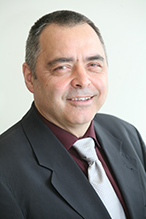 Manfred Pils | President of NFI
Manfred Pils | President of NFI
Manfred Pils from Austria was re-elected as President of the international umbrella organisation by the Congress of Naturefriends International in Lage Vuursche (Netherlands). The staff at NFI congratulates him on his re-election!
Manfred Pils shares his vision for the future of the Naturefriends movement and talks about current challenges, as well as his personal goals.
The 23rd Climate Conference has just come to an end in Bonn recently. In addition, the Congress of Naturefriends International was placed under the motto "Living climate justice! In solidarity towards a better future!". Climate protection and climate justice are also key issues of the international Naturefriends movement. What do you consider the biggest challenges in this regard and how can comprehensive climate protection be achieved? How would you describe a climate-just world? What can and will Naturefriends International do to achieve this?
Climate protection needs to deal with the core issues. This especially means the radical reduction of CO2 emissions in the western industrialised nations, as well as the emerging nations – in particular energy production, traffic, industry and heating.
The technologies already exist - we just have to use them, which will in turn benefit the economy. At the same time, we need to assist the people in the South – who are already strongly effected by climate change though they in no way contributed to it – to mitigate the detrimental effects of climate change. This means that reforestation projects, necessary structural measures to stabilise coastal areas, projects to ensure water supply and irrigation, as well as necessary resettlements need to be financed.
To achieve this, active solidarity at the international level is needed – which is exactly what NFI stands and works for. And of course us Naturefriends need to also actively work for climate justice, which we already do through a few projects – for example planting trees in Senegal and the Gambia, which is financed by the Naturefriends Climate Fund.
Naturefriends currently face many challenges. Core issues for many national associations are for example maintaining the Naturefriends Houses and adapting their offers for members to new social developments. At the same time, many national organisations struggle with the declining income from membership fees and national subsidies. What are your visions for a successful future of the Naturefriends Movement?
NFI cannot and will not tell its member associations what to do. However, our common basis is the sustainable use of our natural resources, experiencing nature together and internationality. We connect recreational experiences with dedicated services for a sustainable society. For me, that is what makes our movement special and what we should emphasize. We can convince people to join our movement through a modernised image, we can renew our movement sustainably.
What can Naturefriends International do to achieve those visions? Can you tell us more about your personal goals you set yourself as President of Naturefriends International for the next three years?
Naturefriends International is the figurehead for the Naturefriends Movement – very important to spread the movement. Our strength is the diversity of the Naturefriends, the creativity and the dedication of many volunteers. We would wish to support the exchange and enrichment, while showing that internationality is an important value within a global society – not only for the individual member but also for the political work of Naturefriends, as for example our activities for climate justice.
Especially now, in times when international politics is driven increasingly by national interests and the core values of our society are being questioned more and more, NFI needs the full support of its member organisations so we can speak with a strong voice and be heard. This will be at the heart of my work in the next three years.
(November 2017)
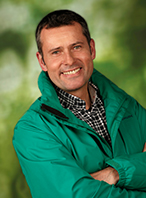
Mag. Günter Abraham | Managing Director of Naturefriends Austria
Since the beginning of July 2017, Günter Abraham has been on duty as Managing Director of Naturefriends Austria. He followed Reinhard Dayer, who has led the association very successfully for 44 years.
In conversation with Andrea Lichtenecker, Günter talks about his motivation for his commitment to Naturefriends and his future plans.
You look back on a varied career. What motivated you to apply for the position of Managing Director of Naturefriends Austria?
I have spent a wonderful childhood in Styria, a beautiful Austrian region. My parents have always been living in tune with nature and have shared their enthusiasm with us children. Naturefriends inspire me as a movement, which has dedicated itself to the preservation of the environment as well as to sports activities in nature. In my previous professional activities, I have been working on sports and environmental issues. Both topics are of great interest to me. When the vacancy of the position of Managing Director of Naturefriends Austria was announced, I knew I had to follow my passion and applied for it!
Within the international family of Naturefriends, Naturefriends Austria is the association with most individual members. In times when many other Naturefriends associations are struggling with declining membership numbers, Naturefriends Austria has succeeded in keeping membership numbers at a stable level. Nevertheless, Naturefriends Austria also faces major challenges – what are your priorities for the next few years?
When I took over the position, I set myself some goals: I would like to make Naturefriends more attractive for all generations, especially the young ones. From my own experience I know how important it is to raise children's awareness of nature and nature conservation in their early years. I have often witnessed how much fun kids have when discovering and exploring nature! I will emphasize competence-oriented learning – learning outside, in nature and with nature.
In addition to cooperation with schools, a main focus of my work will be the preservation of alpine infrastructure. In Austria, Naturefriends take care of approx. 15,000 km of hiking trails and about 140 Naturefriends houses. The effort of maintaining this enormous network is almost unimaginable.
New climbing and bouldering halls, innovations in the technological field, educational offers for environmental and nature conservation issues, as well as modern methods in managing Naturefriends houses shall secure that membership in our association is desirable. We will achieve these goals through team spirit and cooperation!
Naturefriends are often perceived as a leisure and hiking association only. Formulating political positions is of different importance for the national associations of Naturefriends, and the topics vary from social policy and free trade to free access to nature for everybody. What are your ideas for the political work of Naturefriends?
We will continue to stand up for free access to nature for all population groups, irrespective of their financial circumstances. Conflicts between recovery seekers and landowners occur quite often. With our brochures and articles in various media, we will continue to communicate the legal basis and place demands whenever it is necessary. Thus, we stand up for the opening of all forest roads for mountain bikers – a legal standard that has already been reached in many neighboring countries!
Naturefriends will continue to safeguard the interests of people and nature. Free access to nature, including free access to the Austrian lakes, shall not be restricted but must be extended!
Naturefriends’ “Berg frei!” is a strong manifestation of rejecting all attempts to restrict the free access to nature.
In your first speech as Managing Director, you used a very beautiful African proverb: “If you want to go fast, go alone. If you want to go far, go together with others.” Team spirit is not only a central element of Naturefriends’ activities, but also the basis of cooperation within the international Naturefriends movement. What does internationality in relation to Naturefriends mean for you?
I am a committed European. I believe that international cooperation in a united Europe is a particularly important task. Just as we work together in families, local groups and communities, I would like to have cooperation of Naturefriends on the international level – in order to pursue our path together.
(July 2017)
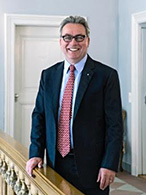 Urs Wüthrich-Pelloli | President of Naturefriends Switzerland
Urs Wüthrich-Pelloli | President of Naturefriends Switzerland
On 13 May 2017, Urs Wüthrich-Pelloli took office as president of Naturefriends Switzerland. The education policy-maker and former member of the cantonal government has big plans for his time as president. In our conversation, Urs talks about the reasons for his involvement with Naturefriends and his ideas for the future of the organisation.
You look back on a long political career. What made you get involved with Naturefriends now?
As a private person, I have been making a contribution to a sound environment for a long time, and I've been a member of the Naturefriends organisation since the 1980s. I have a triple connection to this association. A historical connection, because Naturefriends arose from the labour movement, where my roots are, too. A sports connection, for I'm committed to sports and I love to go hiking. And a connection of values, because I think that friends of nature also need to take responsibility for the latter.
Many people still perceive Naturefriends solely as a leisure-time and hiking organisation. Political work is of different importance to the various national organisations. At the same time, different topics are important at the national level - from nuclear energy over free trade to right of way. What are your ideas on Naturefriends' political work?
I think it is crucial for the Naturefriends movement to intervene in political issues on nature and the environment. I explicitly don't say that Naturefriends should become a political party or be instrumentalised by one. But Naturefriends clearly need to regain a political profile and position themselves as allies of organisations that champion sustainable development and stand up for "Friends of Nature".
The Naturefriends movement is currently experiencing difficult times. Many national associations have been struggling for several years because of decreasing membership figures and the loss of national funding - e.g. for the maintenance of their mountain lodges. How do you intend to counteract this situation at the national level?
The development of our membership figures and the ageing structure of various local groups bring to light the shortcomings in attracting the young generation that need to be made up for. Various sections successfully show that renewal in continuity is possible. I am confident that this success will be infectious.
A topic that is very close to my heart is to run our Naturefriends houses successfully and sustainably. This is where we need to combine the indispensable commitment of volunteers and the expectations of high professionalism.
And, as I mentioned before, the substantive profile and political positioning of Naturefriends Switzerland is a top priority. I consider our movement's depoliticising a disastrous development - a development that brings a loss of identity, profile and unique feature and which makes our guiding principles and values remain empty phrases and futile statements of intent.
In the past years, you held numerous international offices, such as the head of the Swiss delegation and the presidium of the Franco-German-Swiss Conference of the Upper Rhine as well as the representation of Switzerland at the Congress of the Council of Europe and at the Assembly of European Regions. How important is internationality for you - especially with regard to the Naturefriends movement?
I have repeatedly experienced cross-border encounters as enriching and an indispensable prerequisite for mutual understanding. It is only the exchange of different opinions and experiences and discussion about other perspectives that provide development and stability for our society. Especially in an ever more globalised world, movements such as Naturefriends need to join forces across borders and become strong networks if they want their voice to be heard by international decision-makers. Consequently, I welcome the work of NFI and I am looking forward to contributing to this commitment with my expertise.
.
(May 2017)